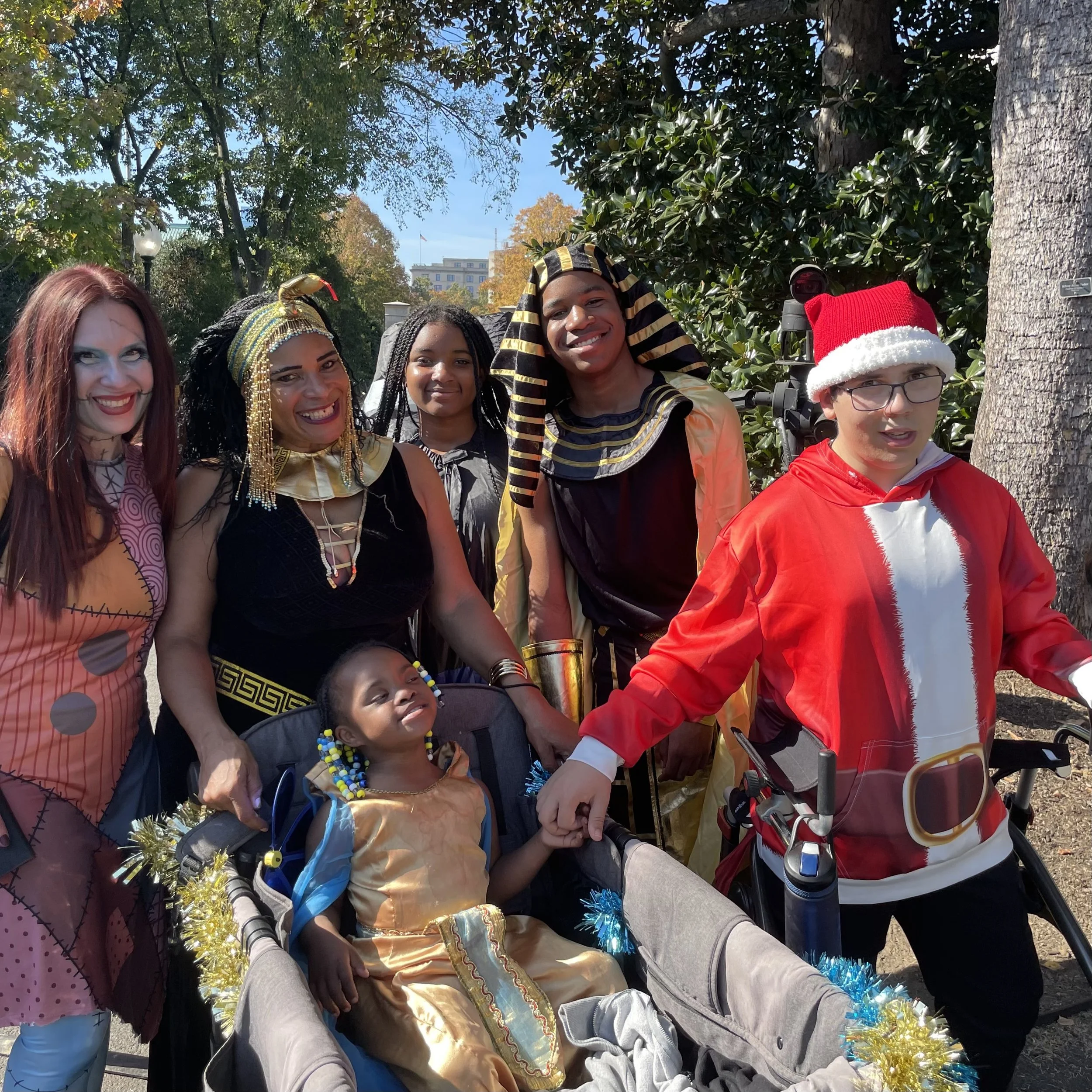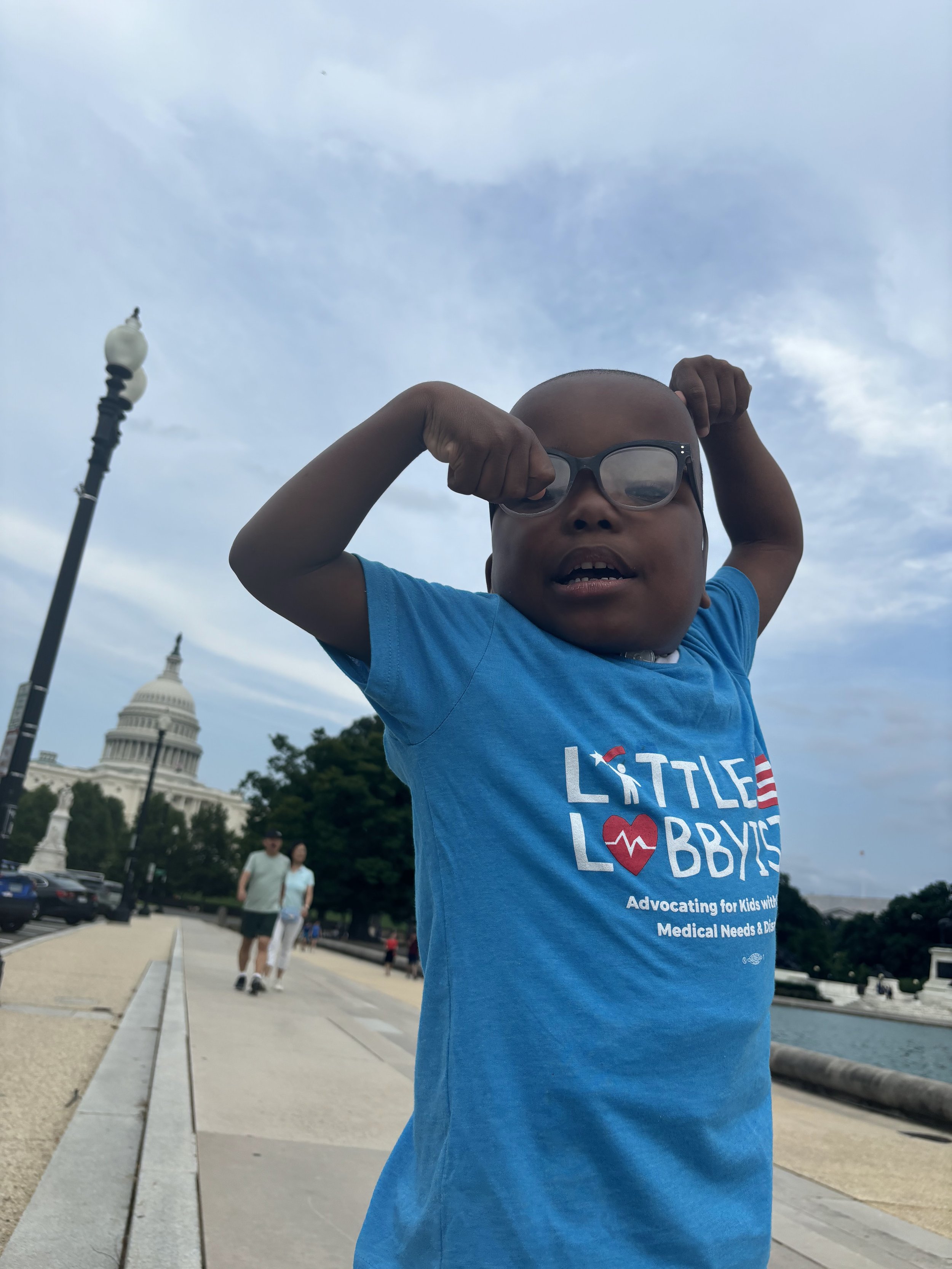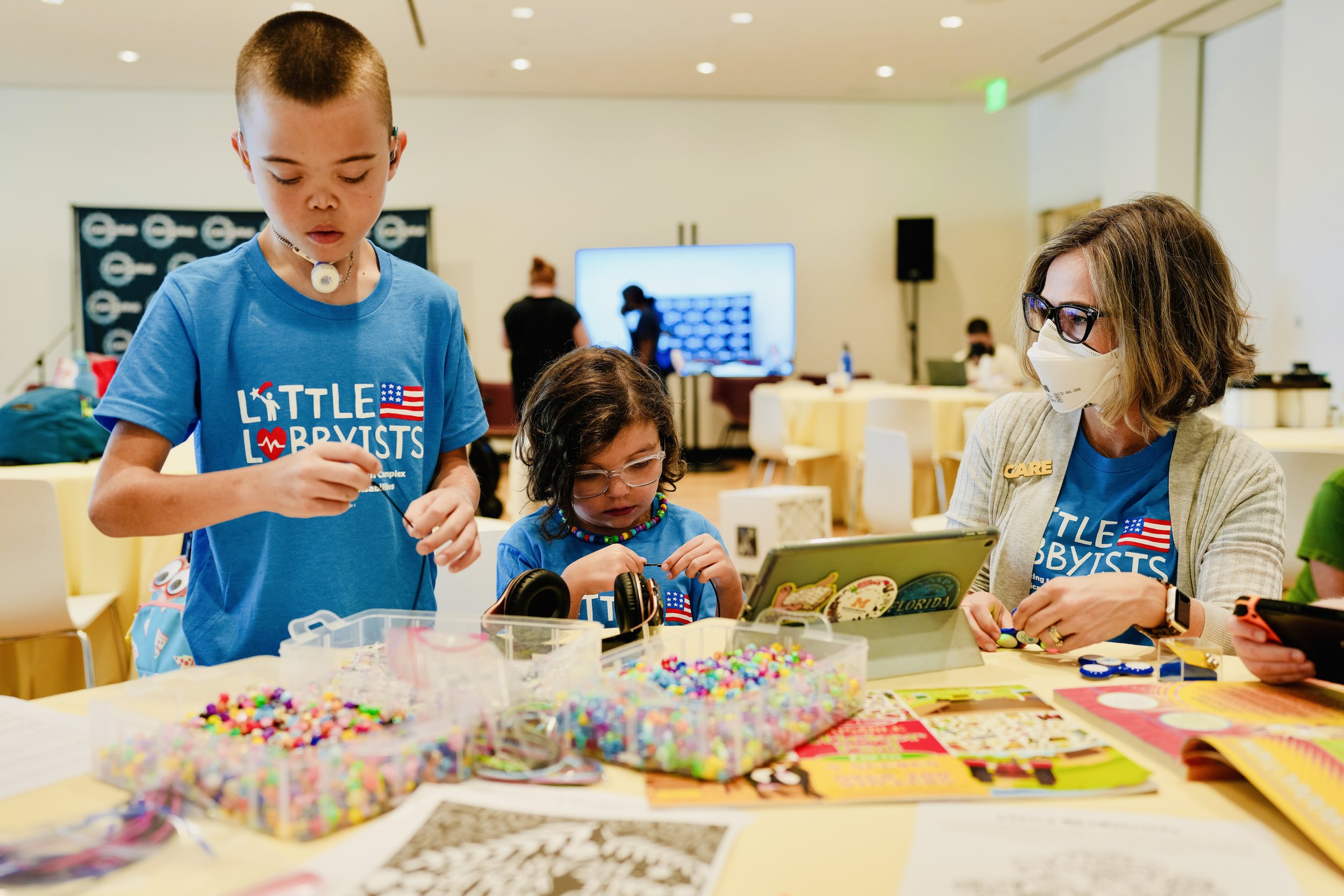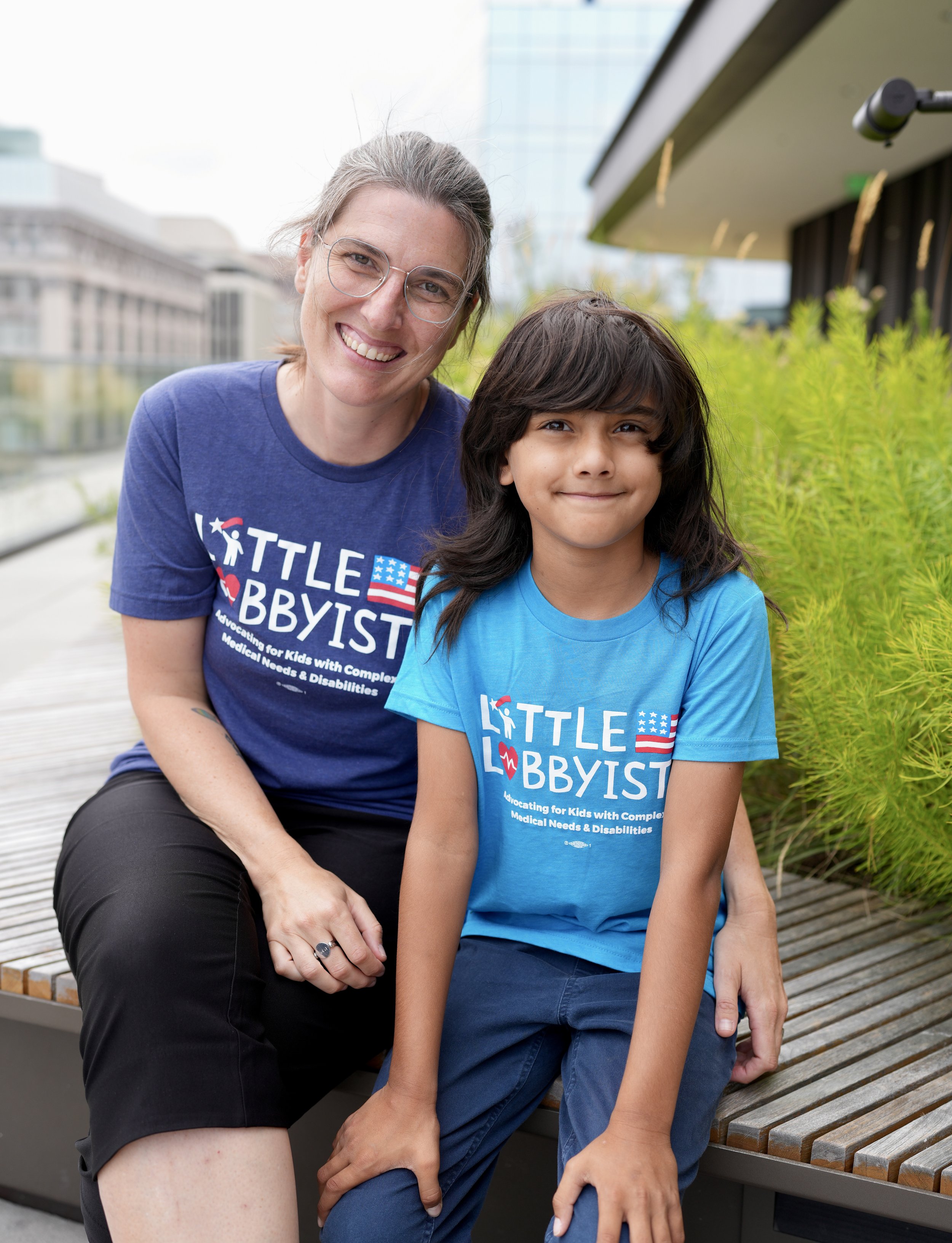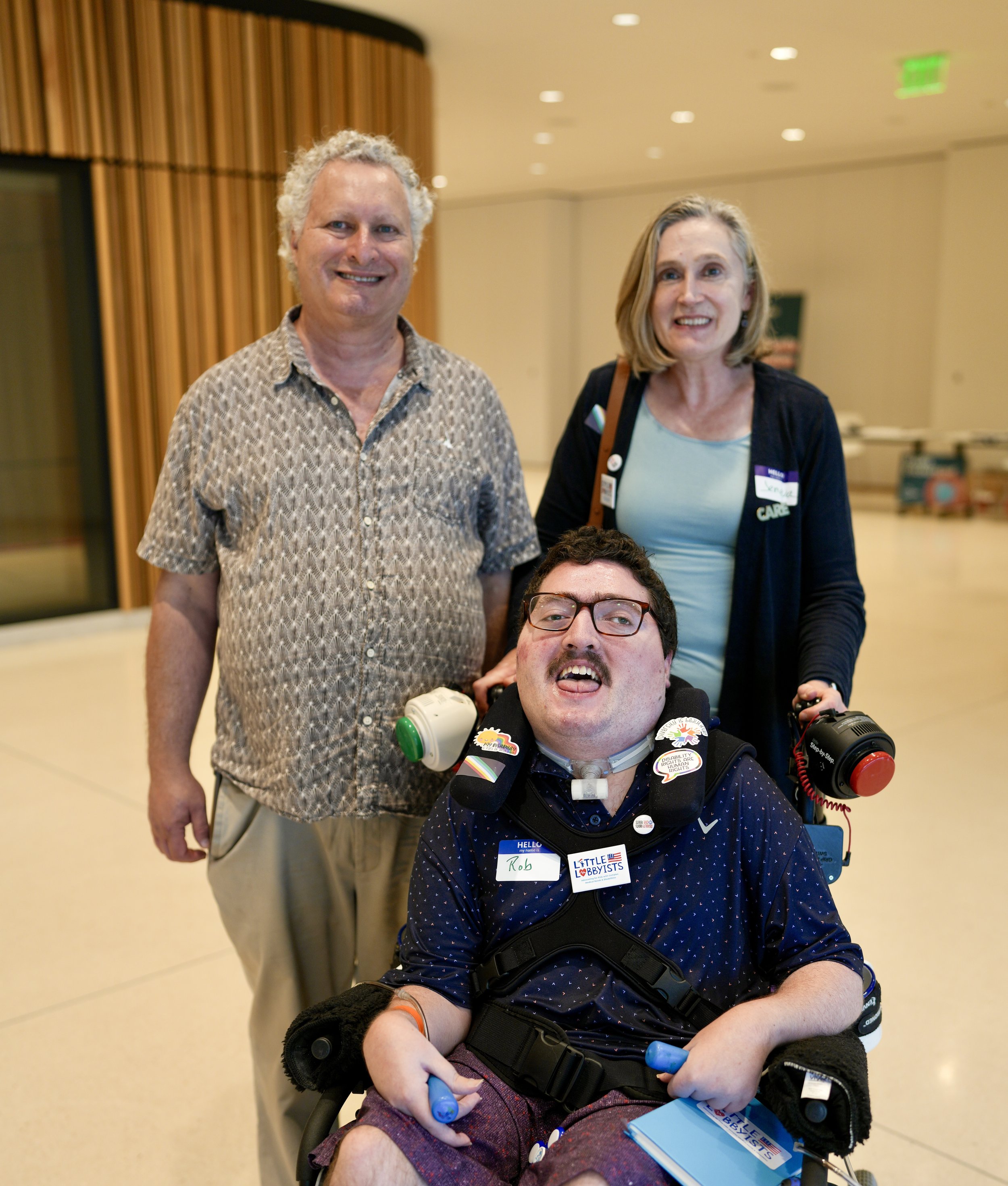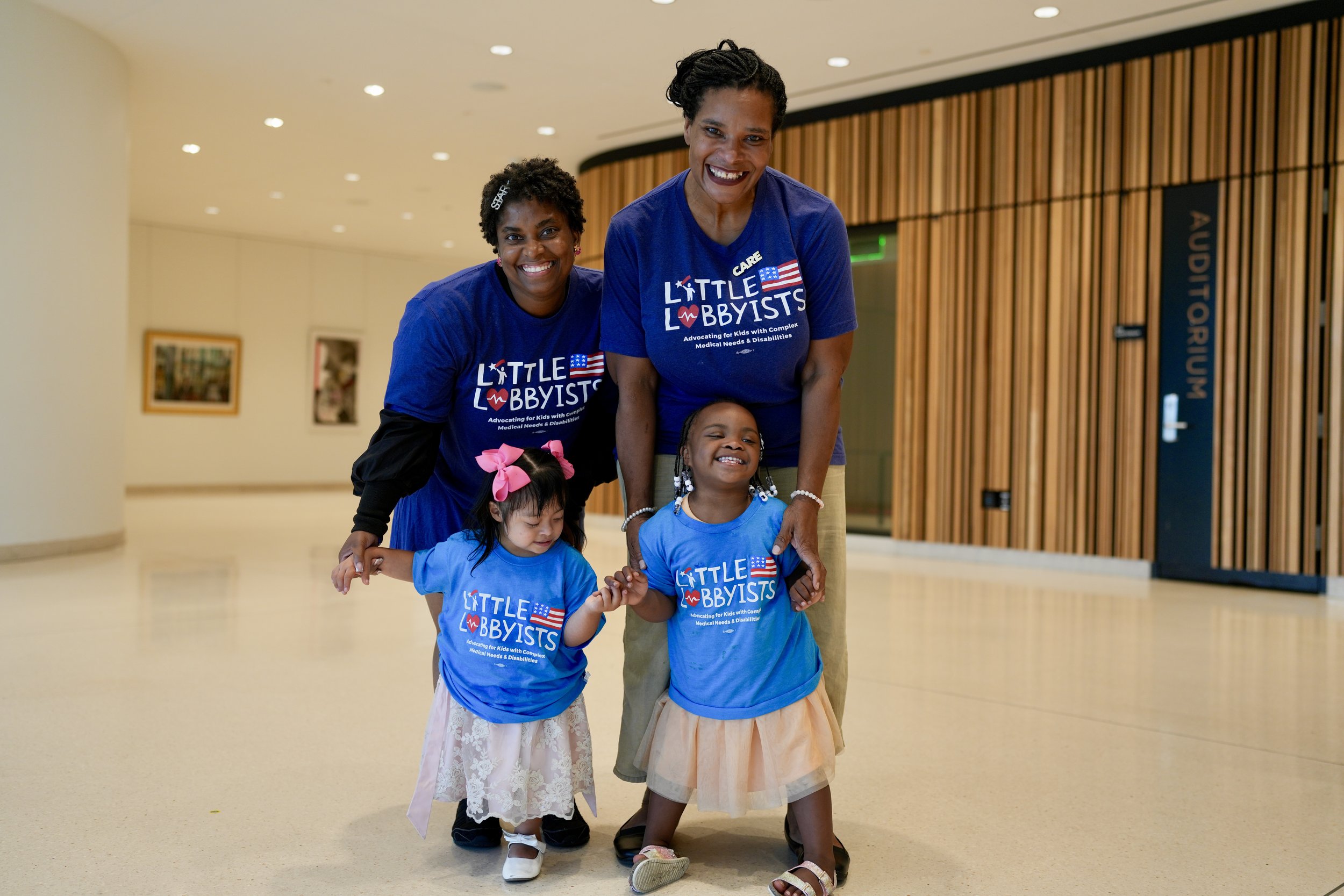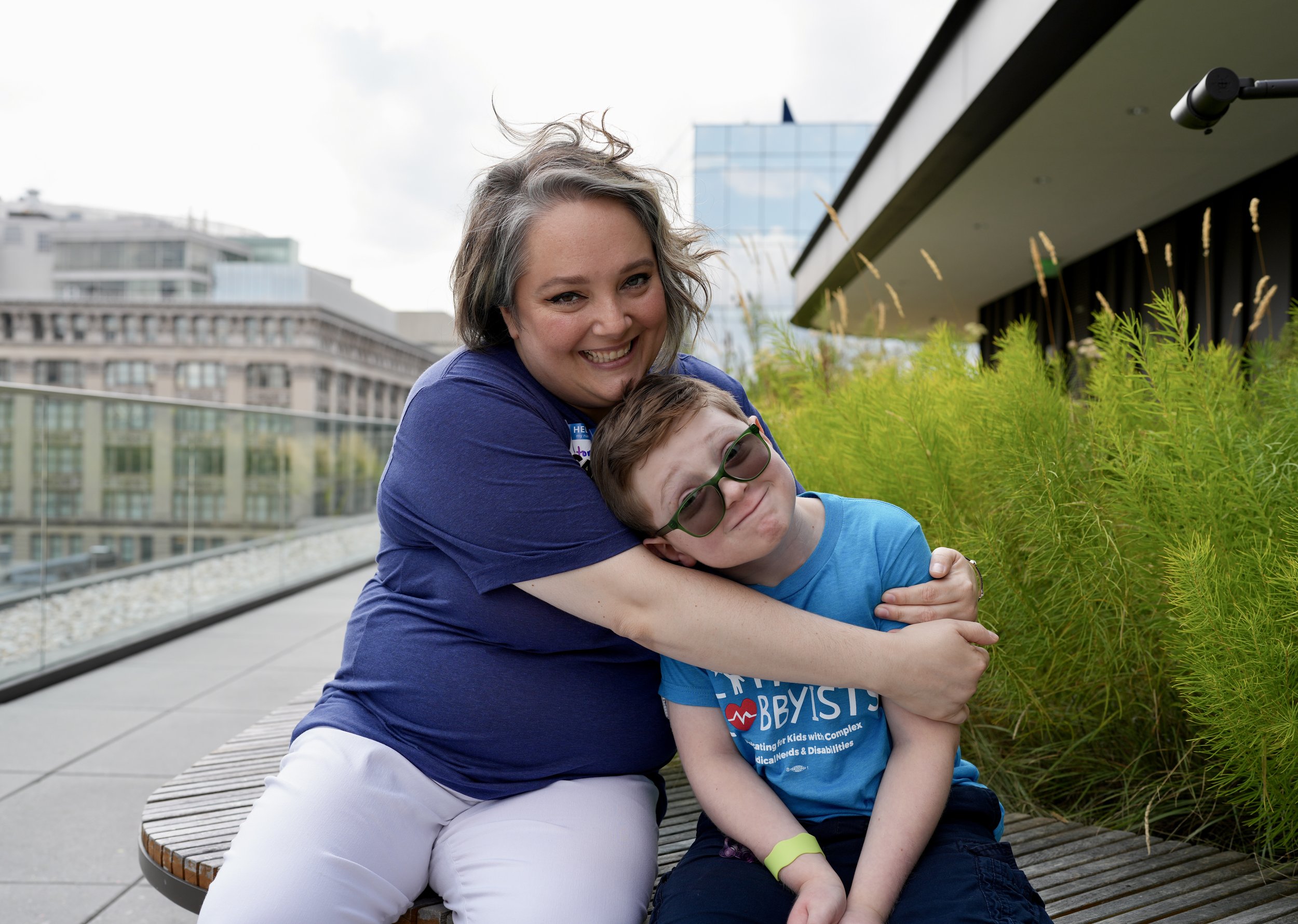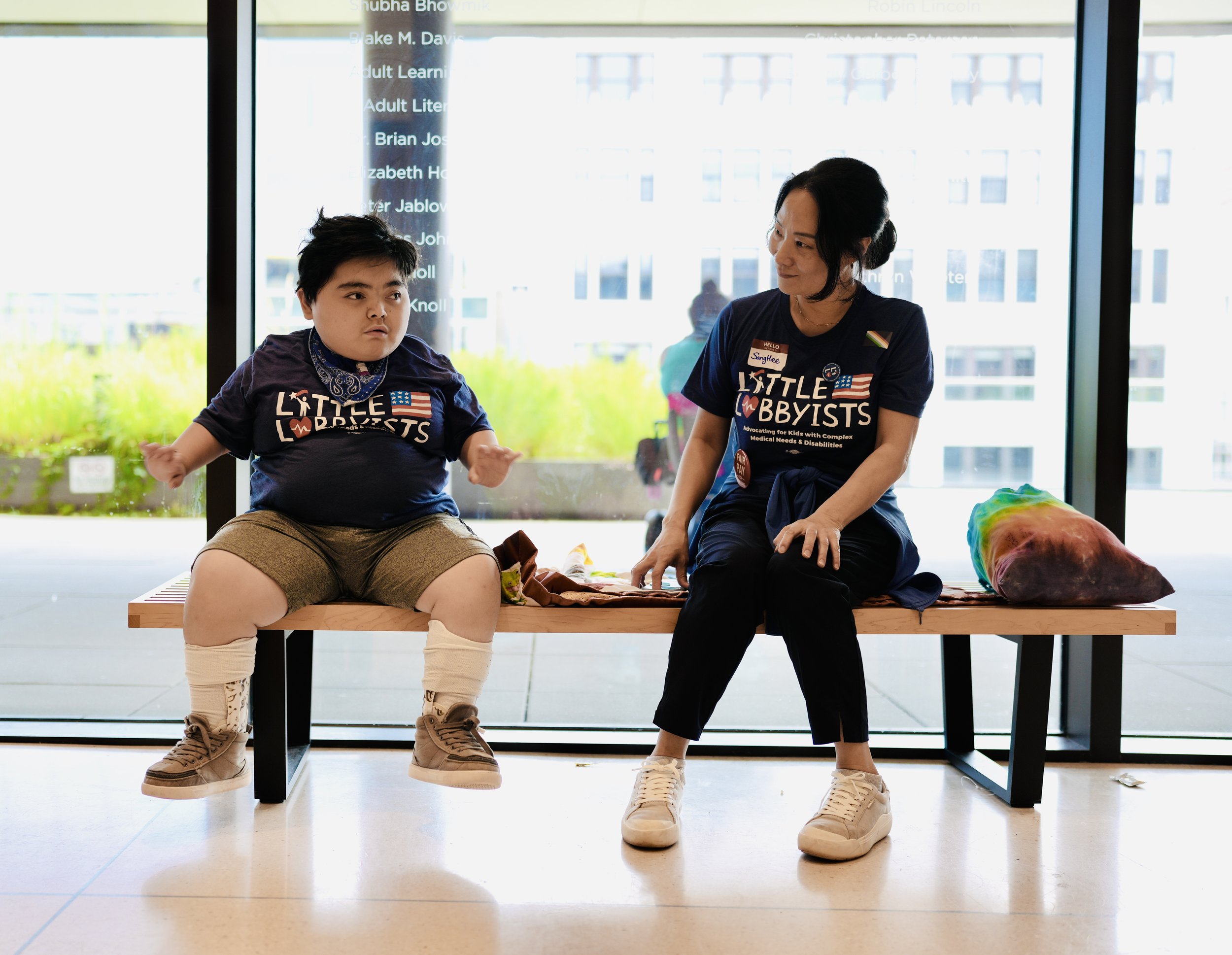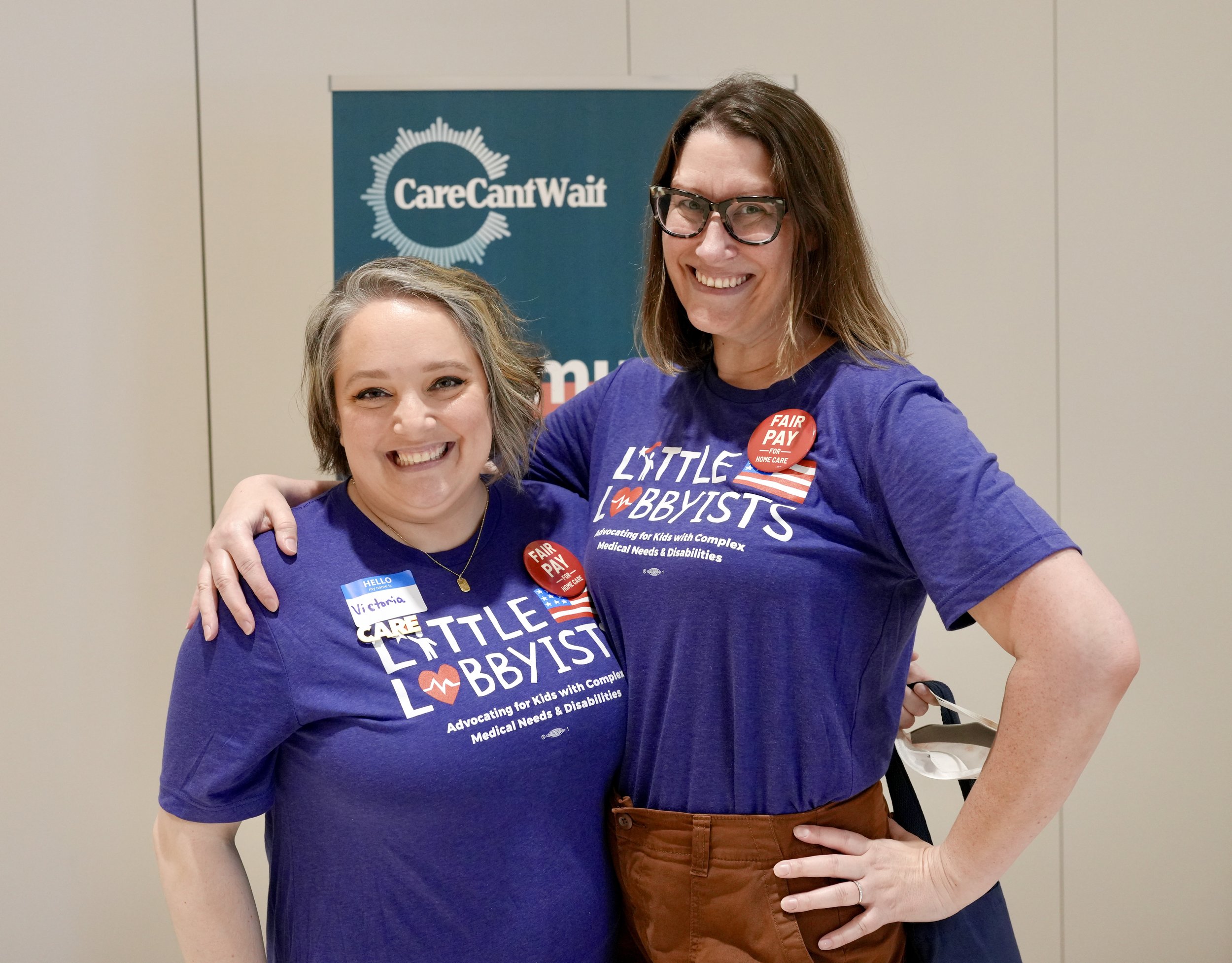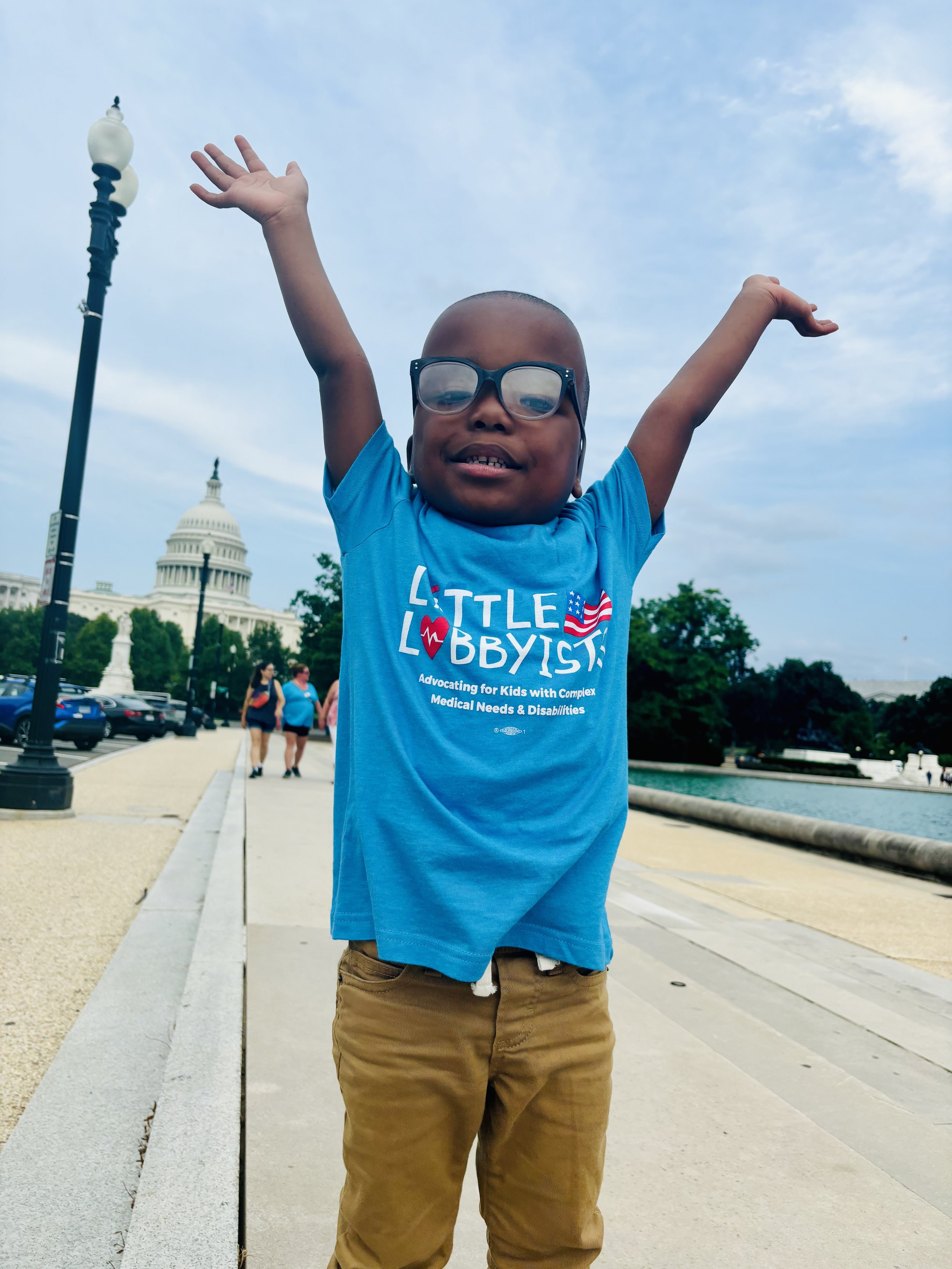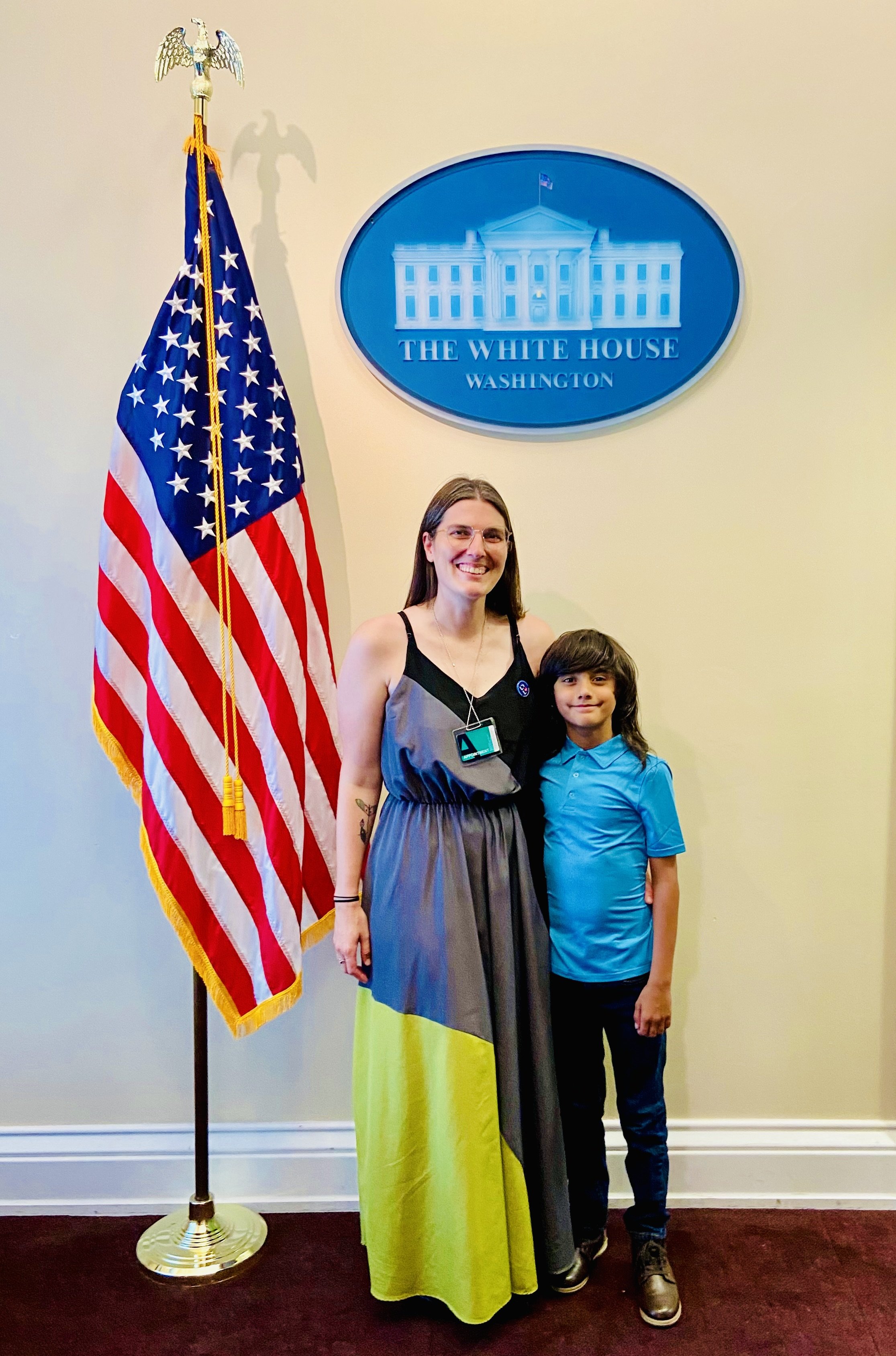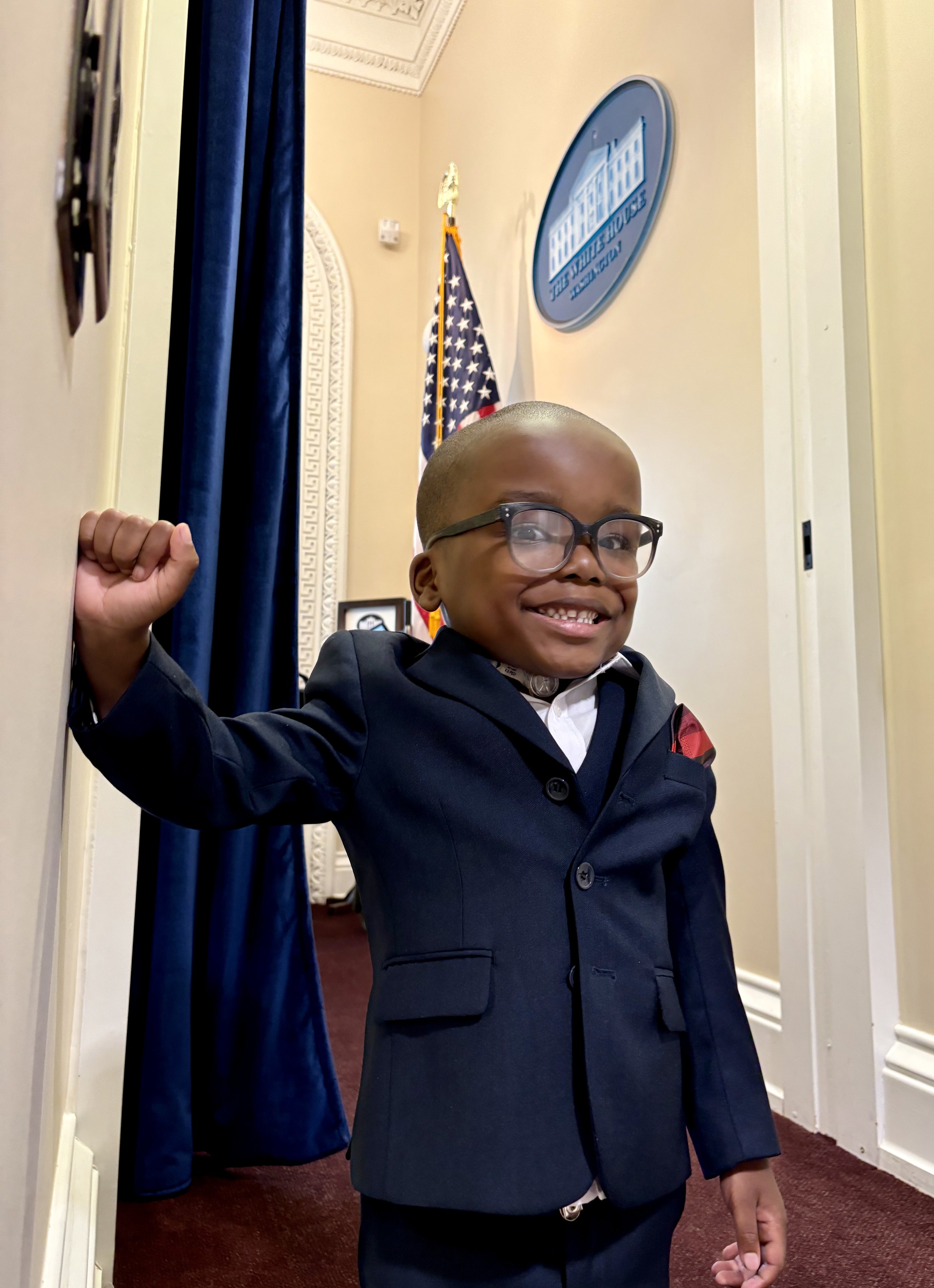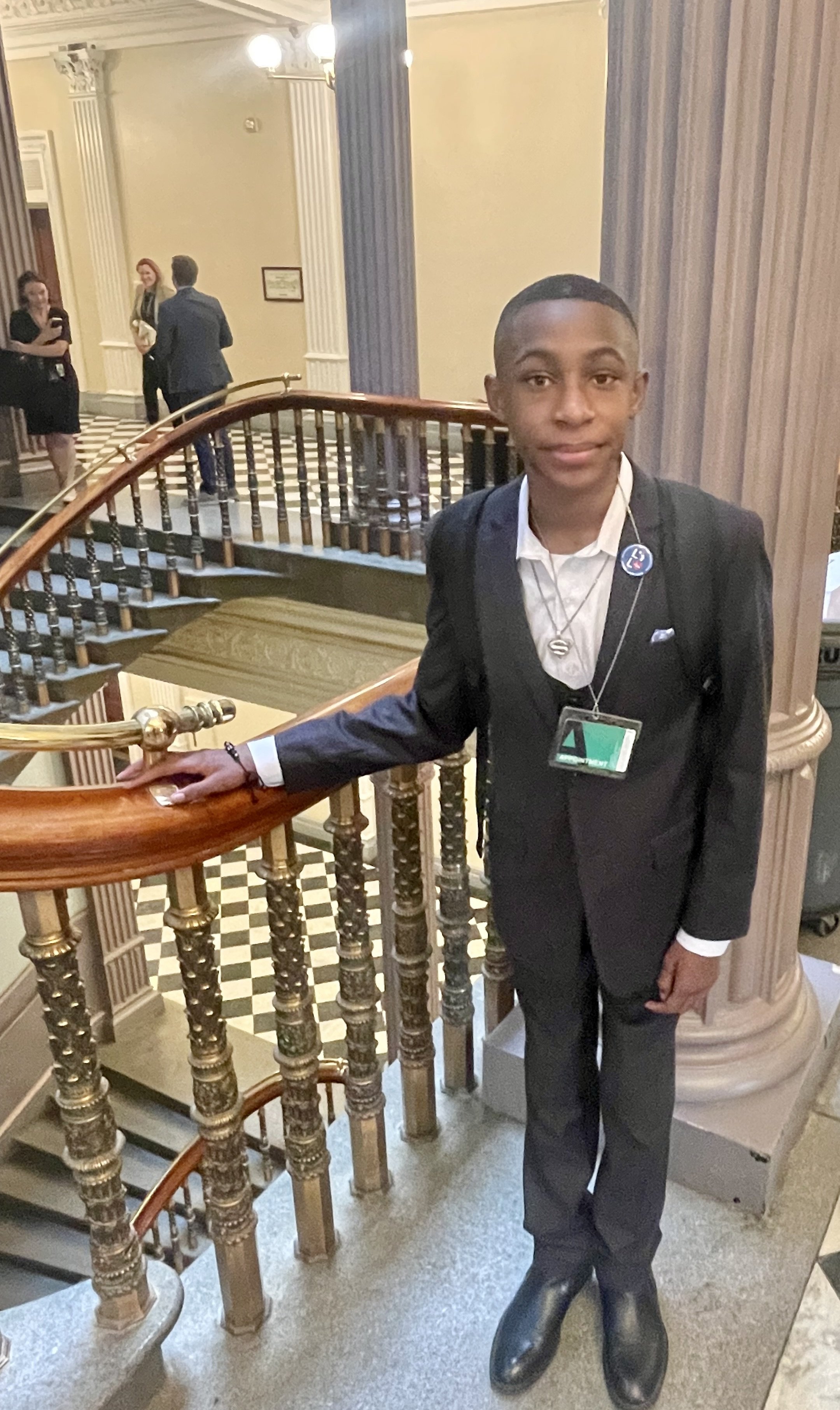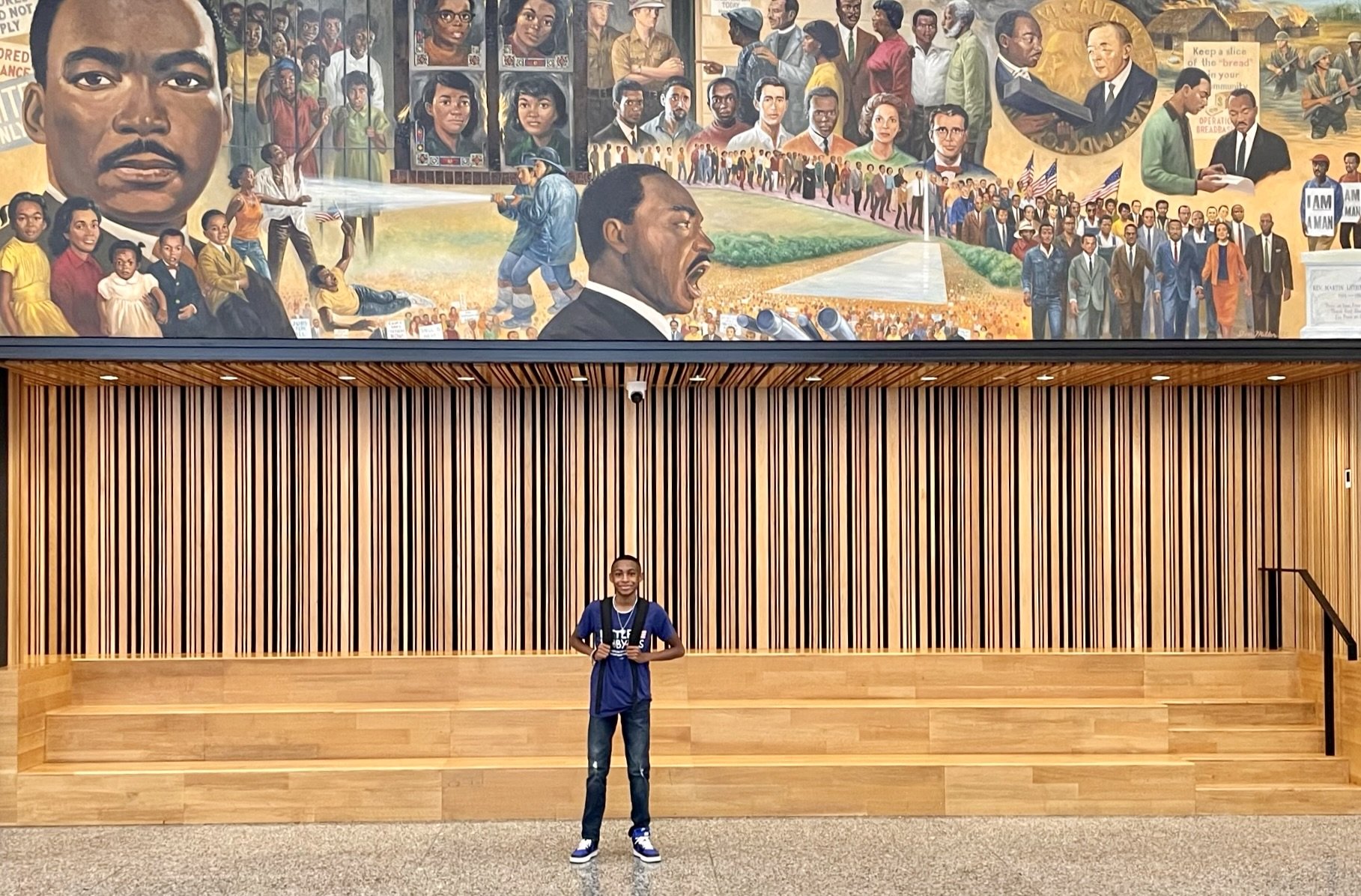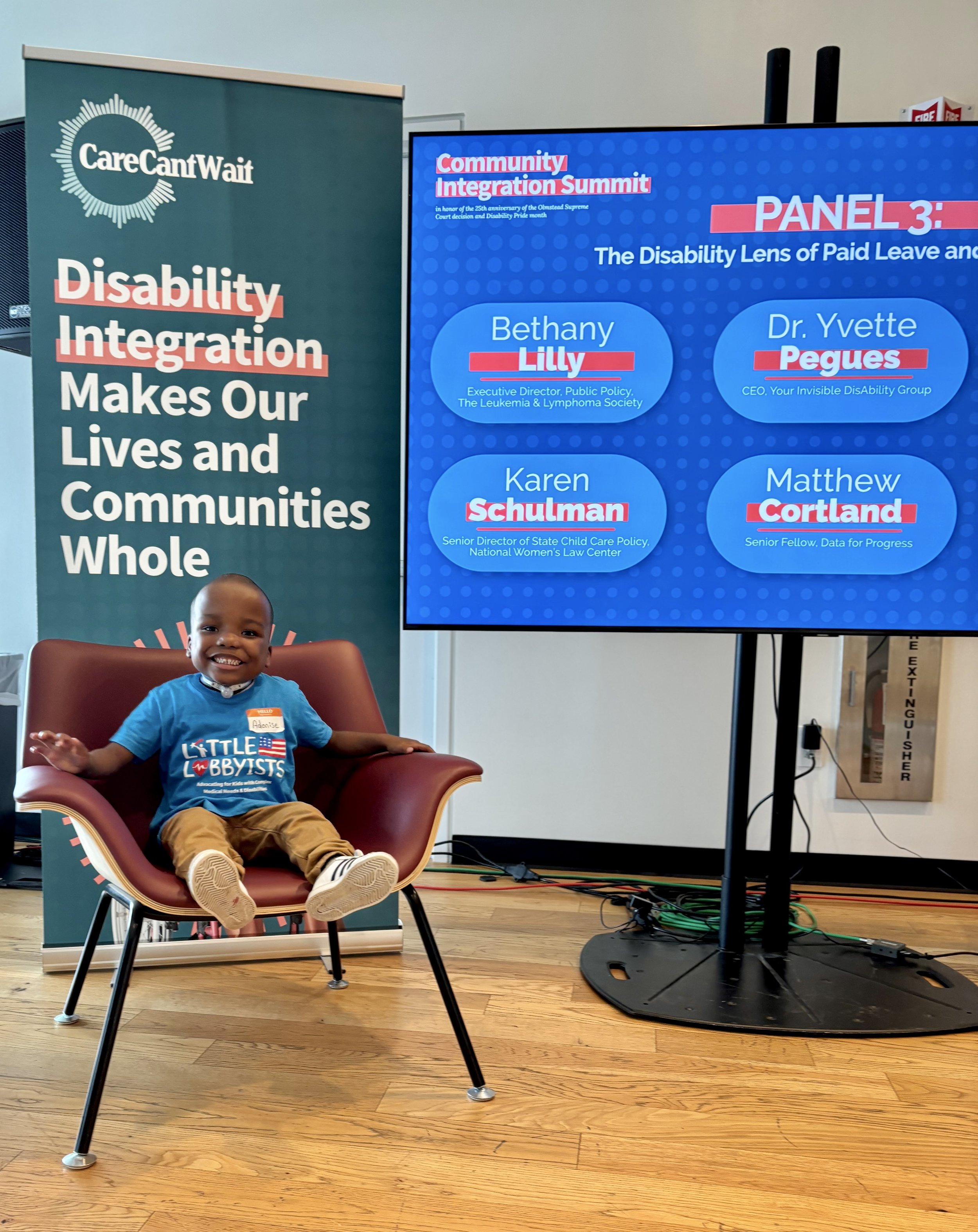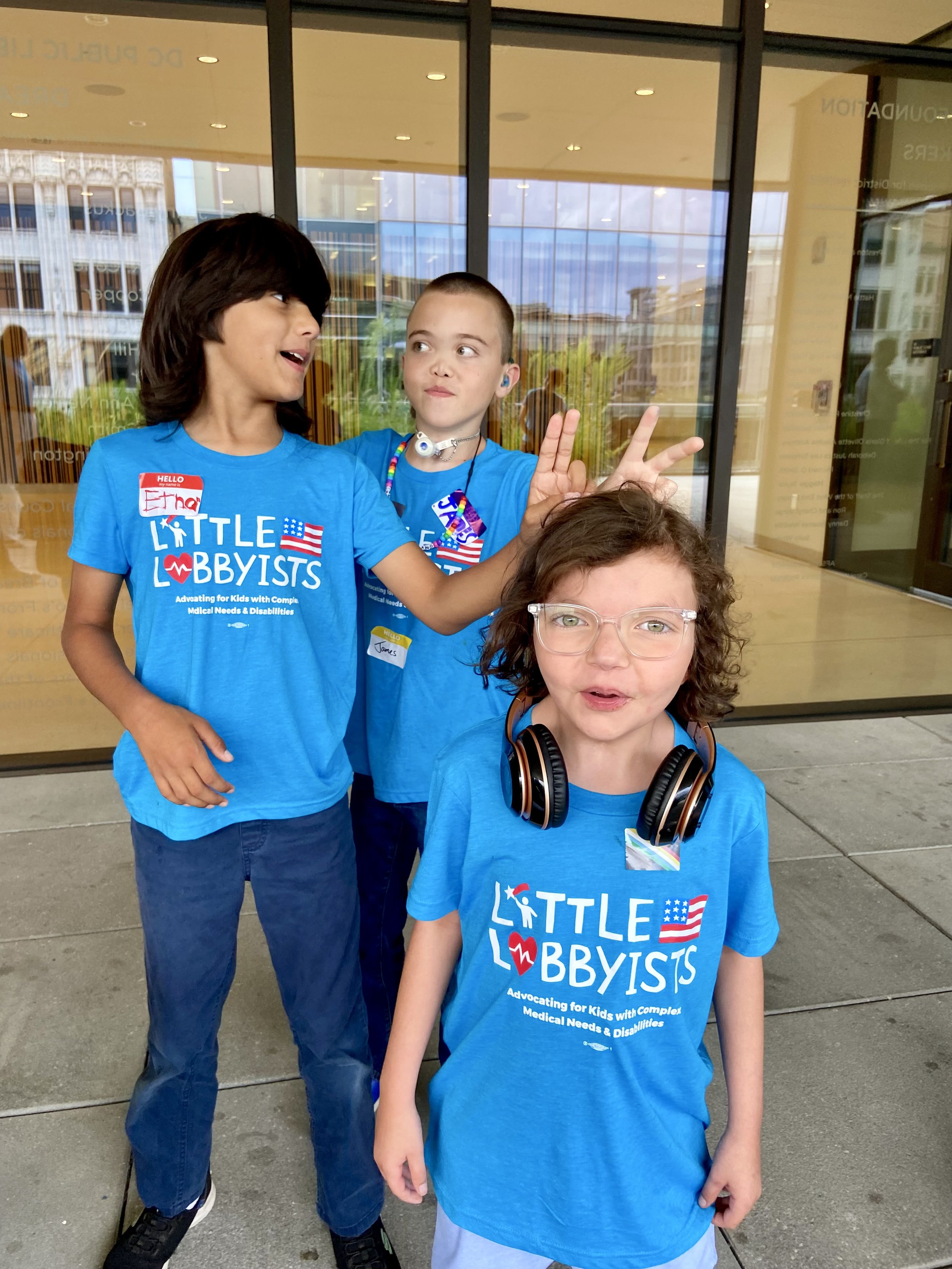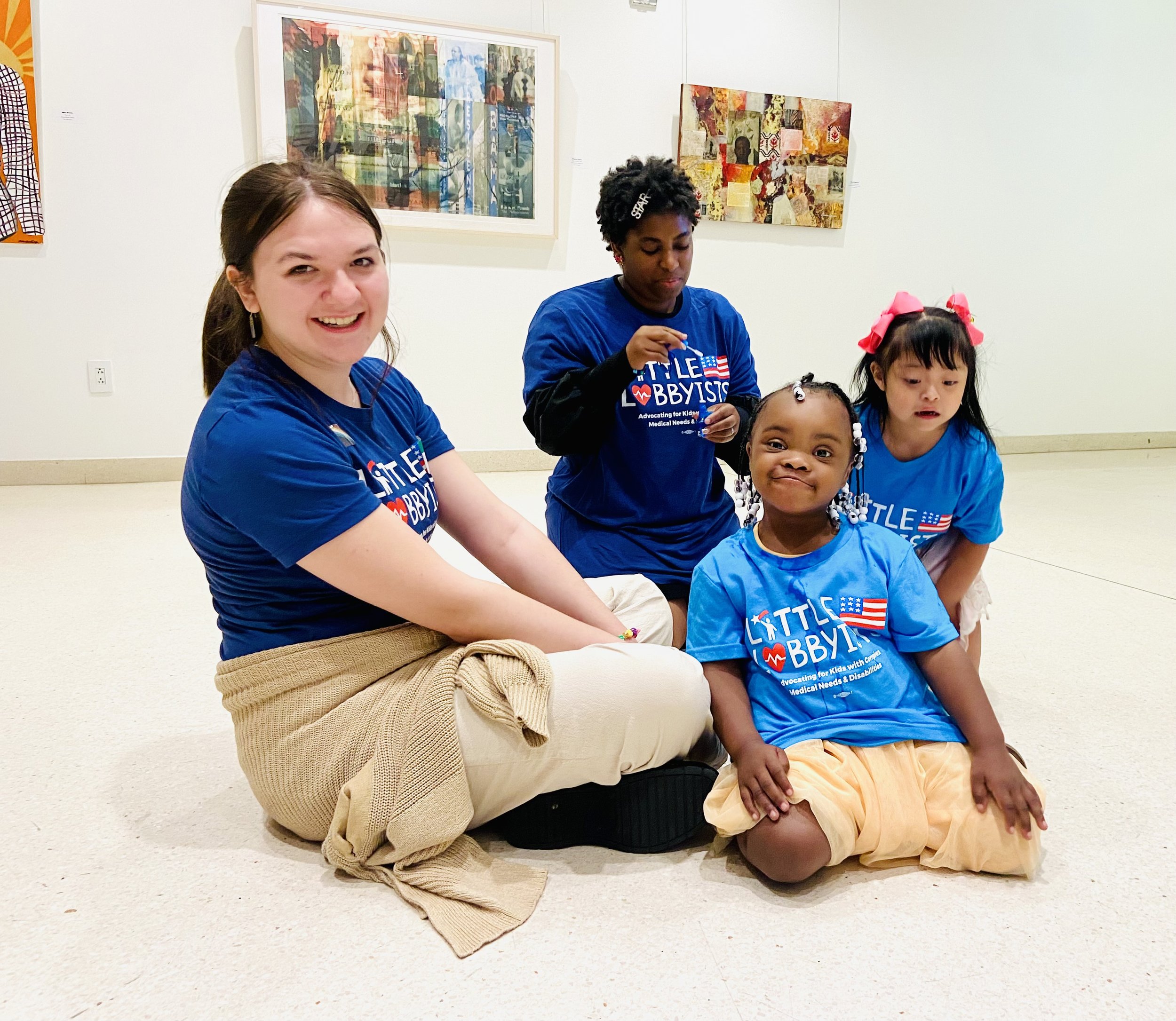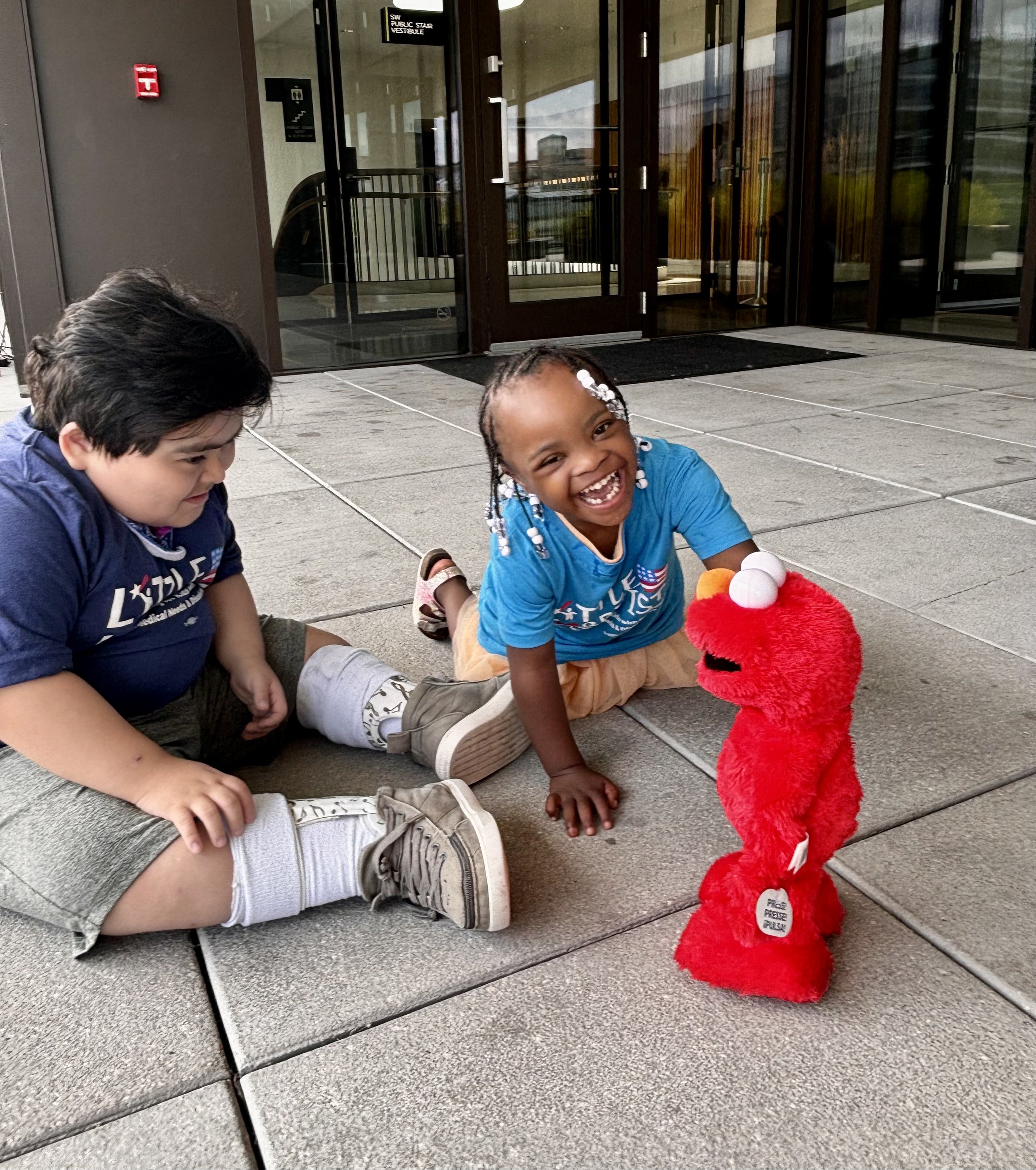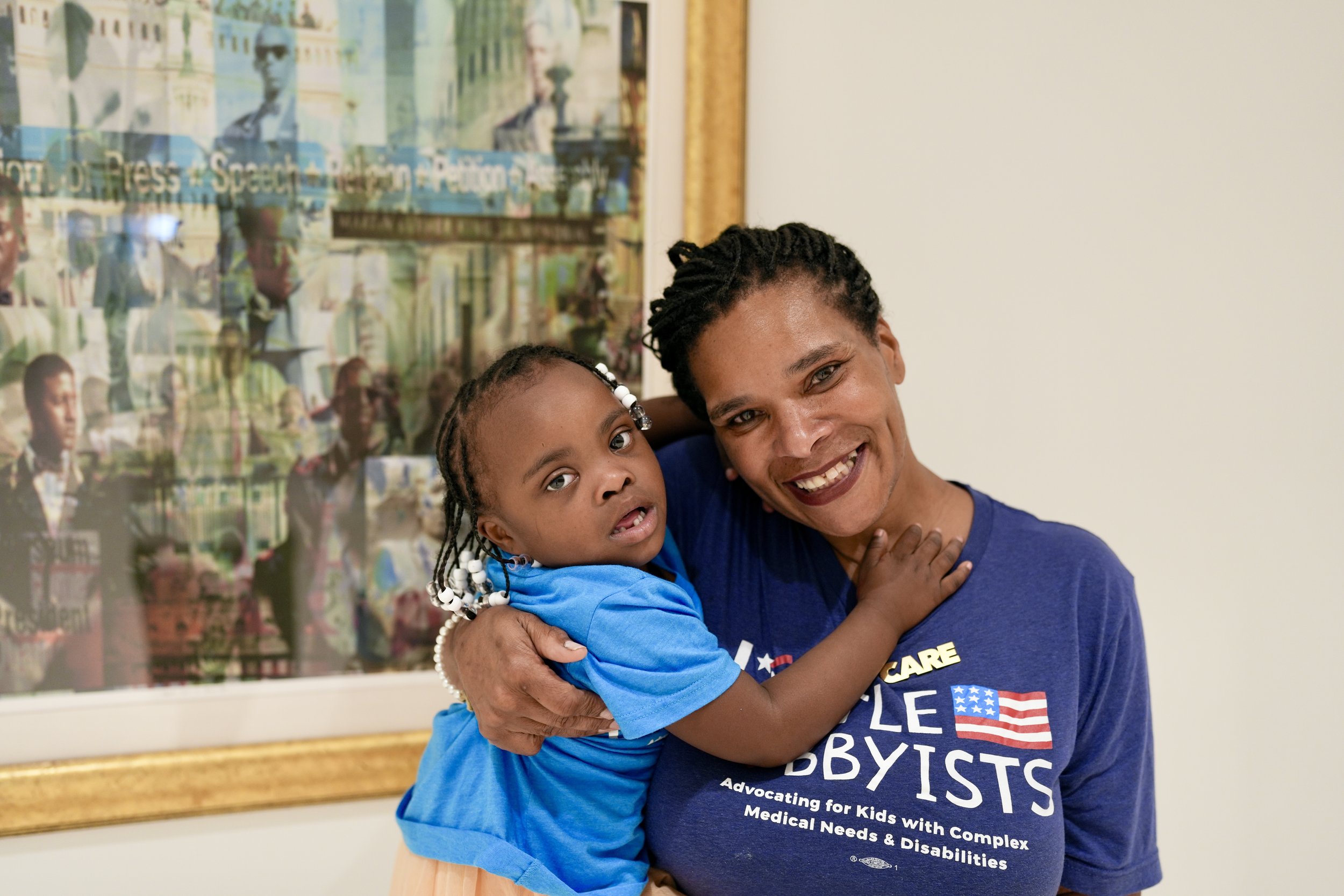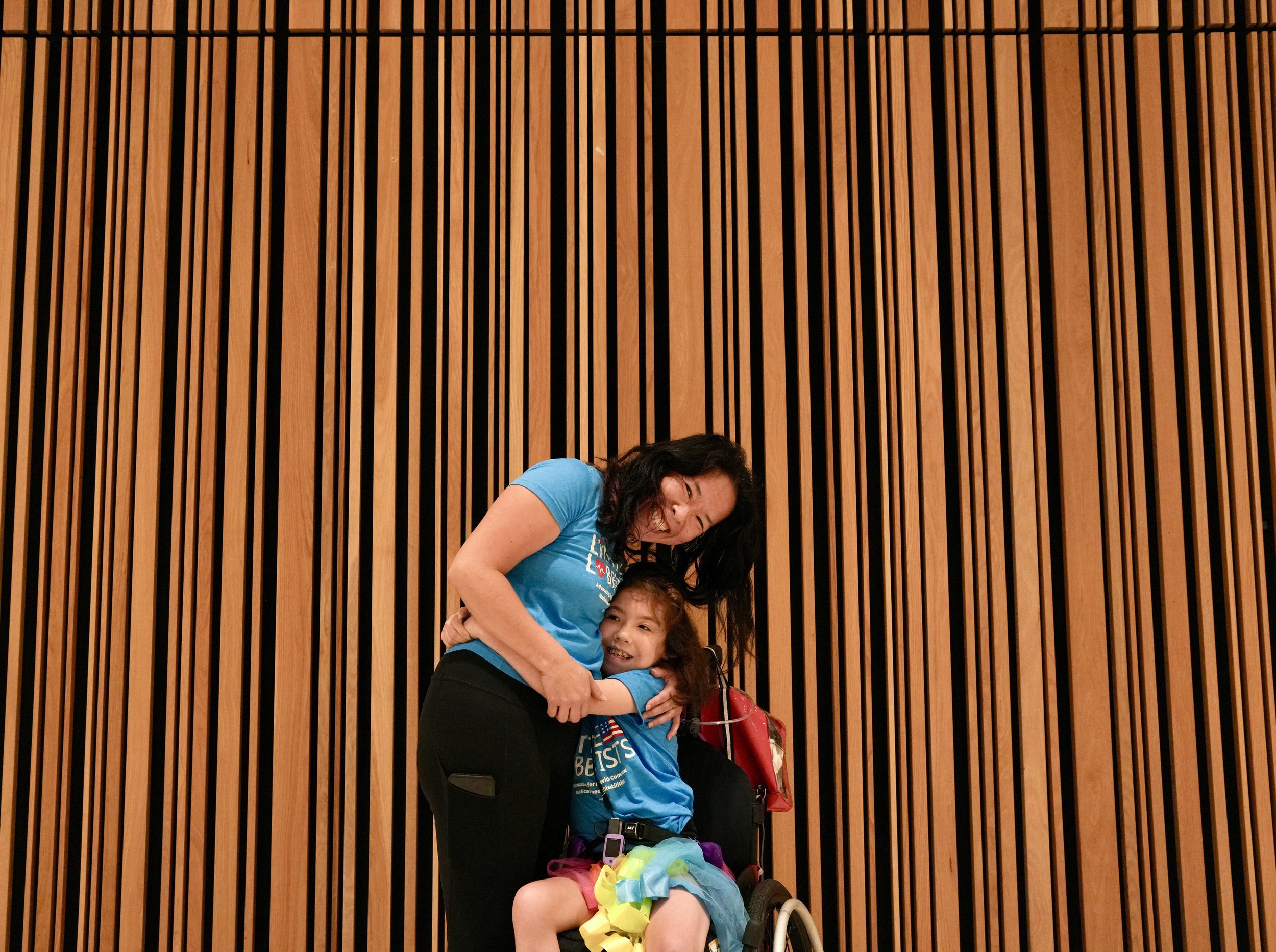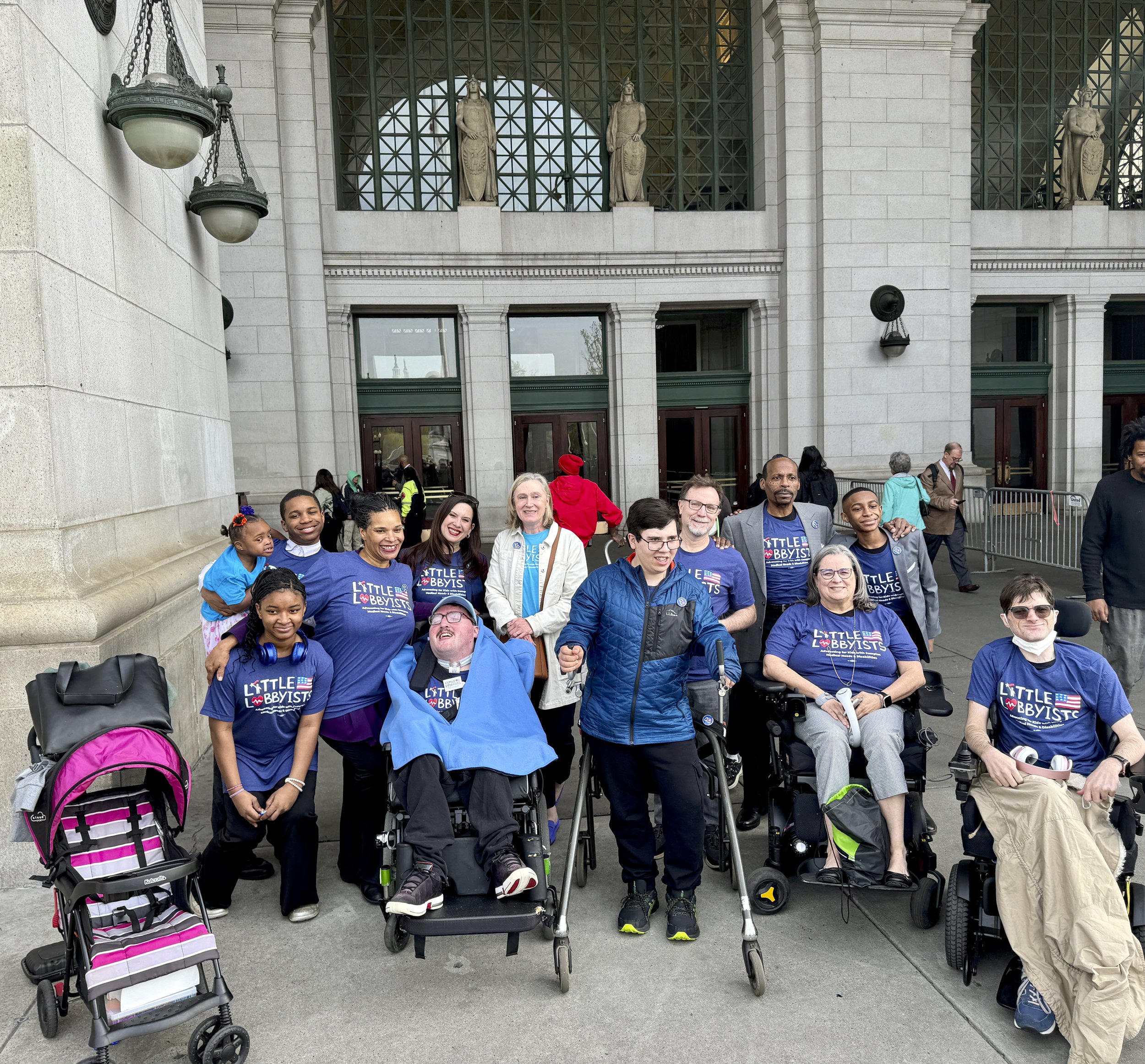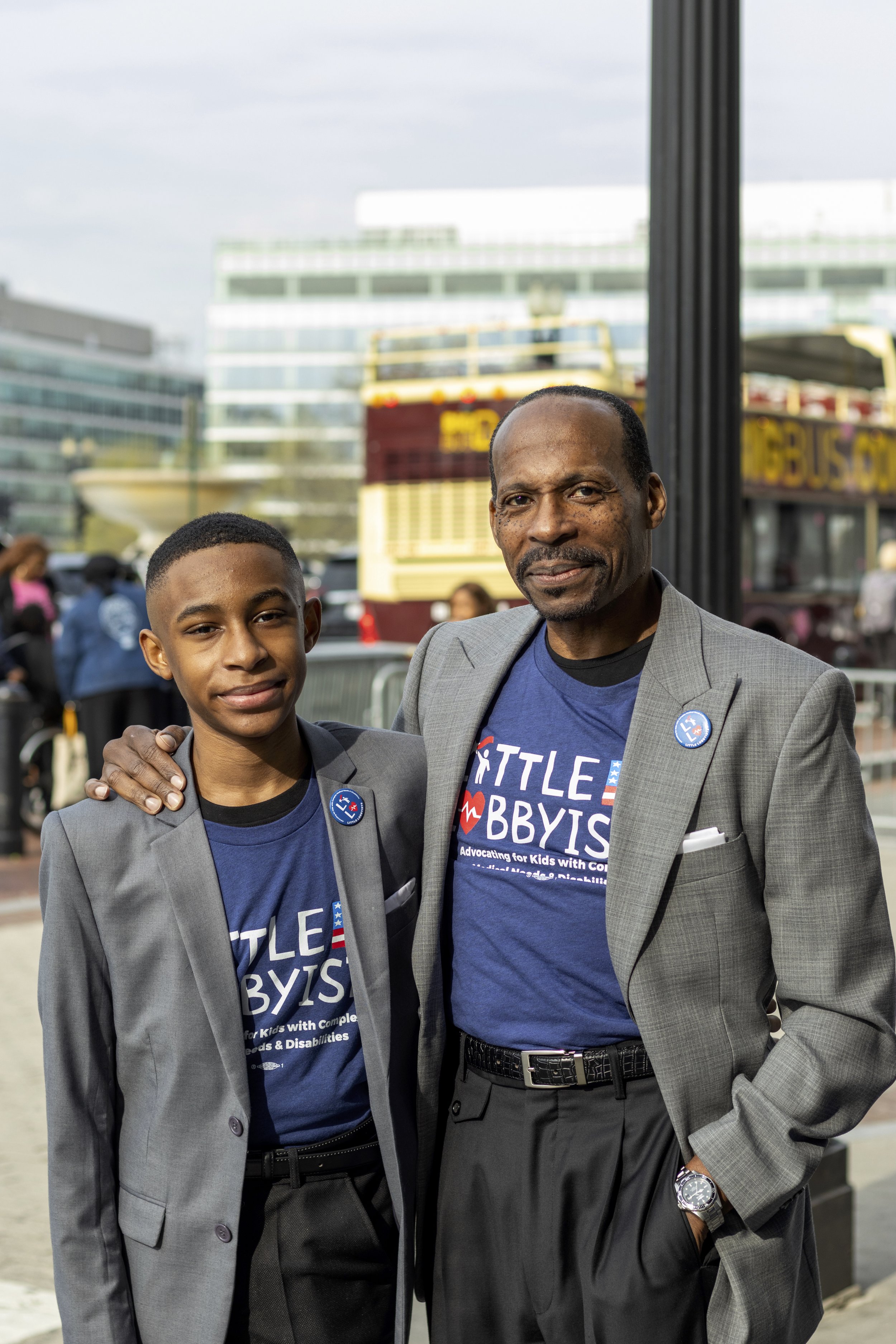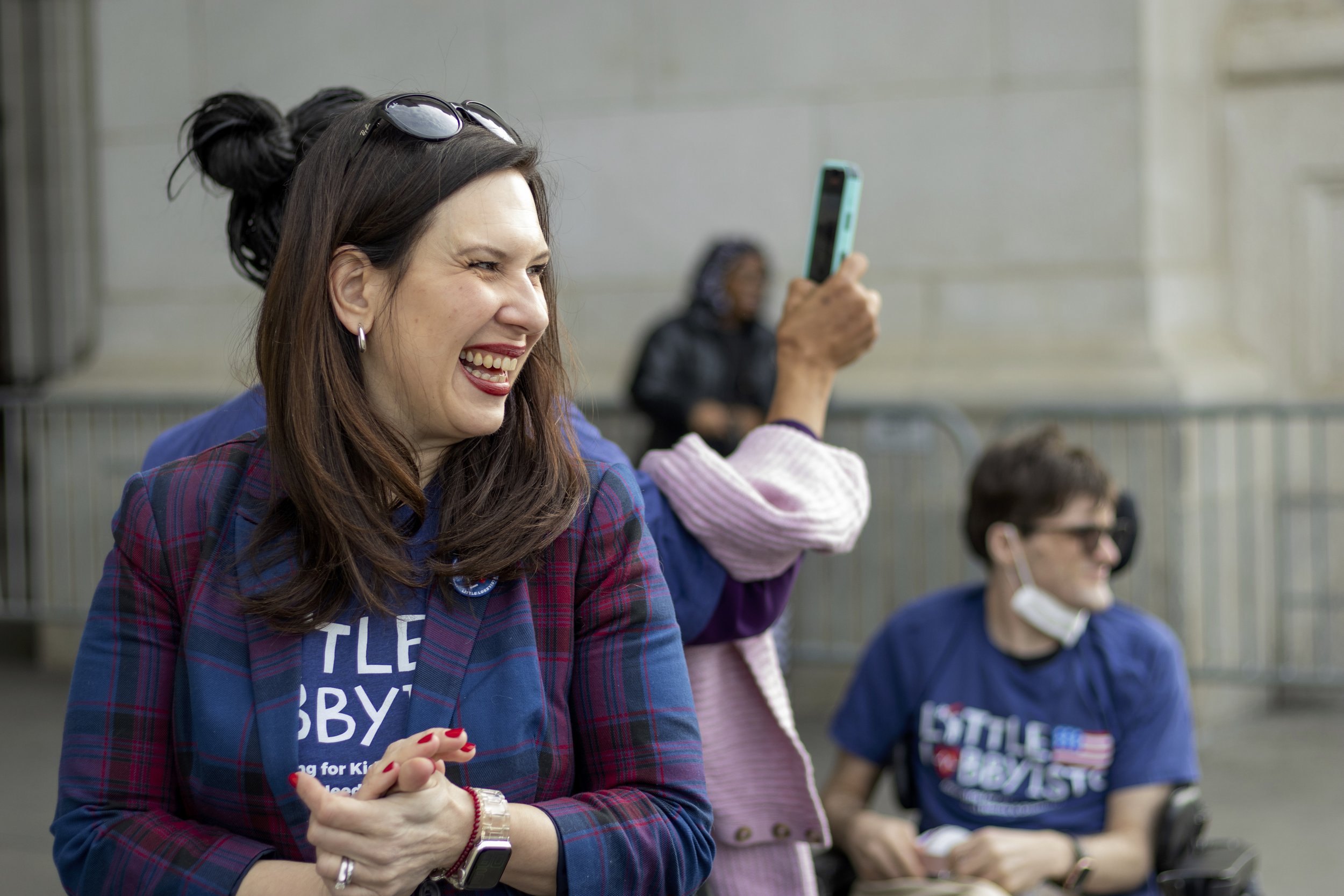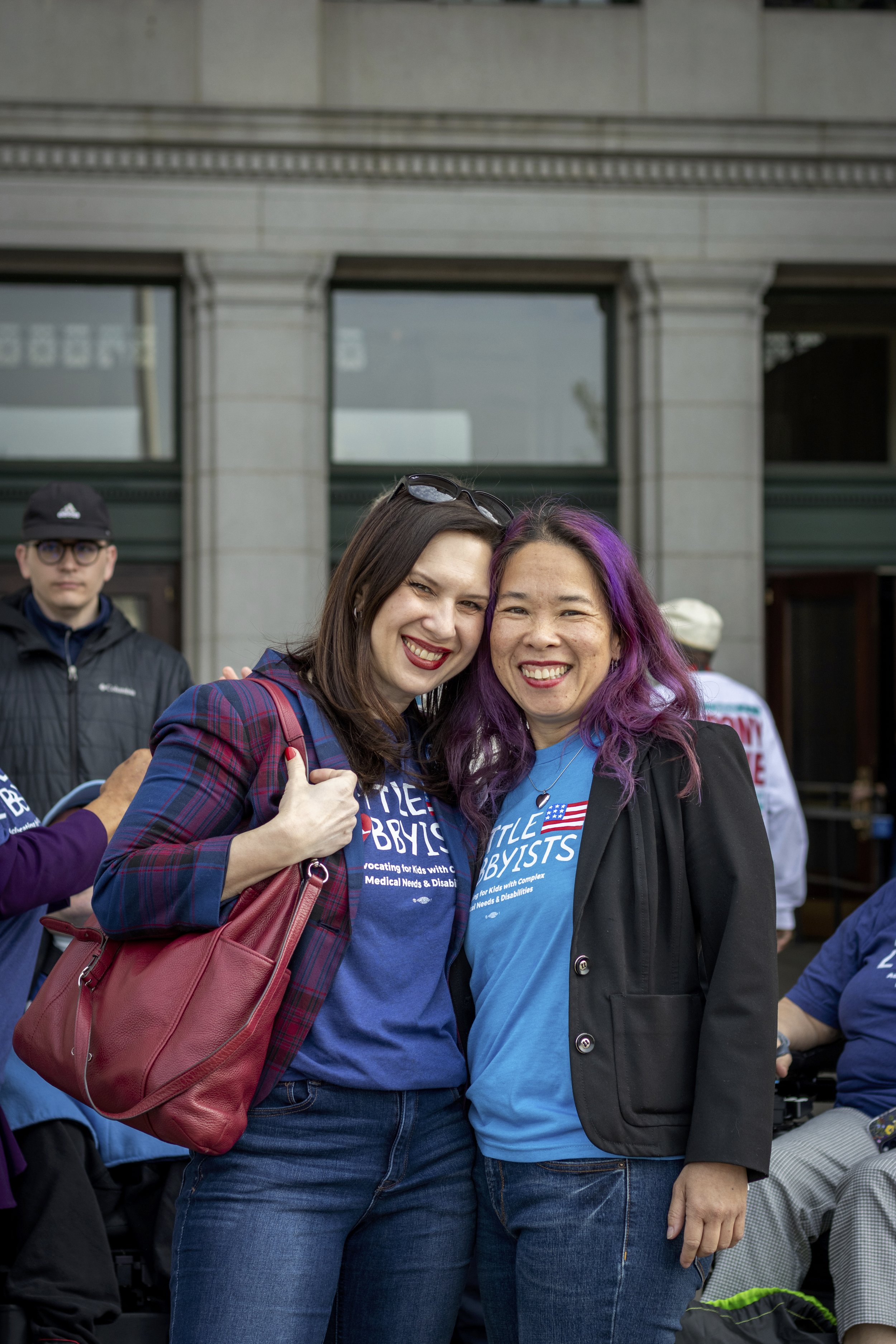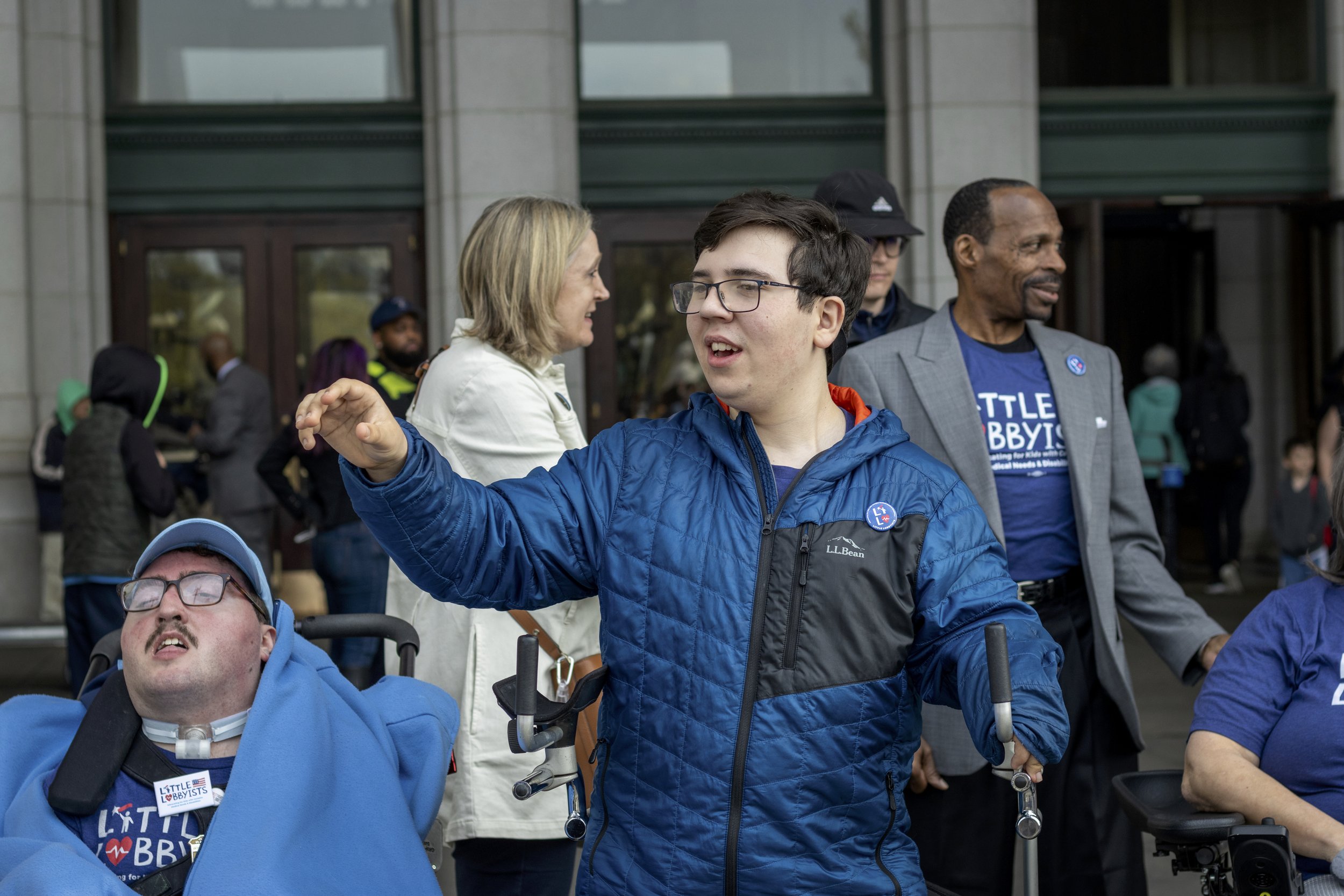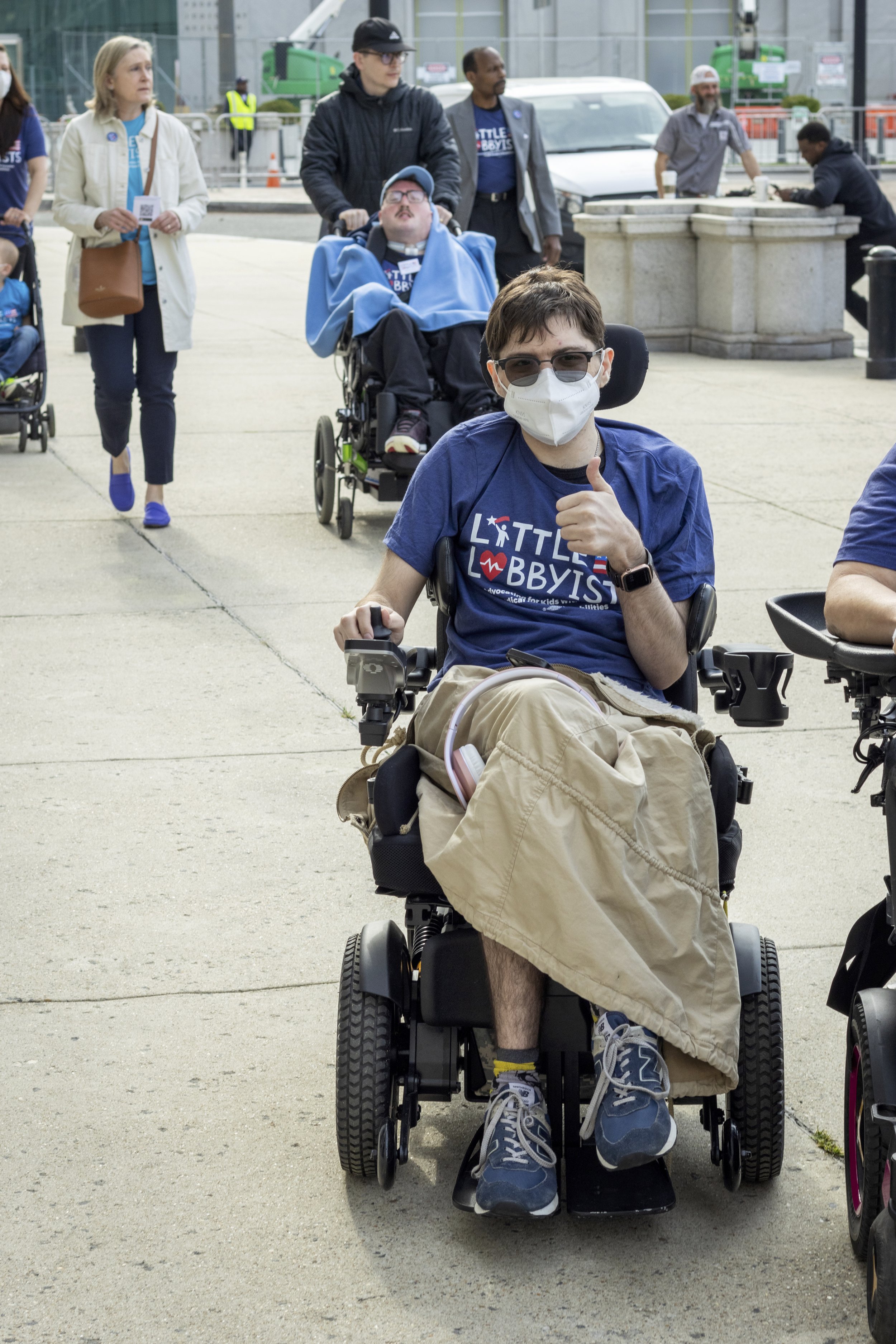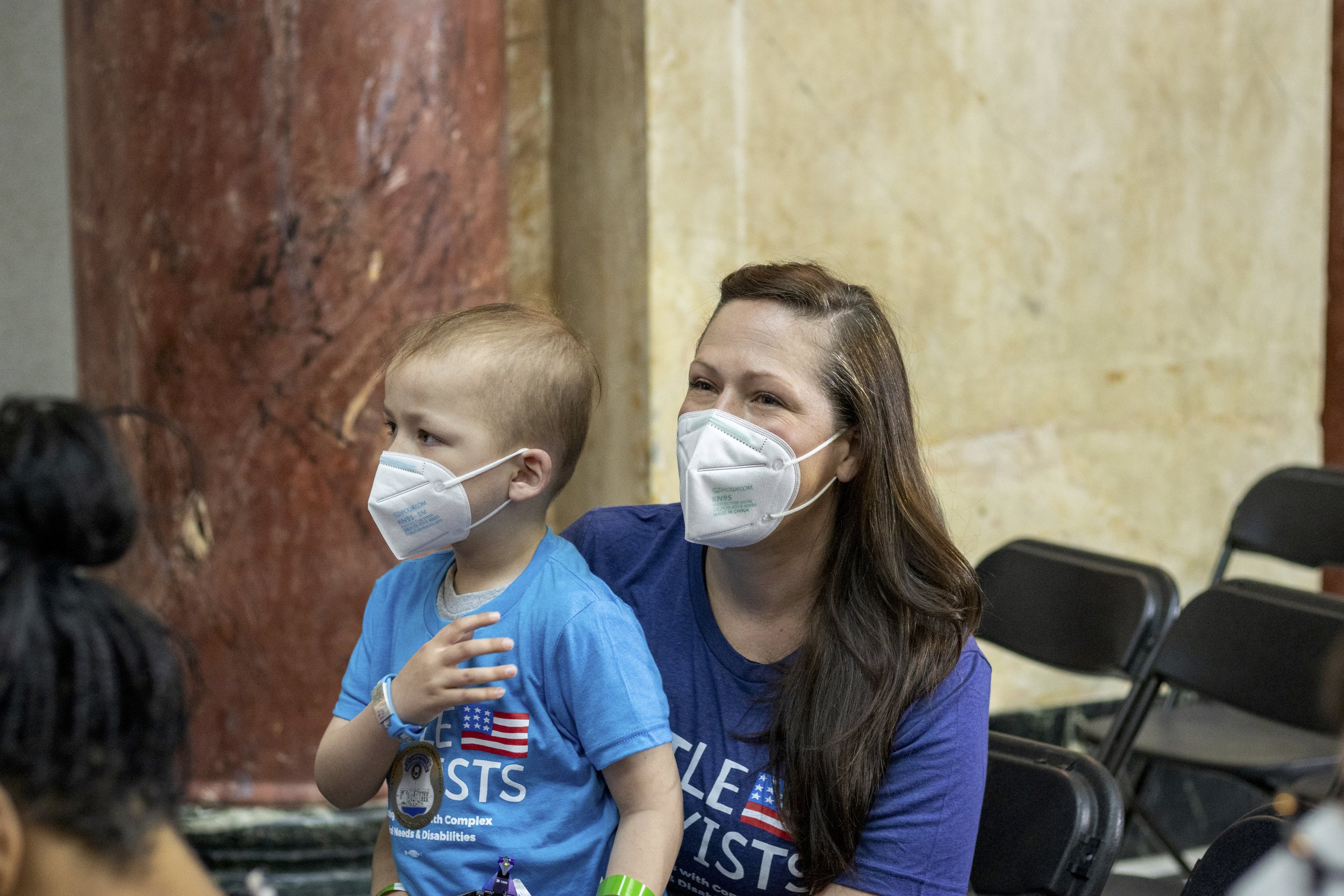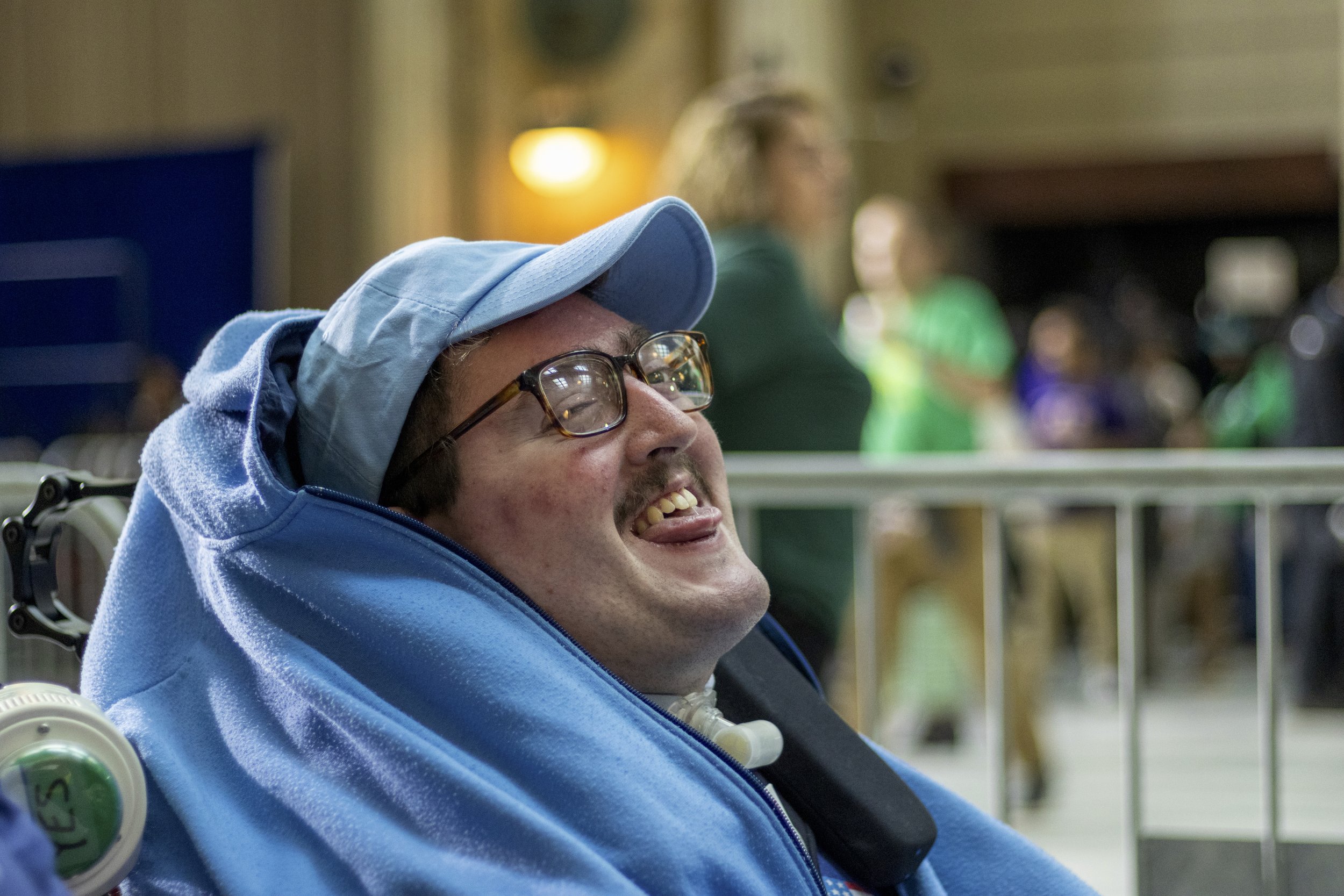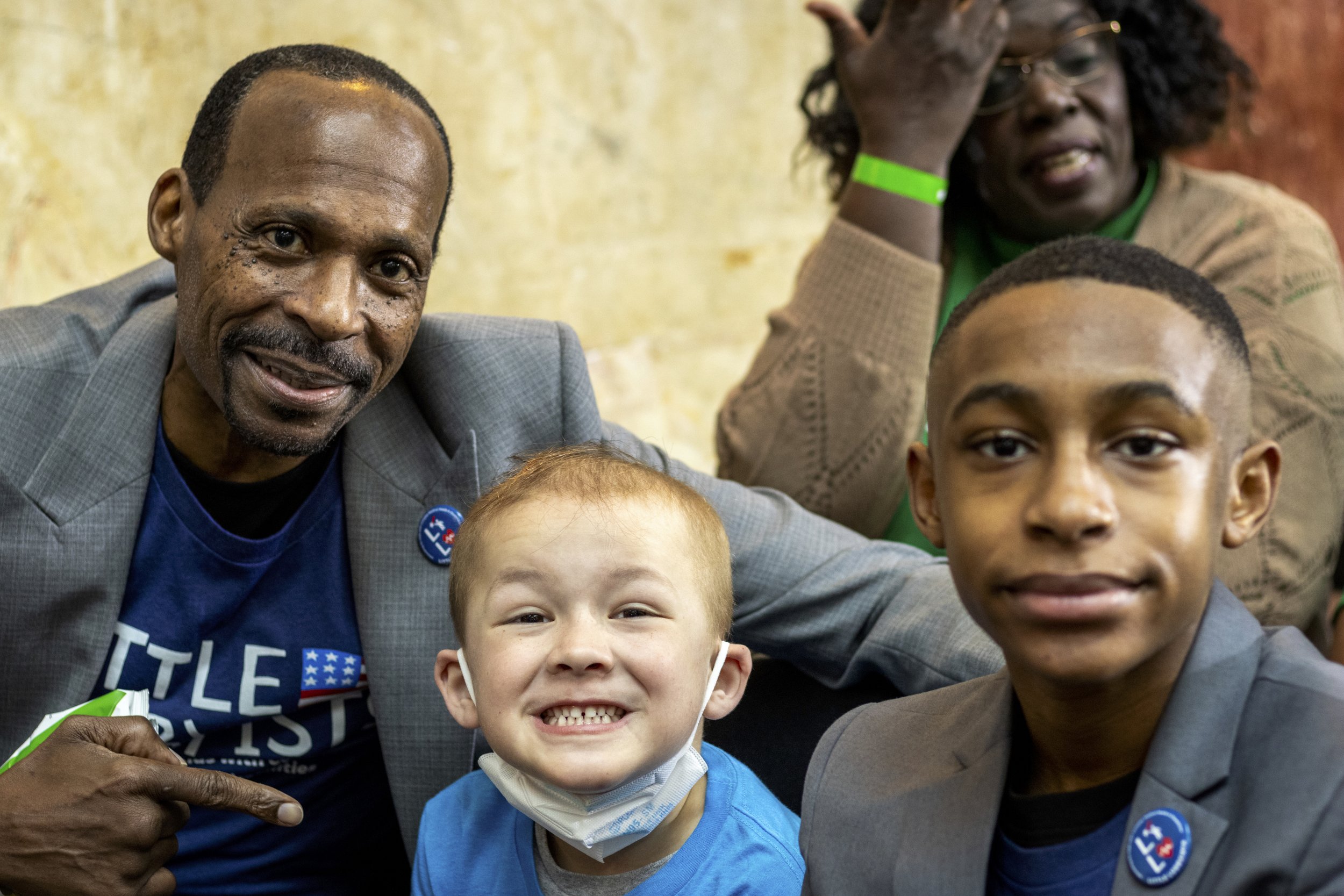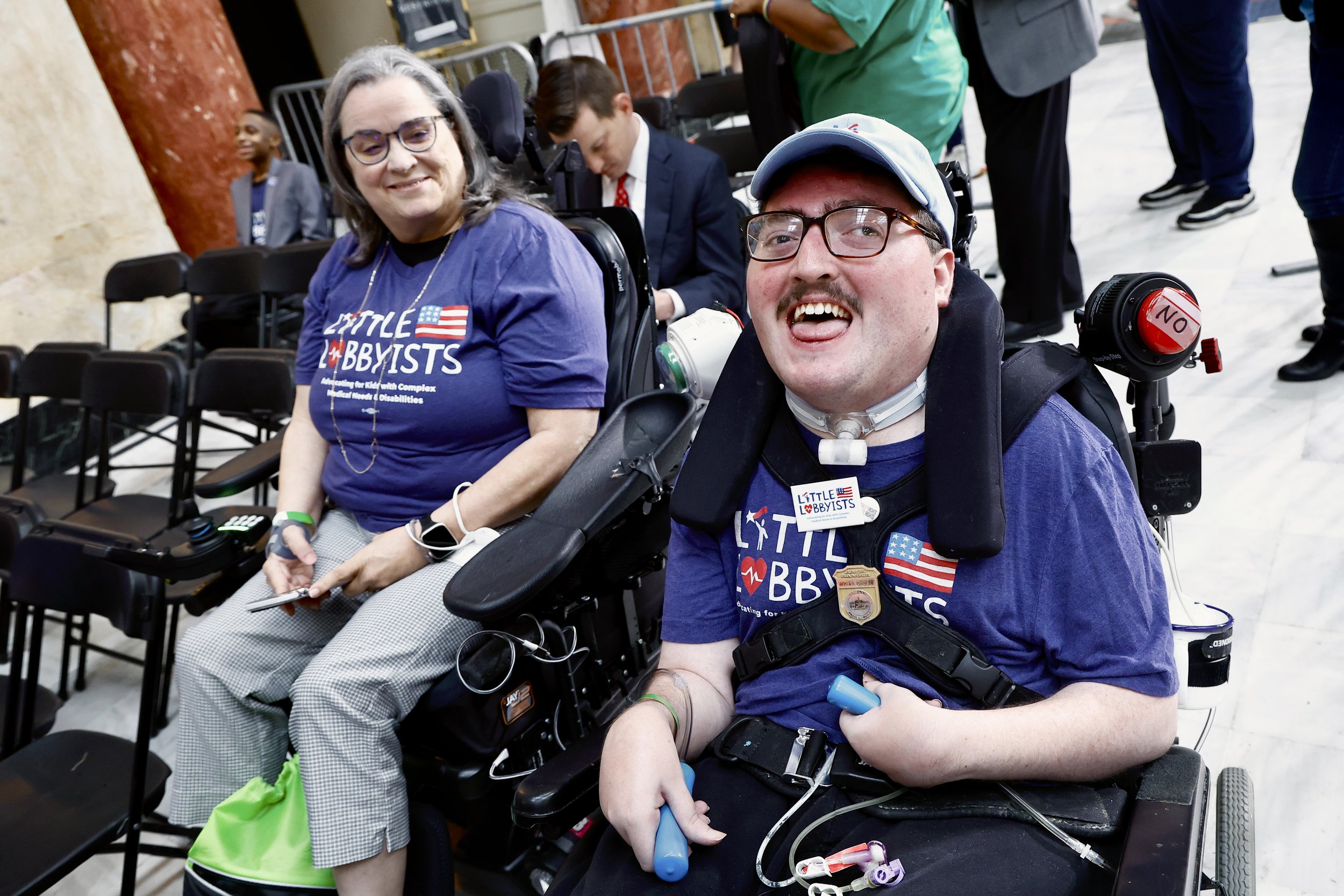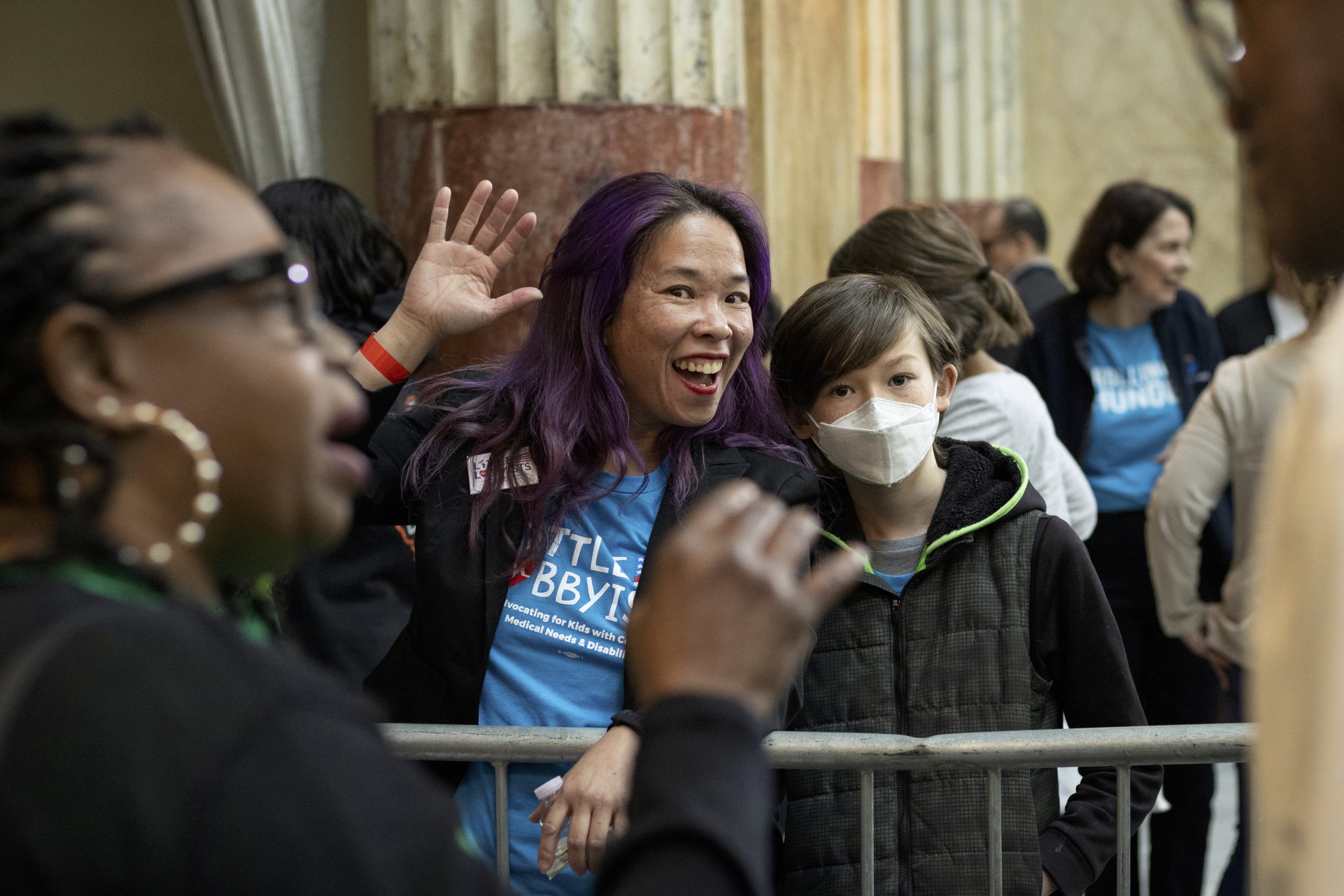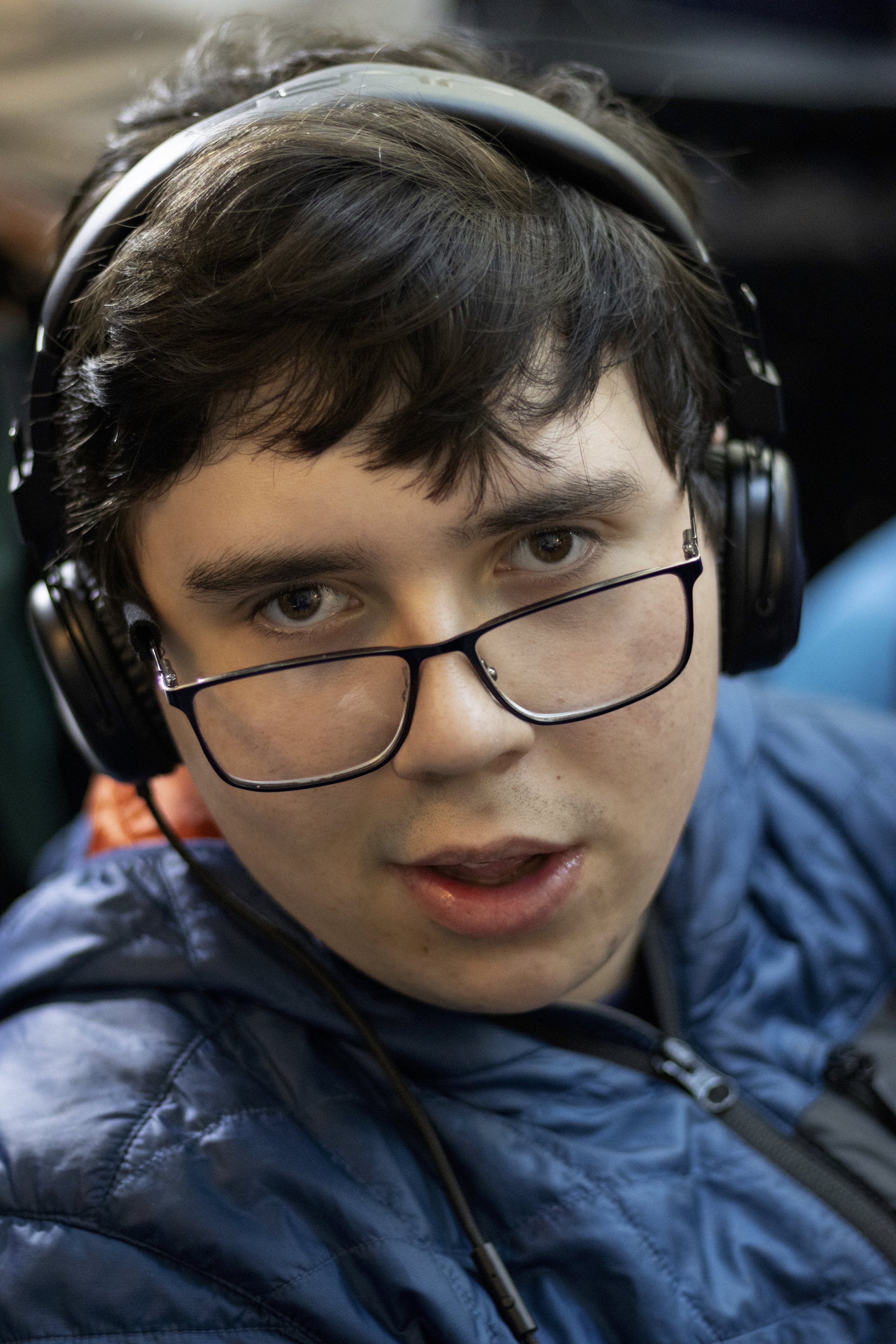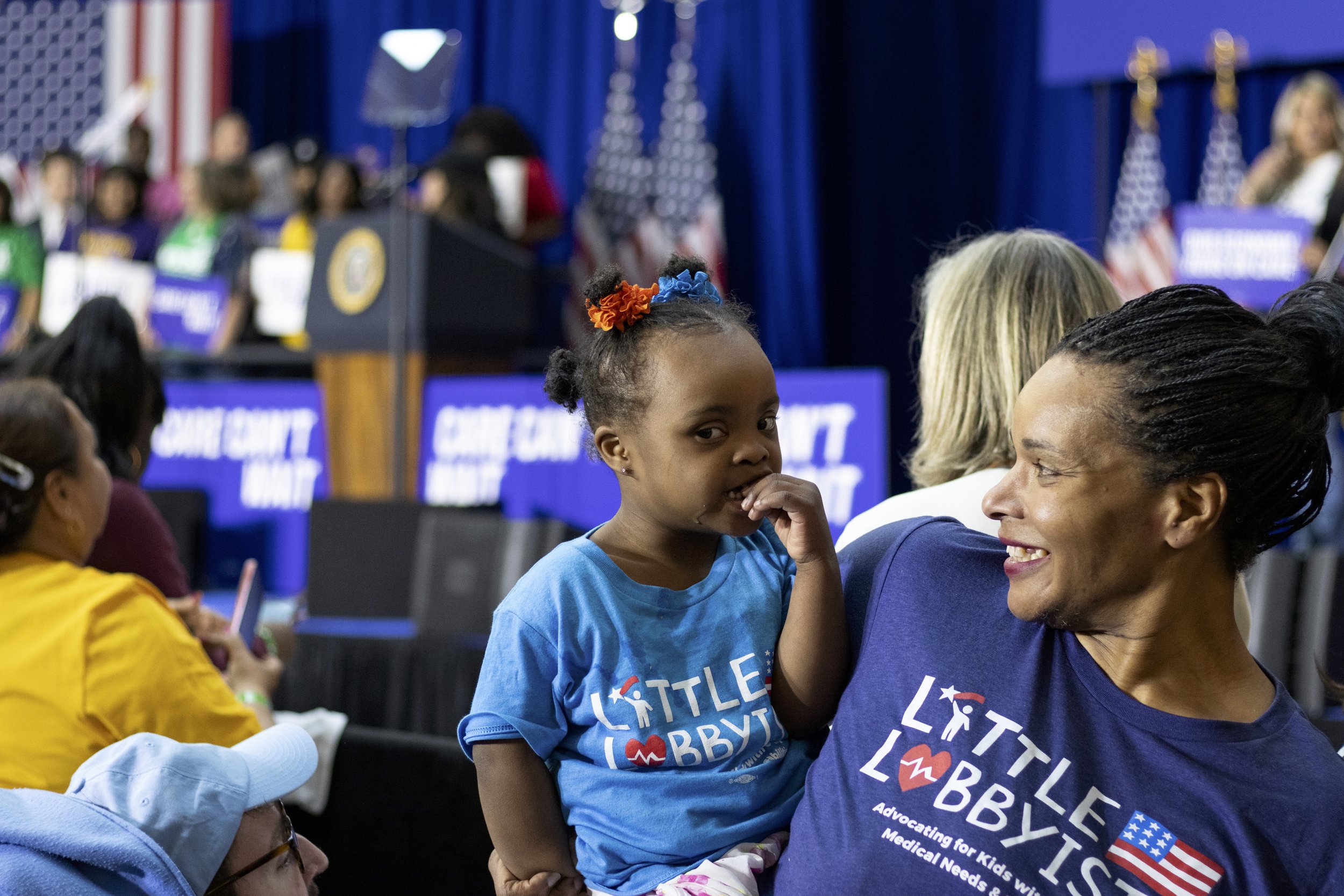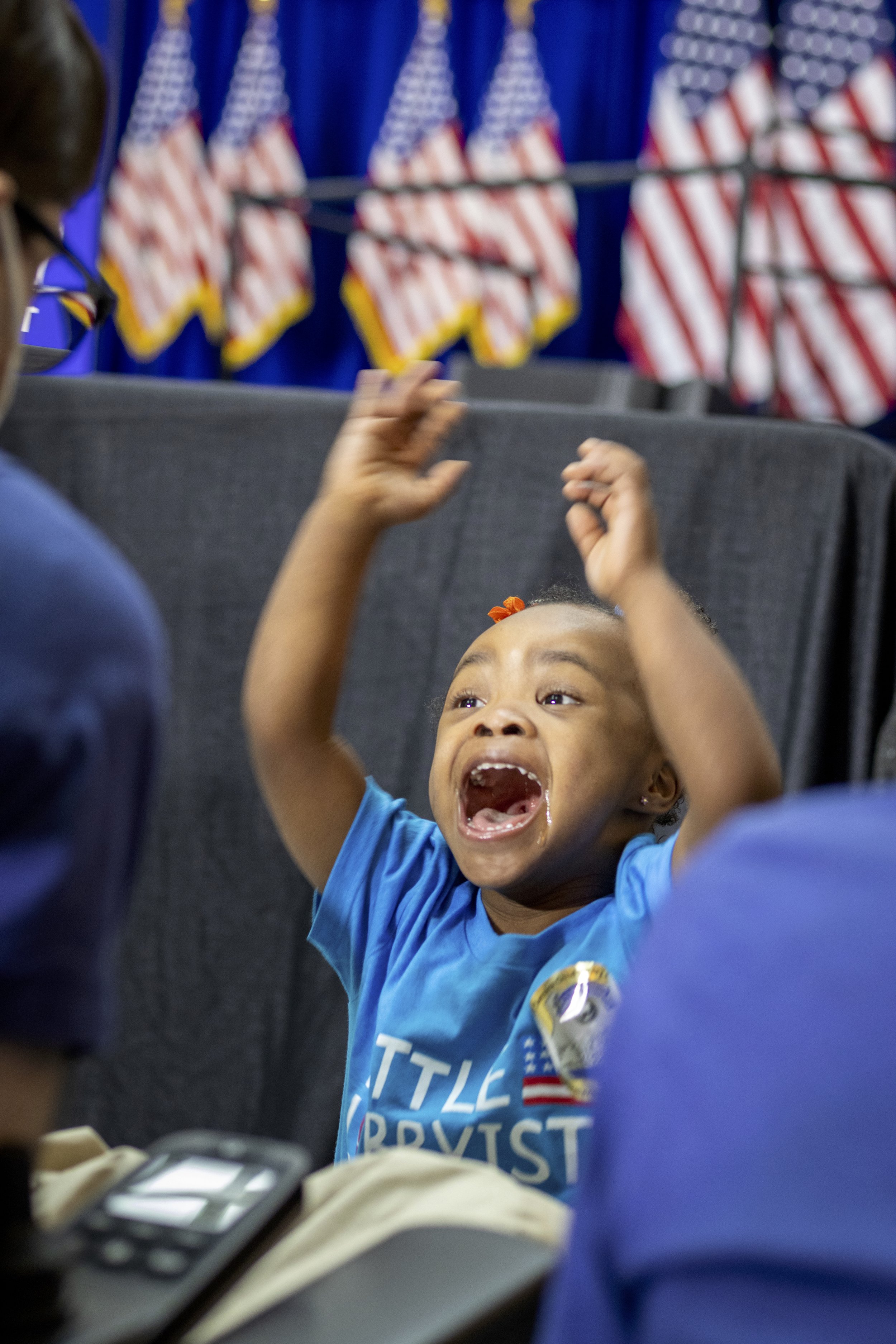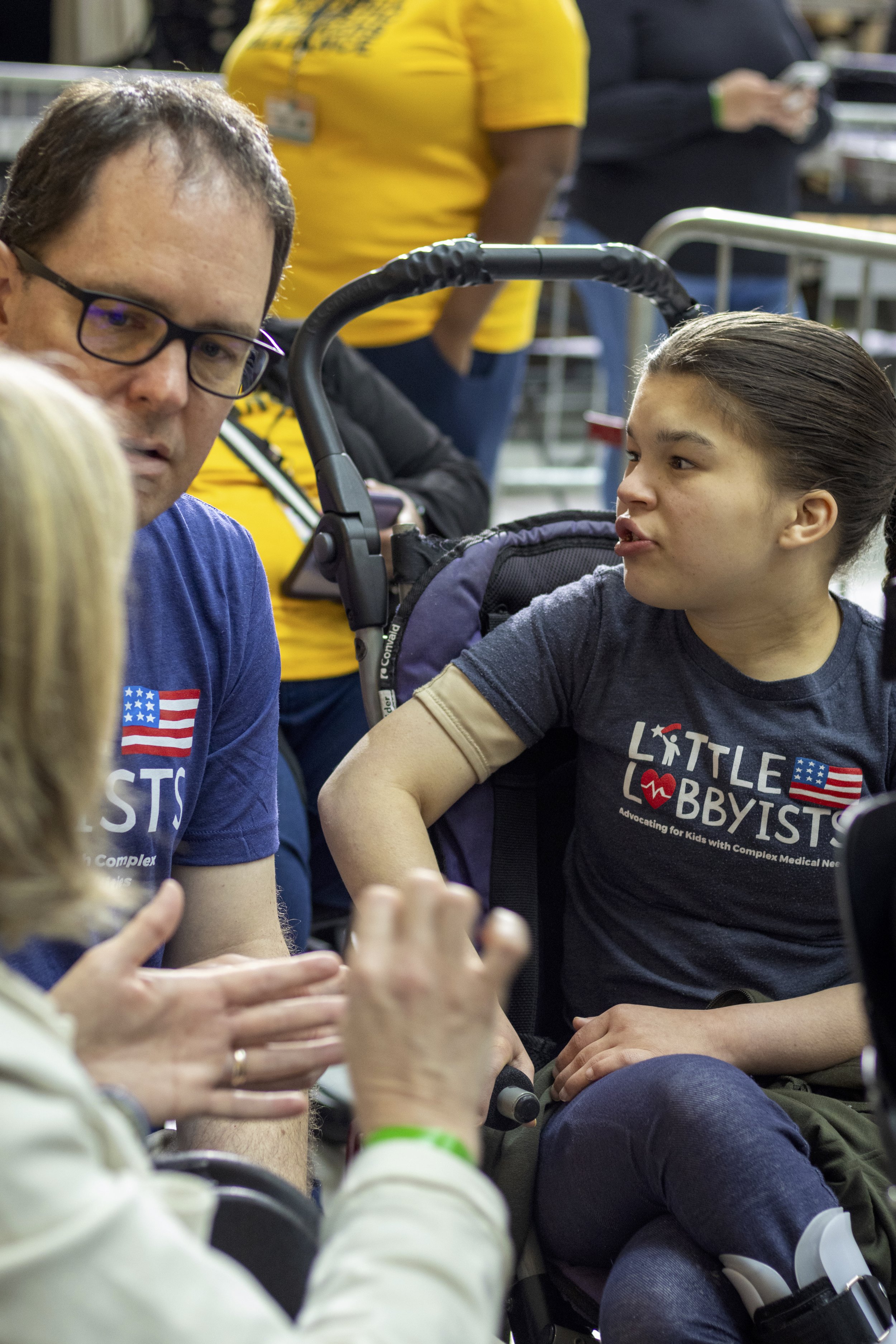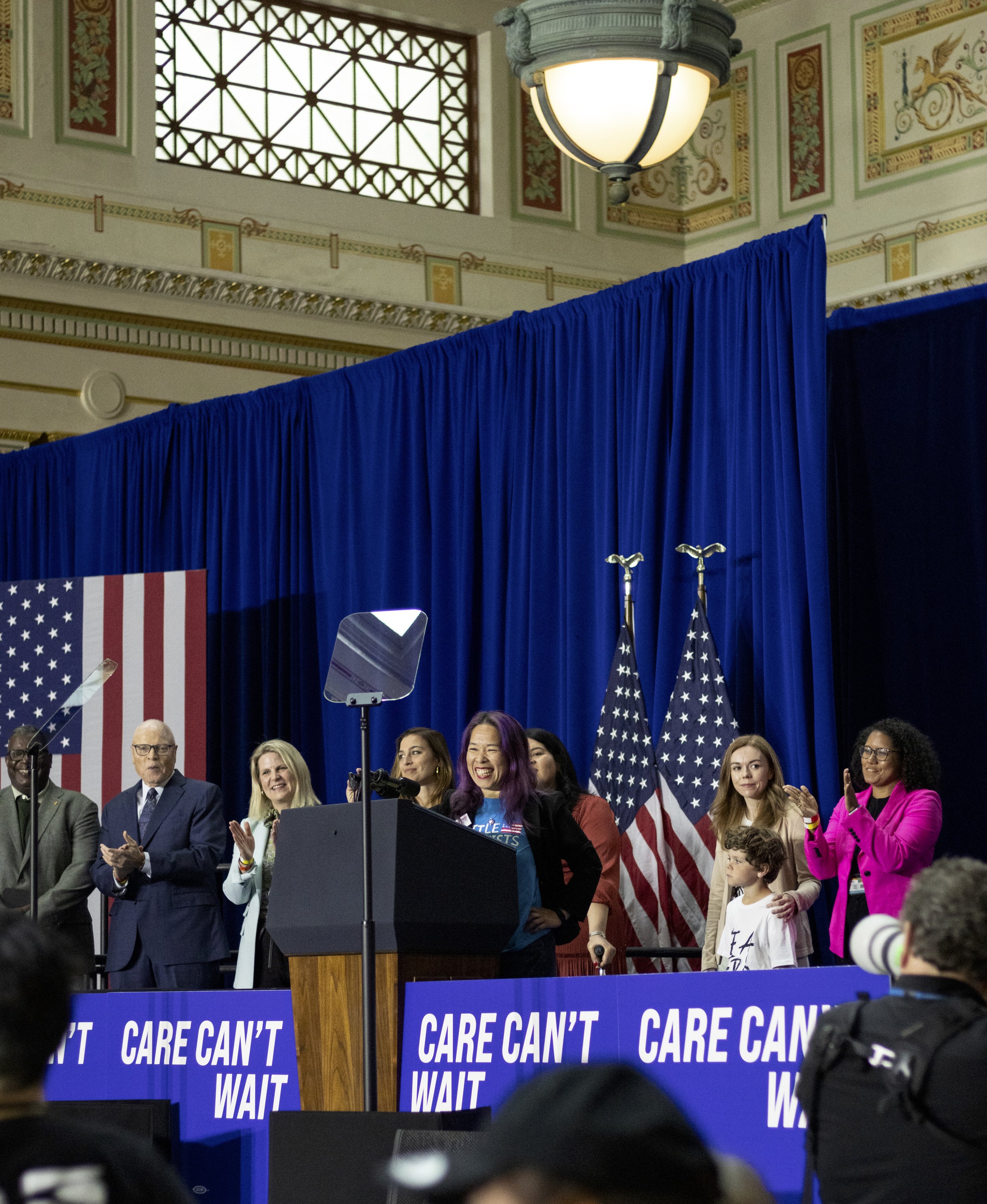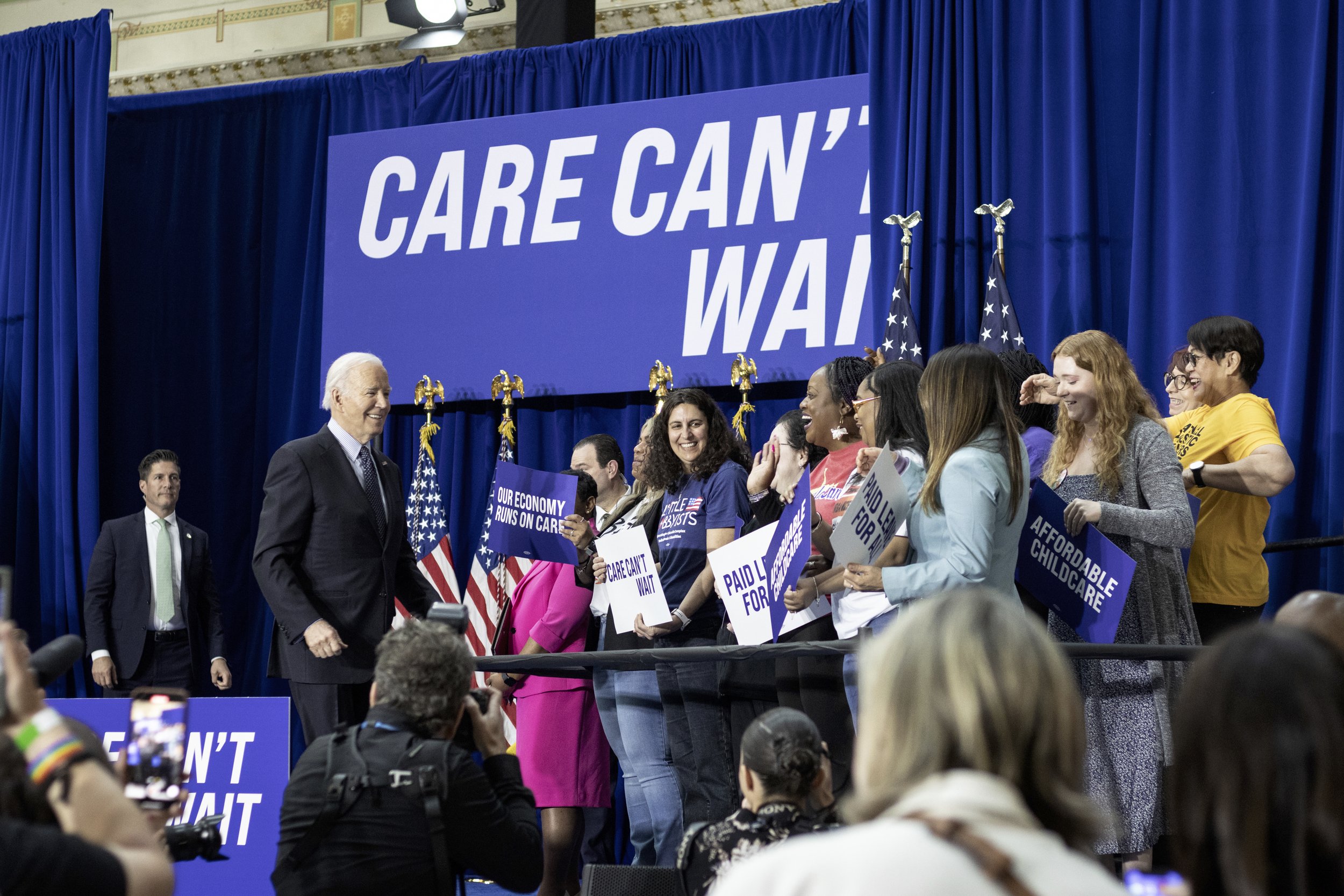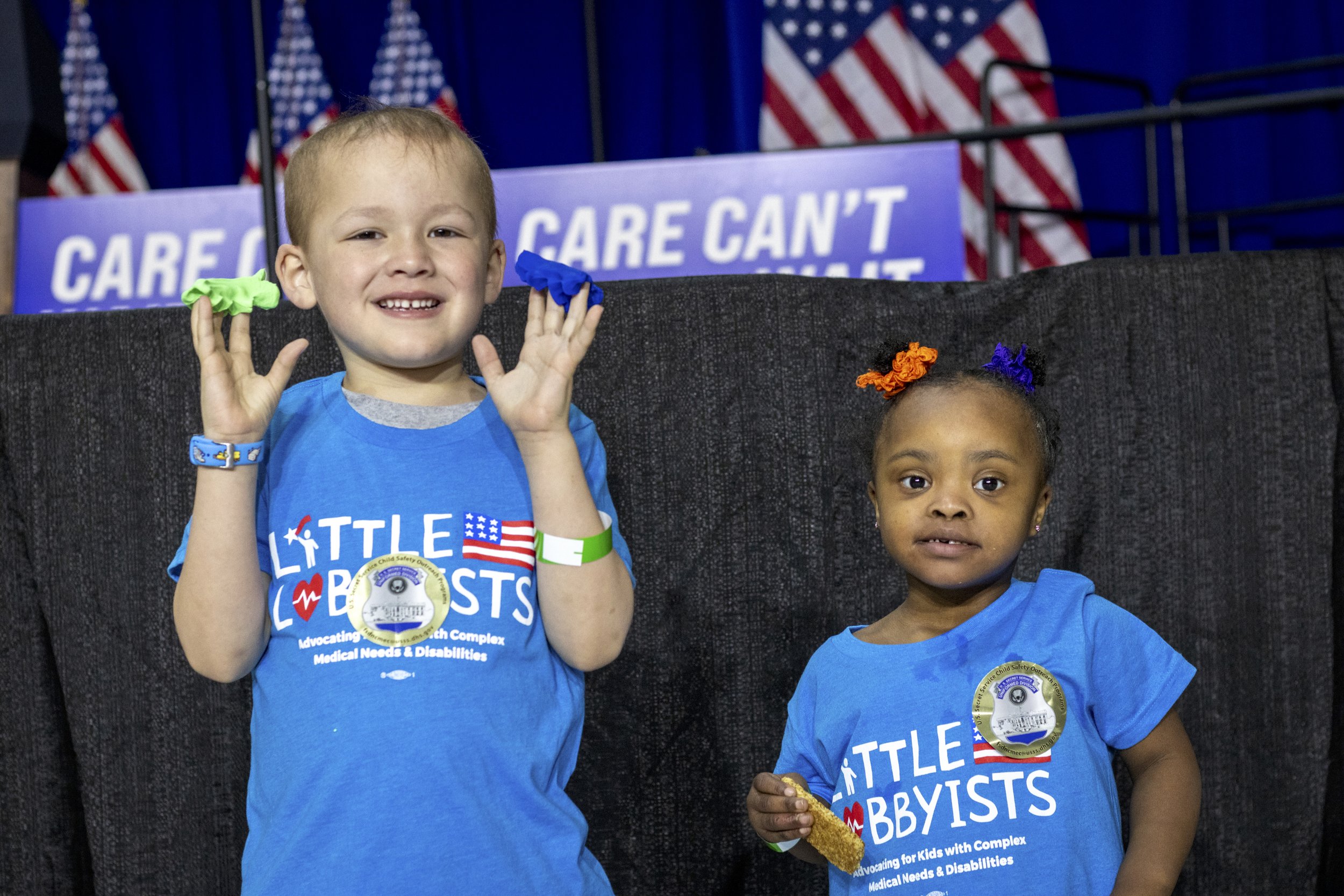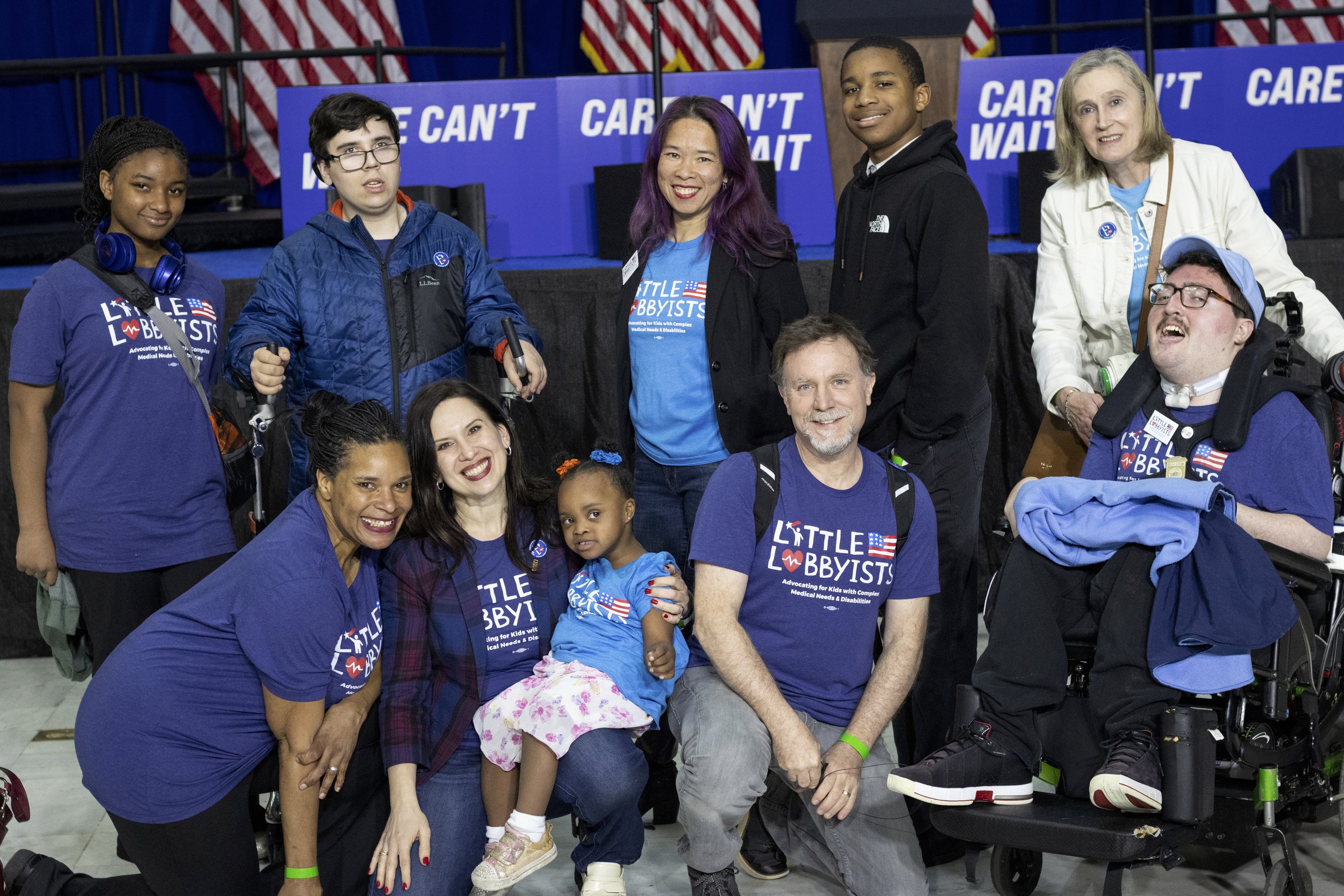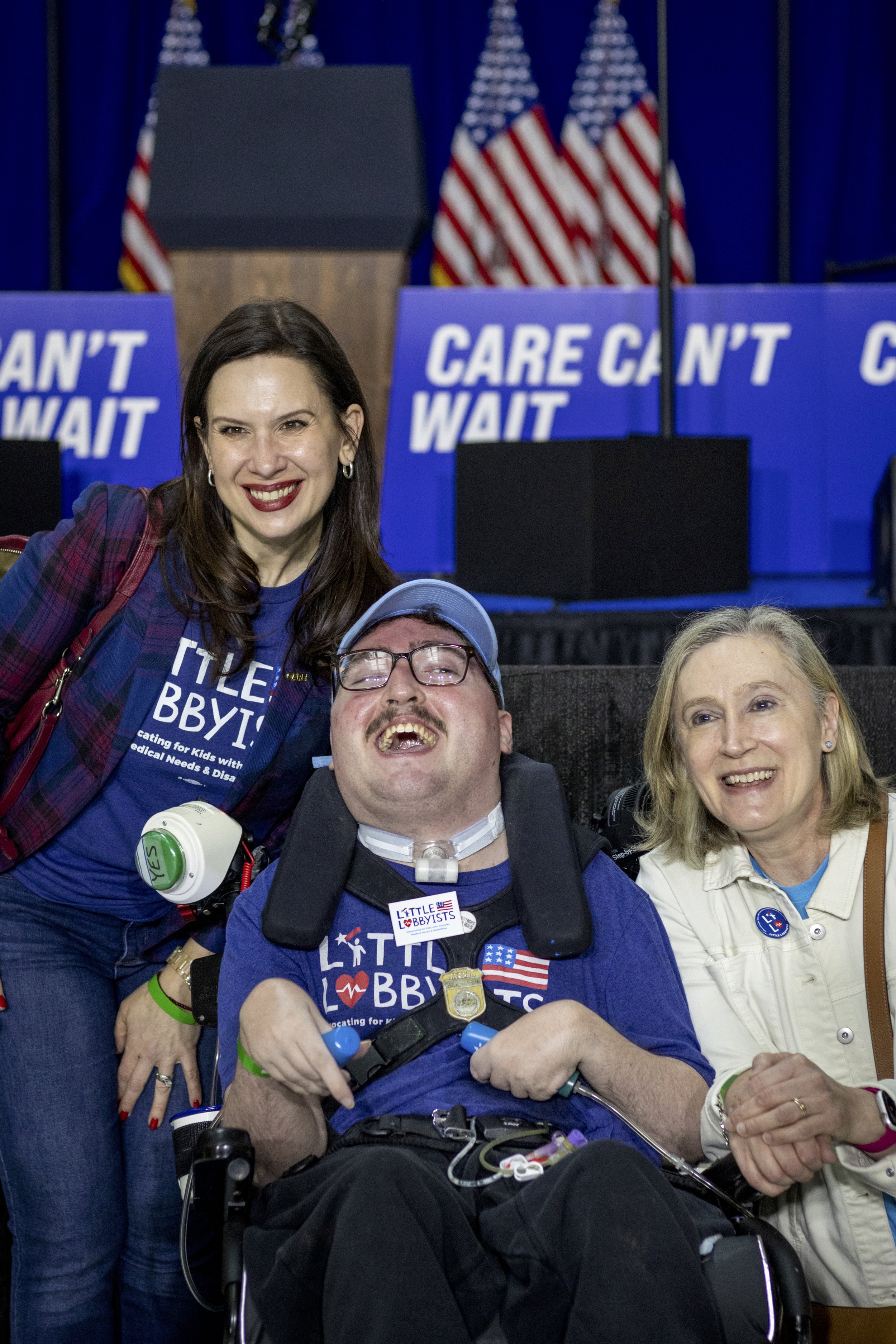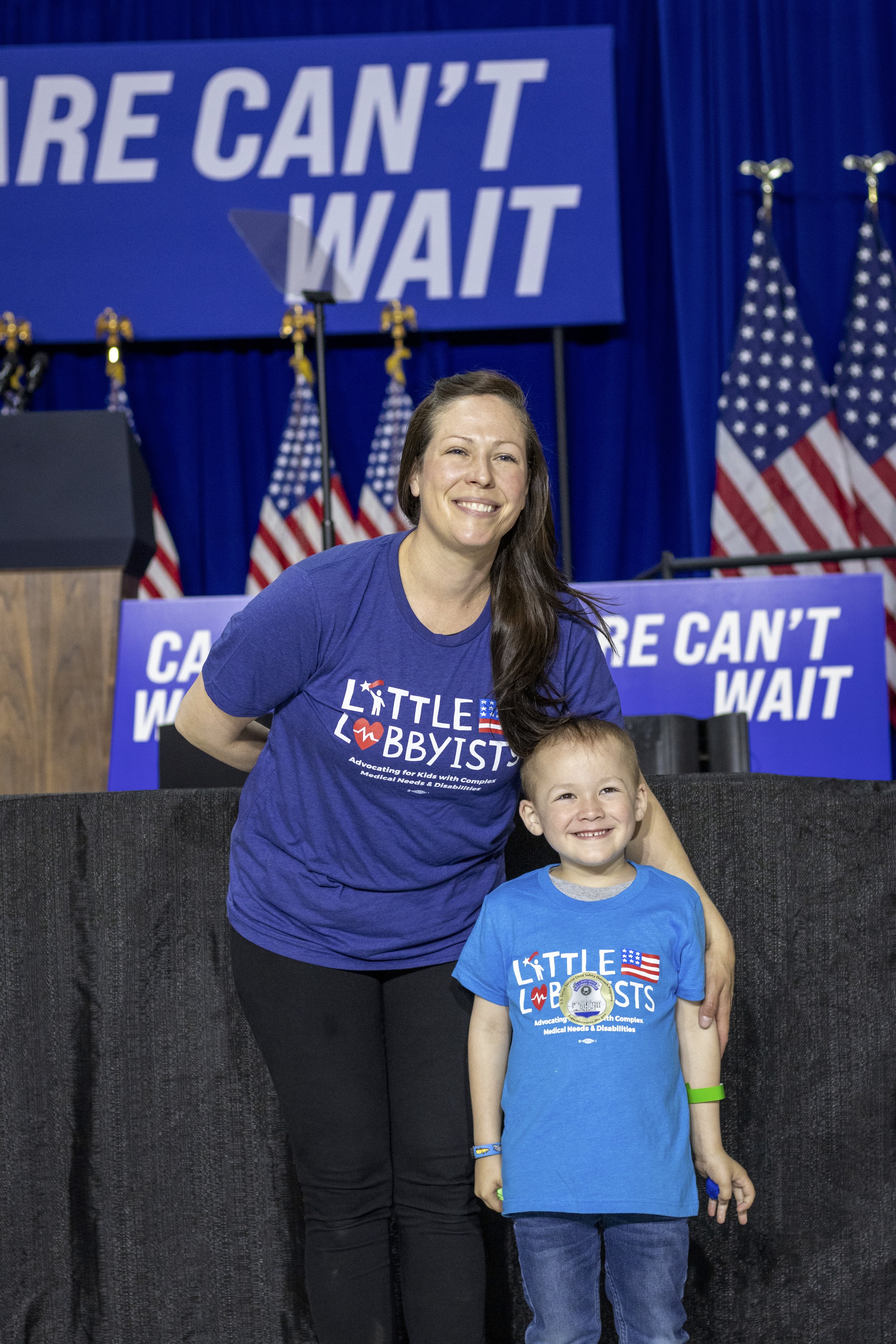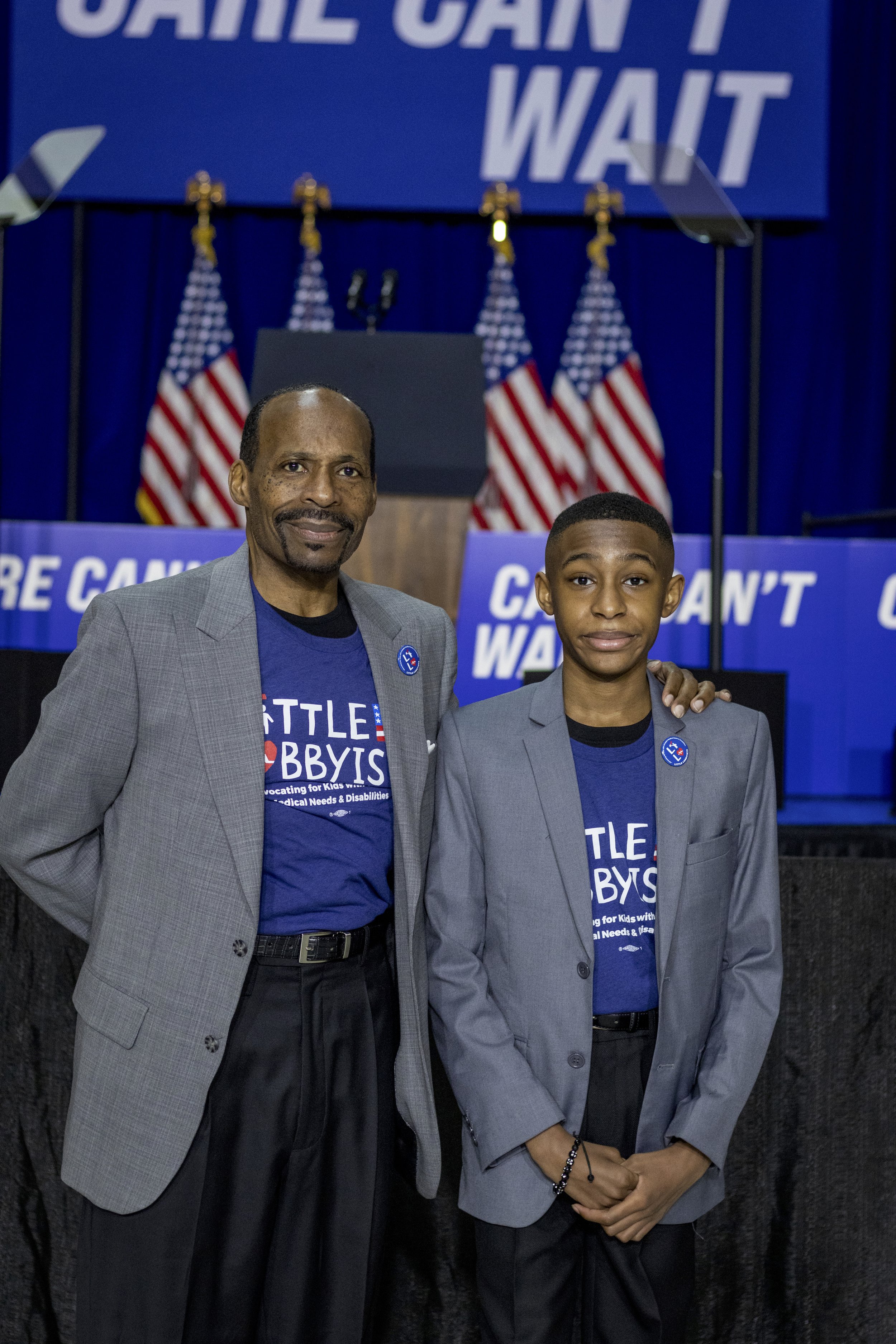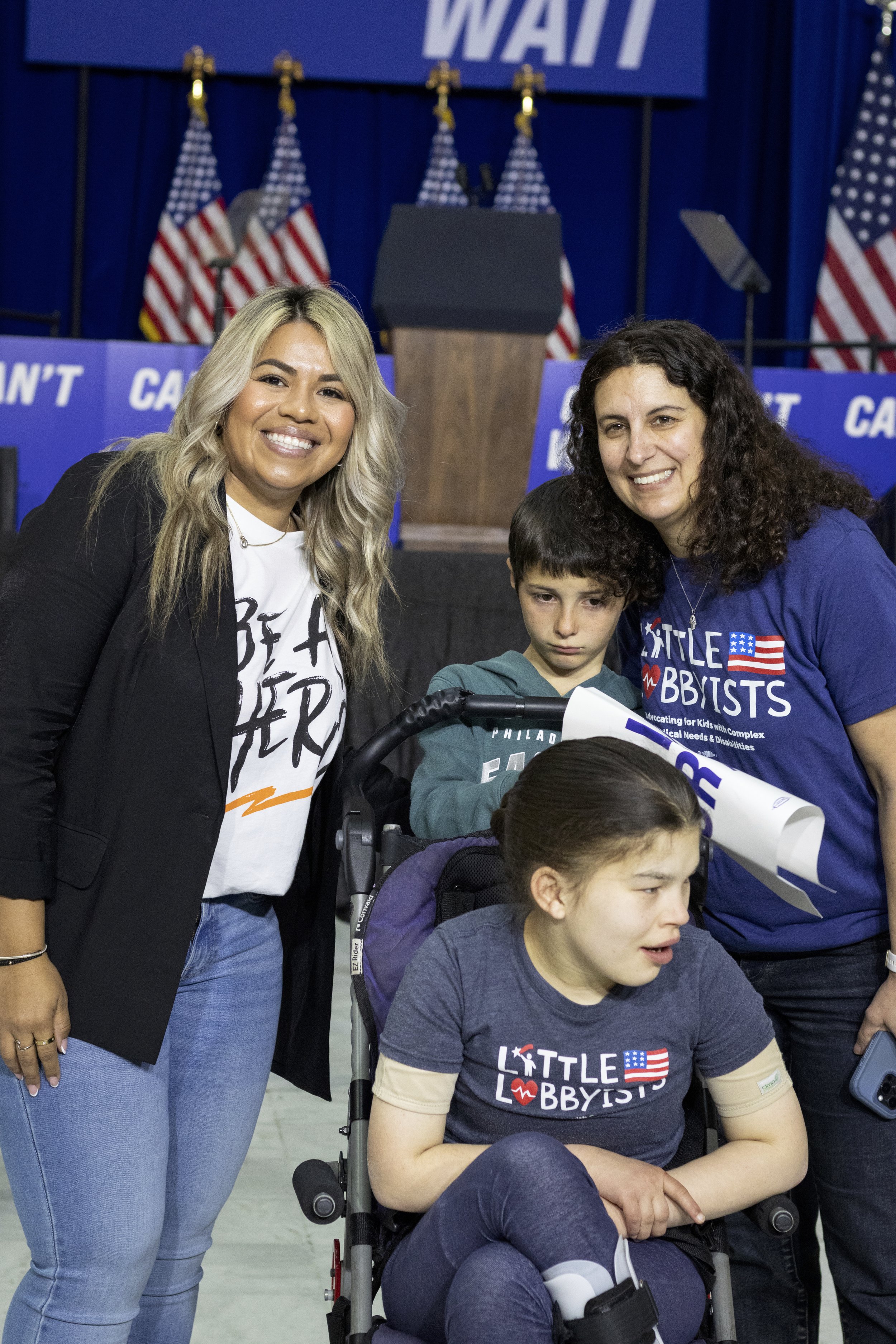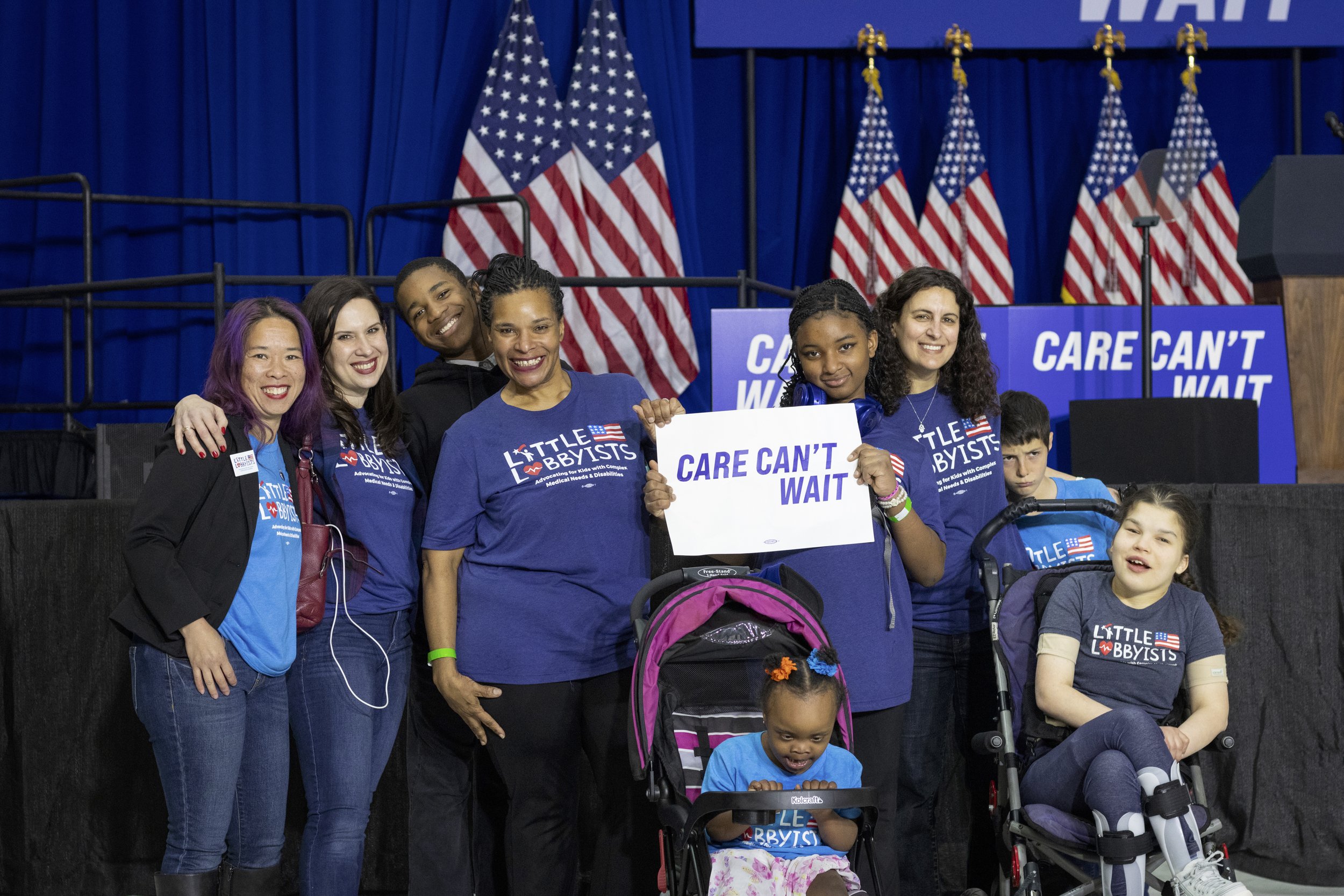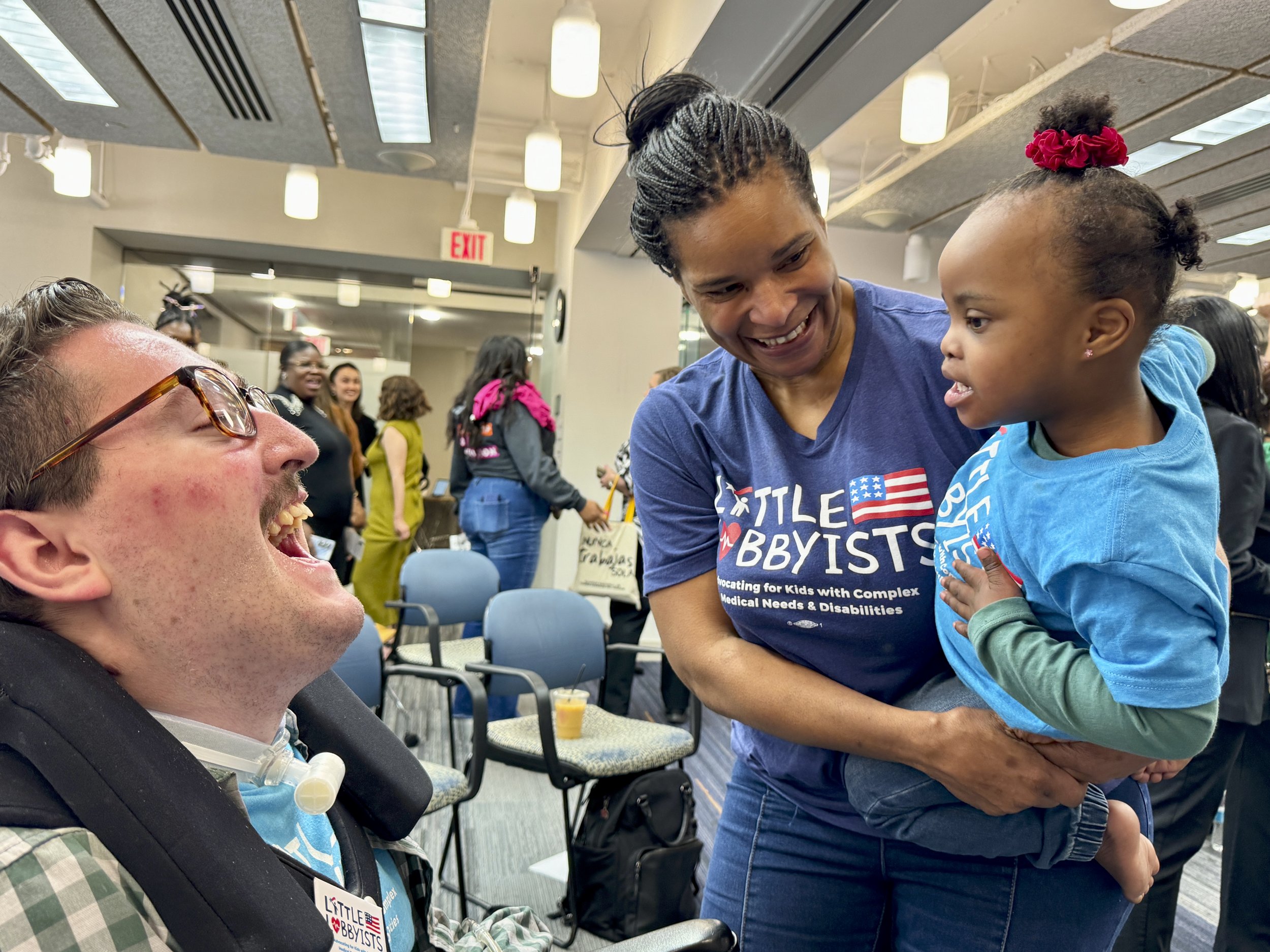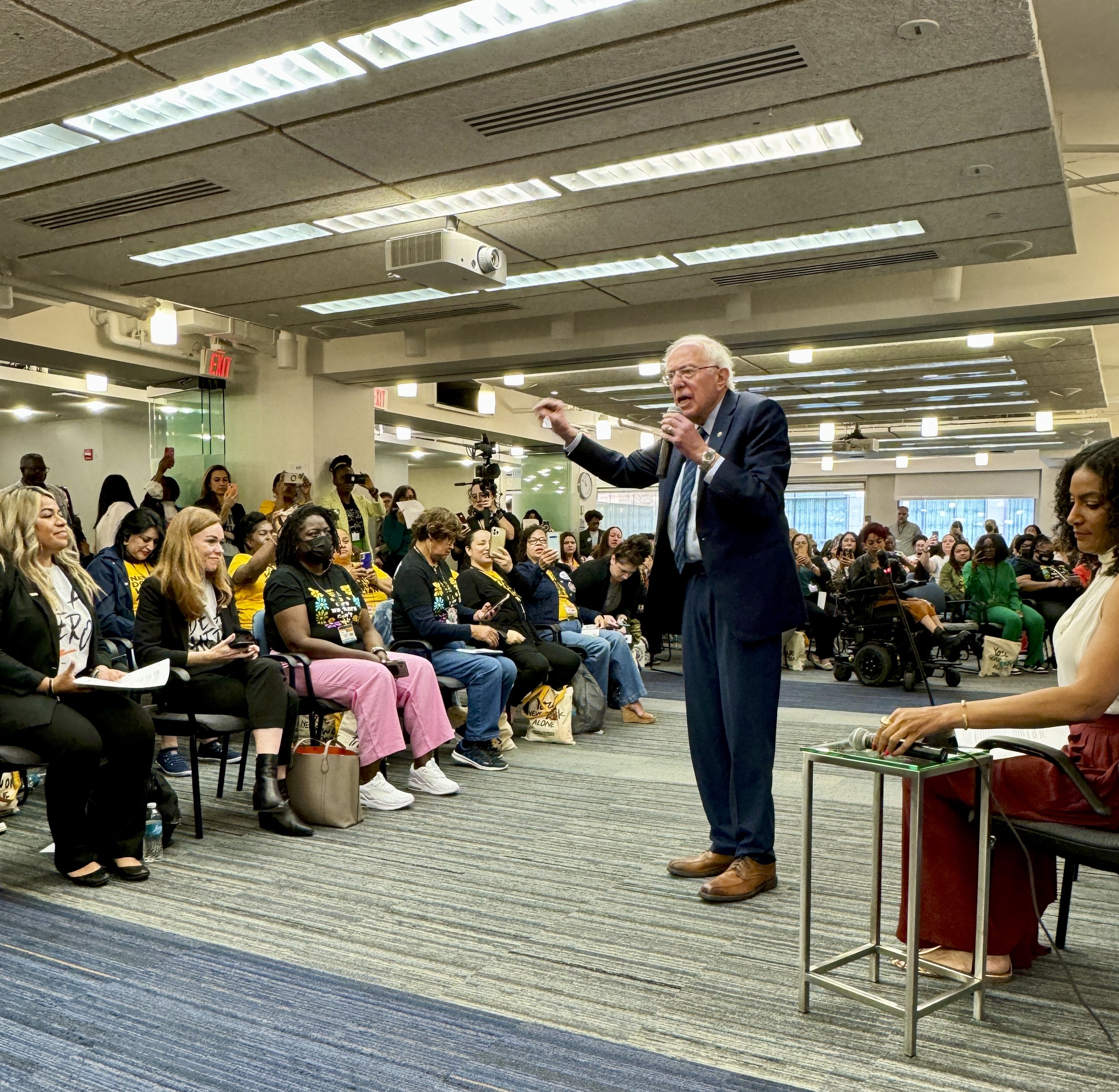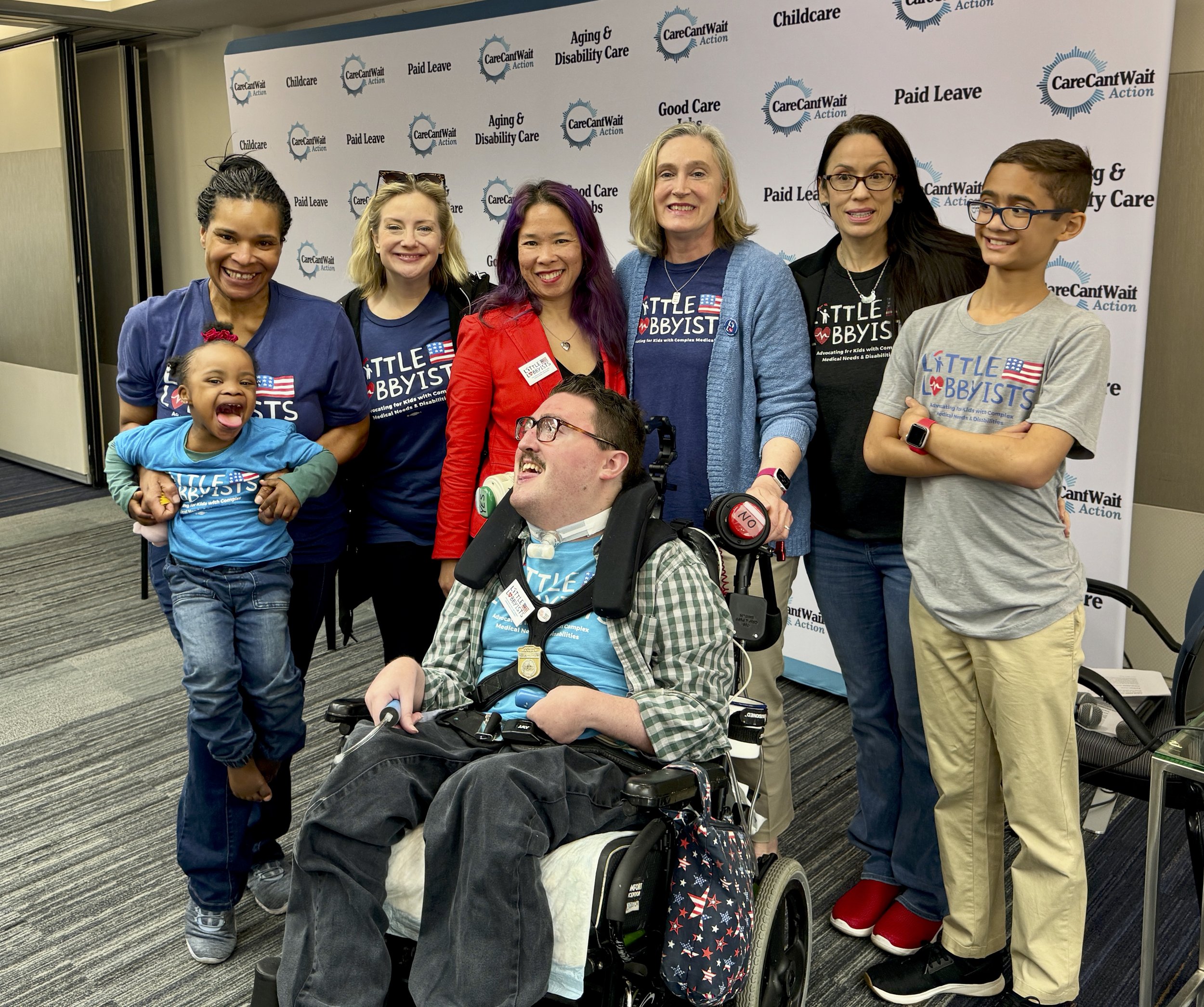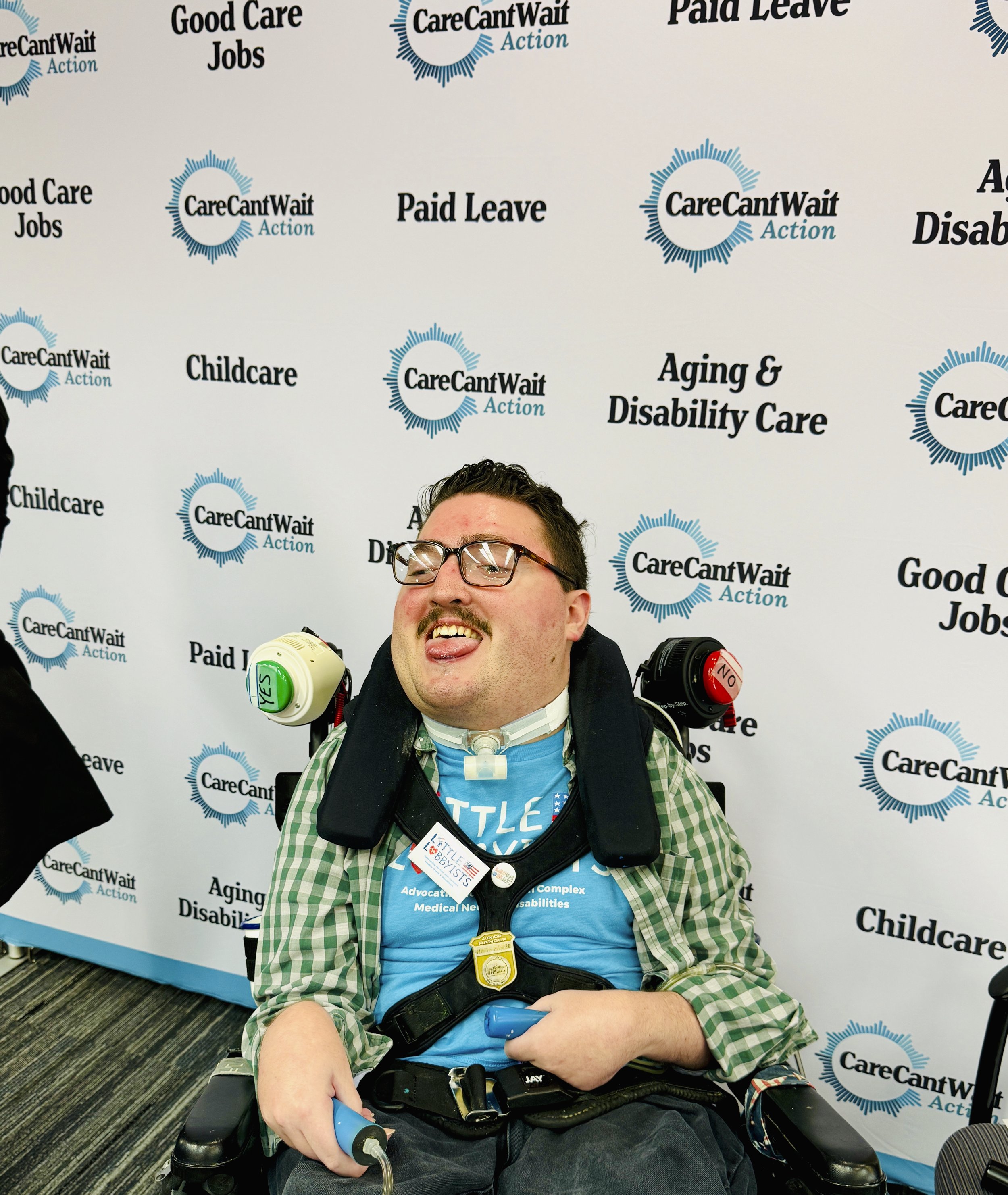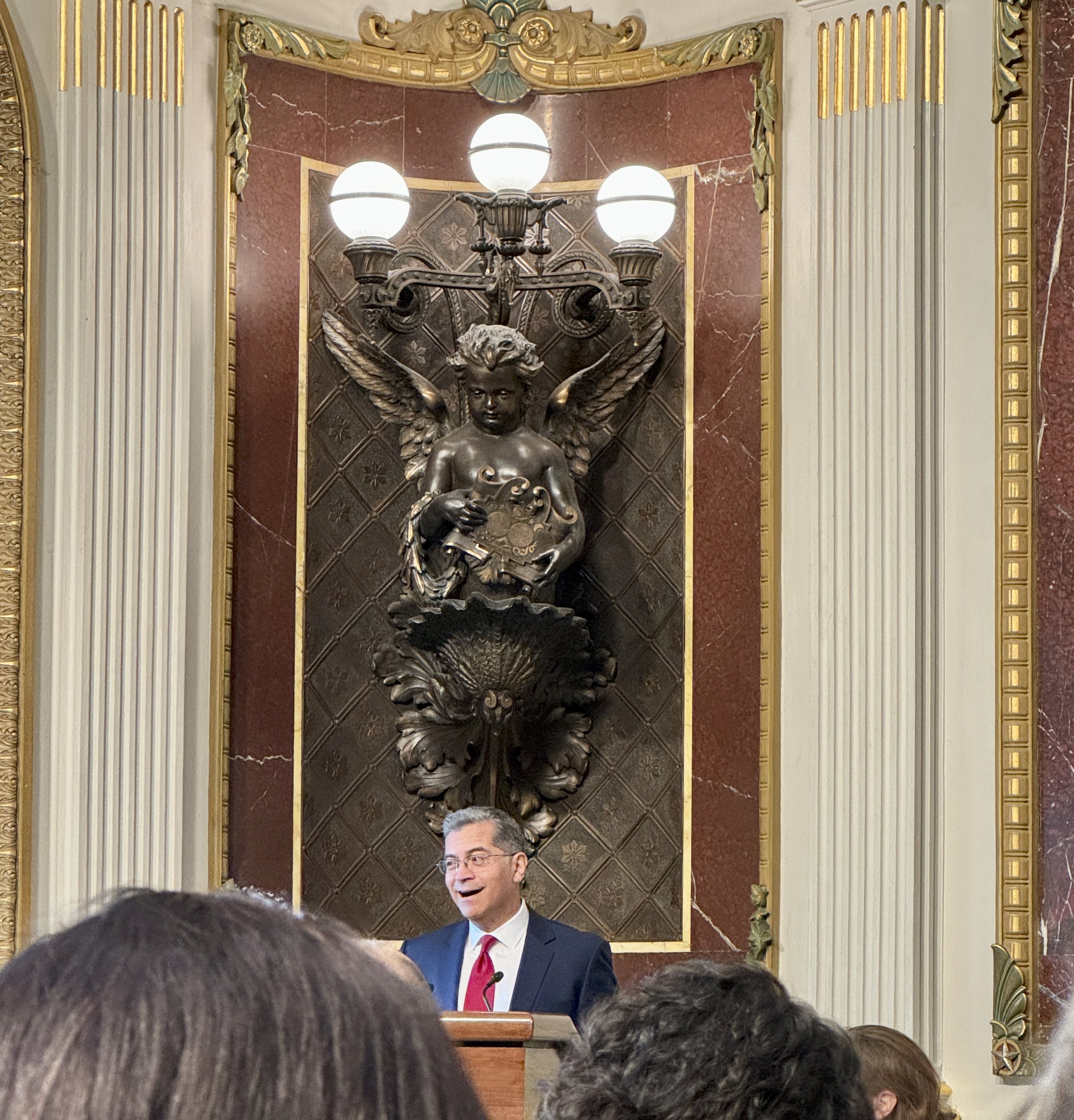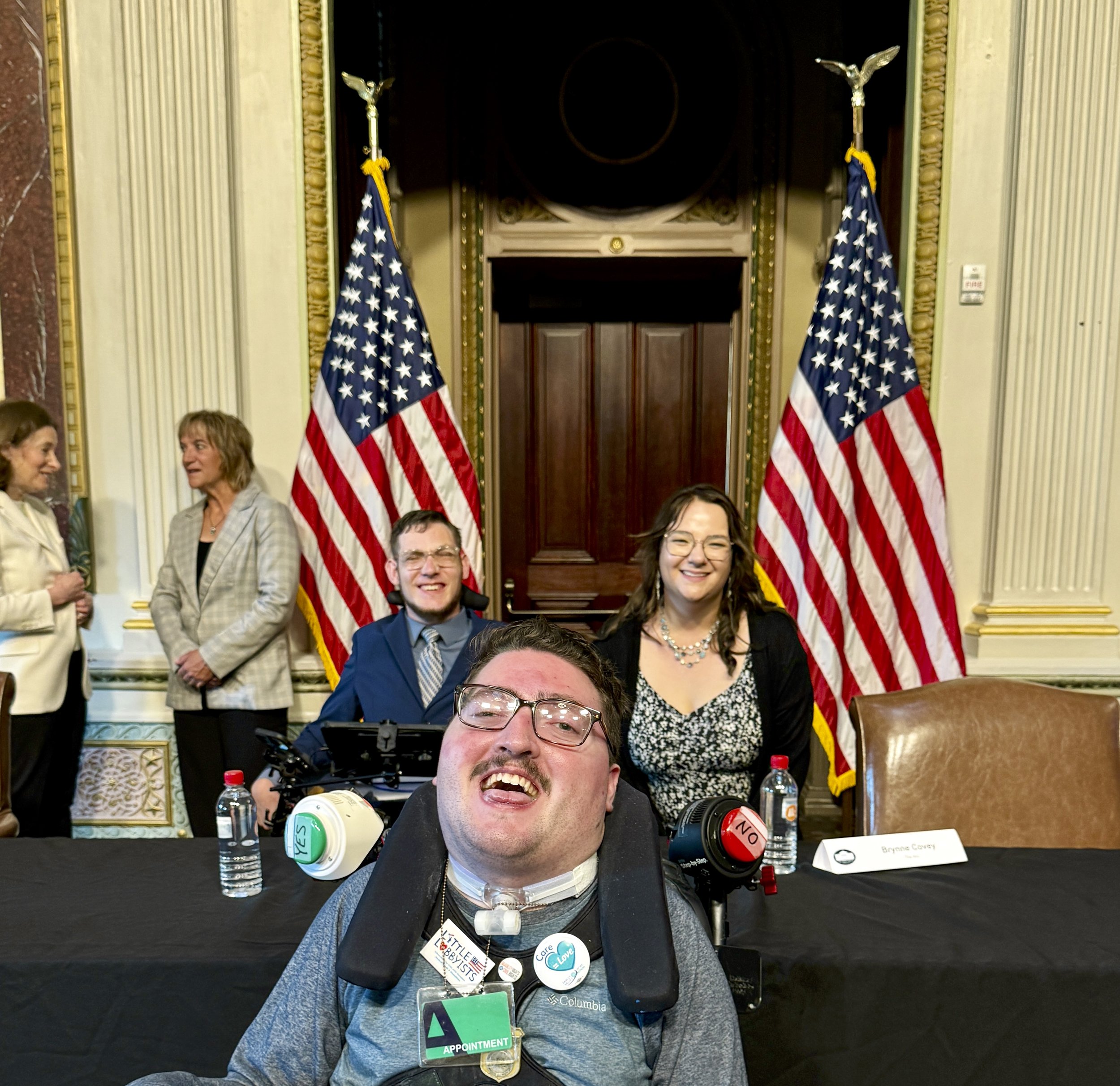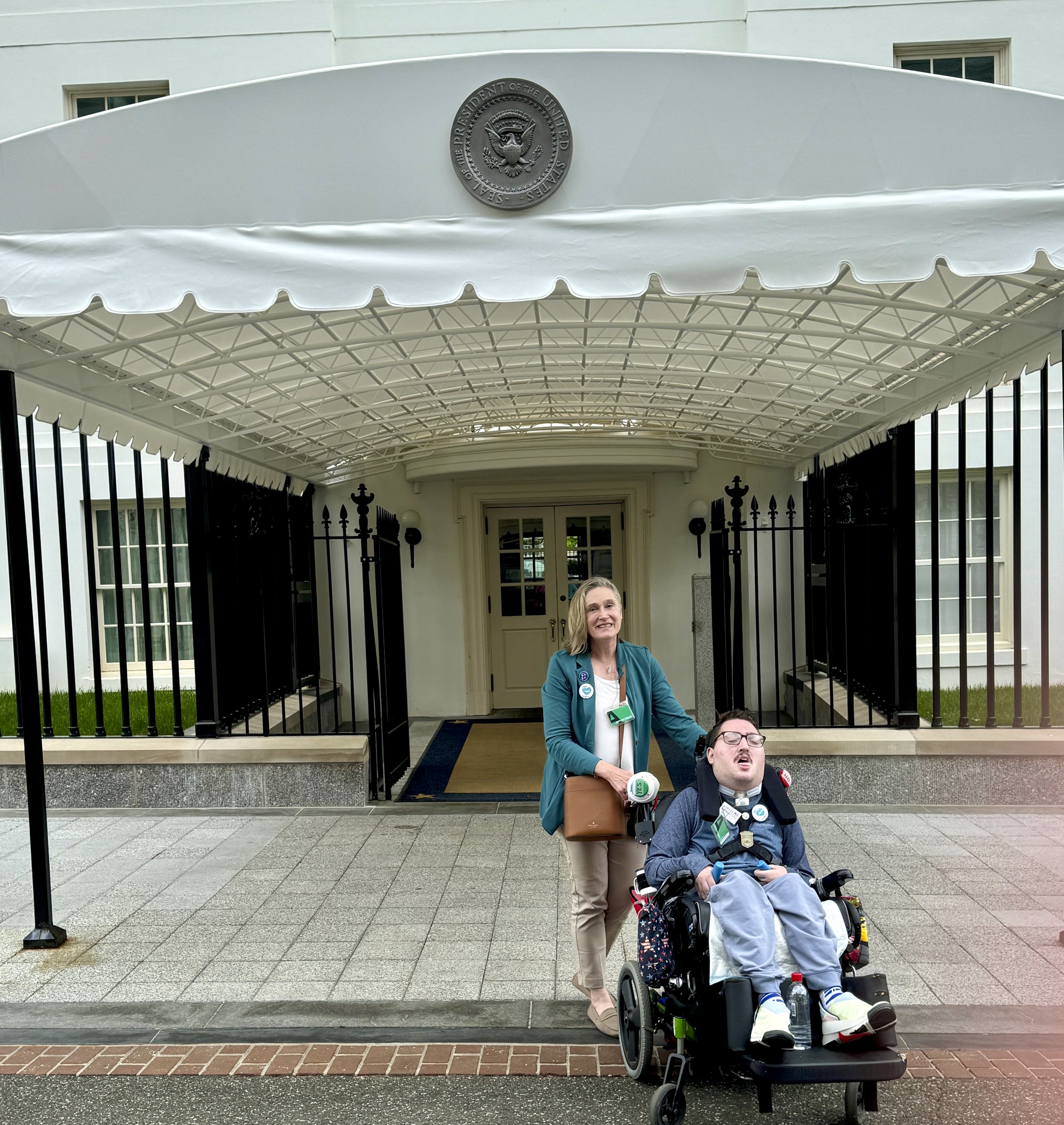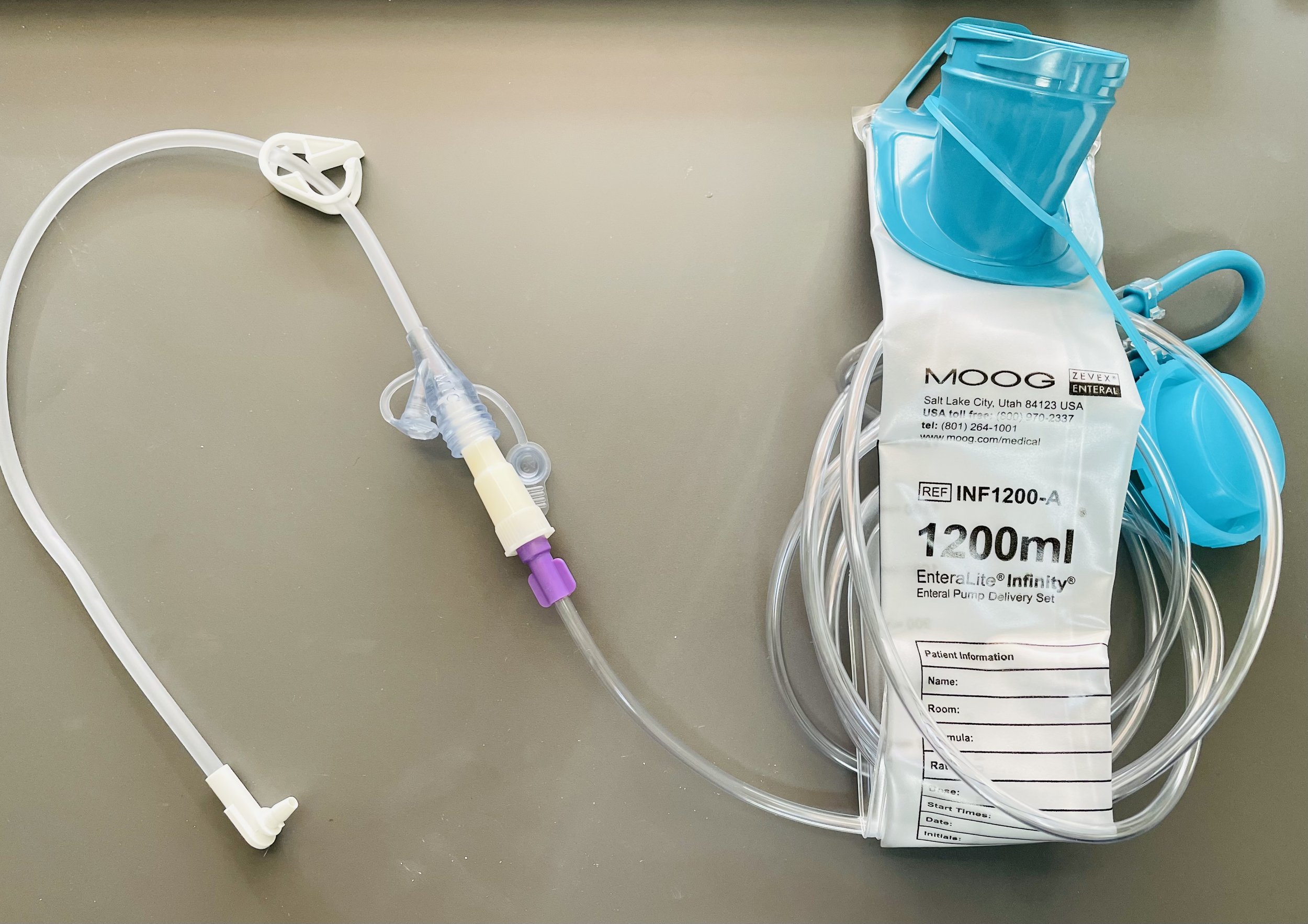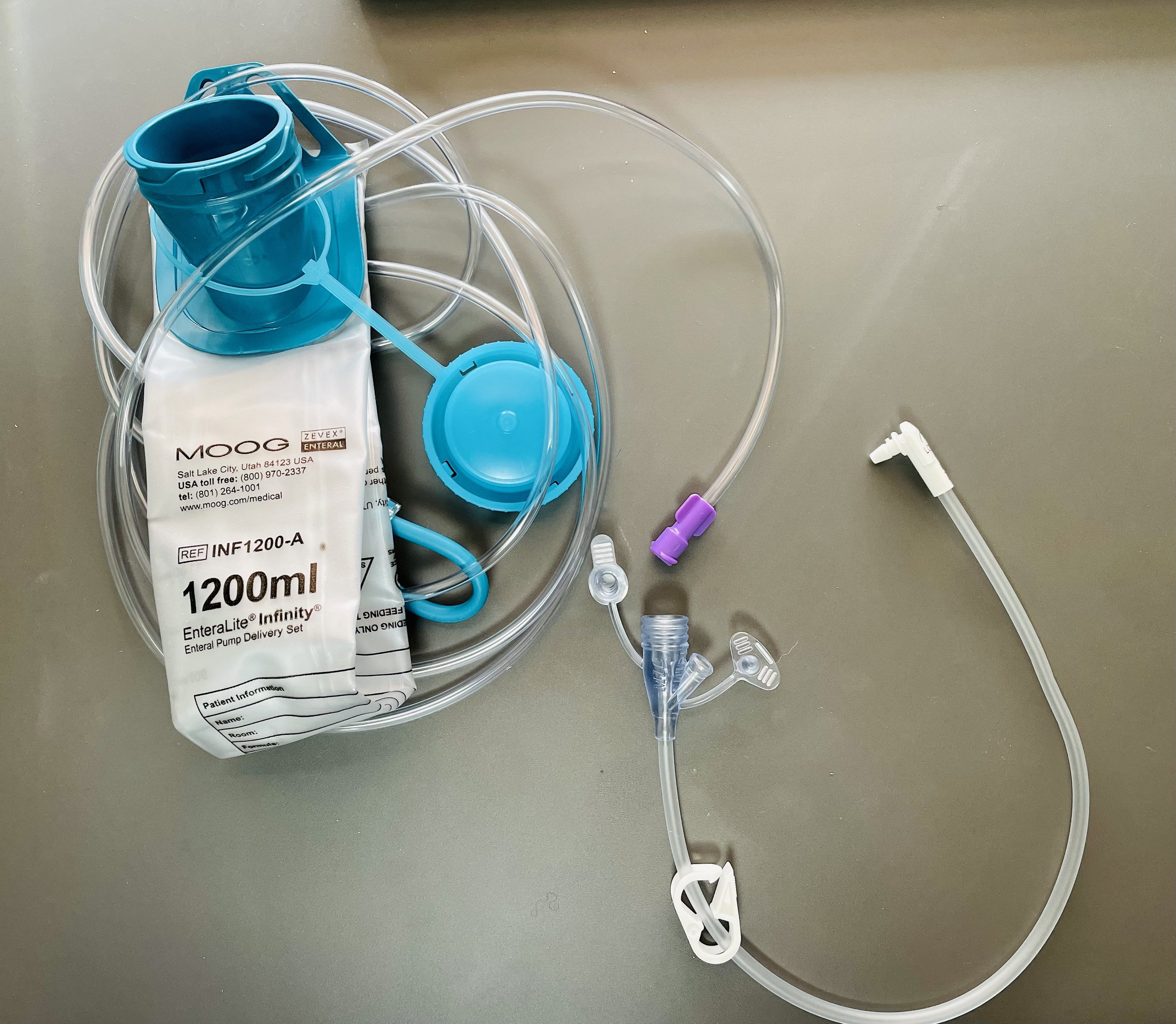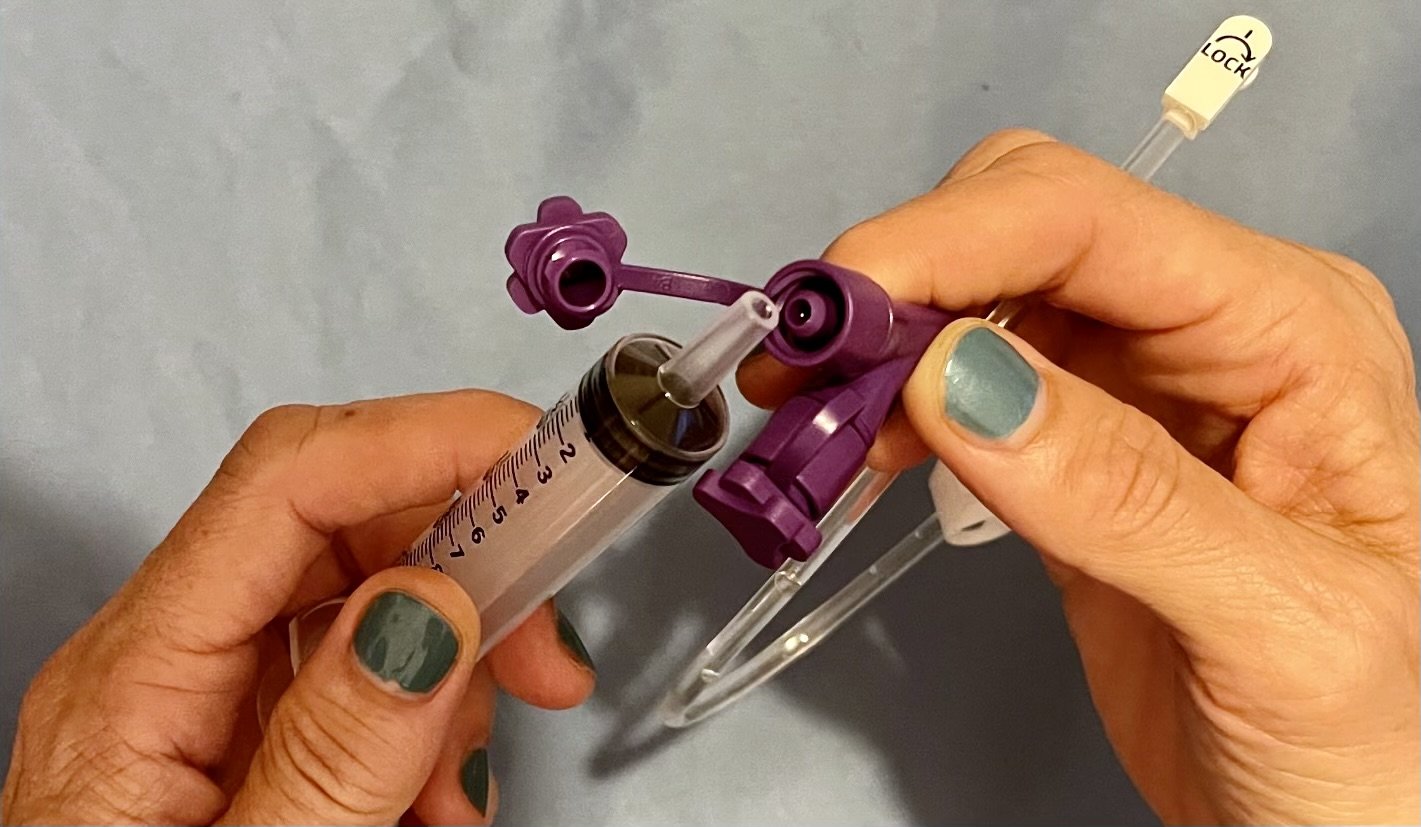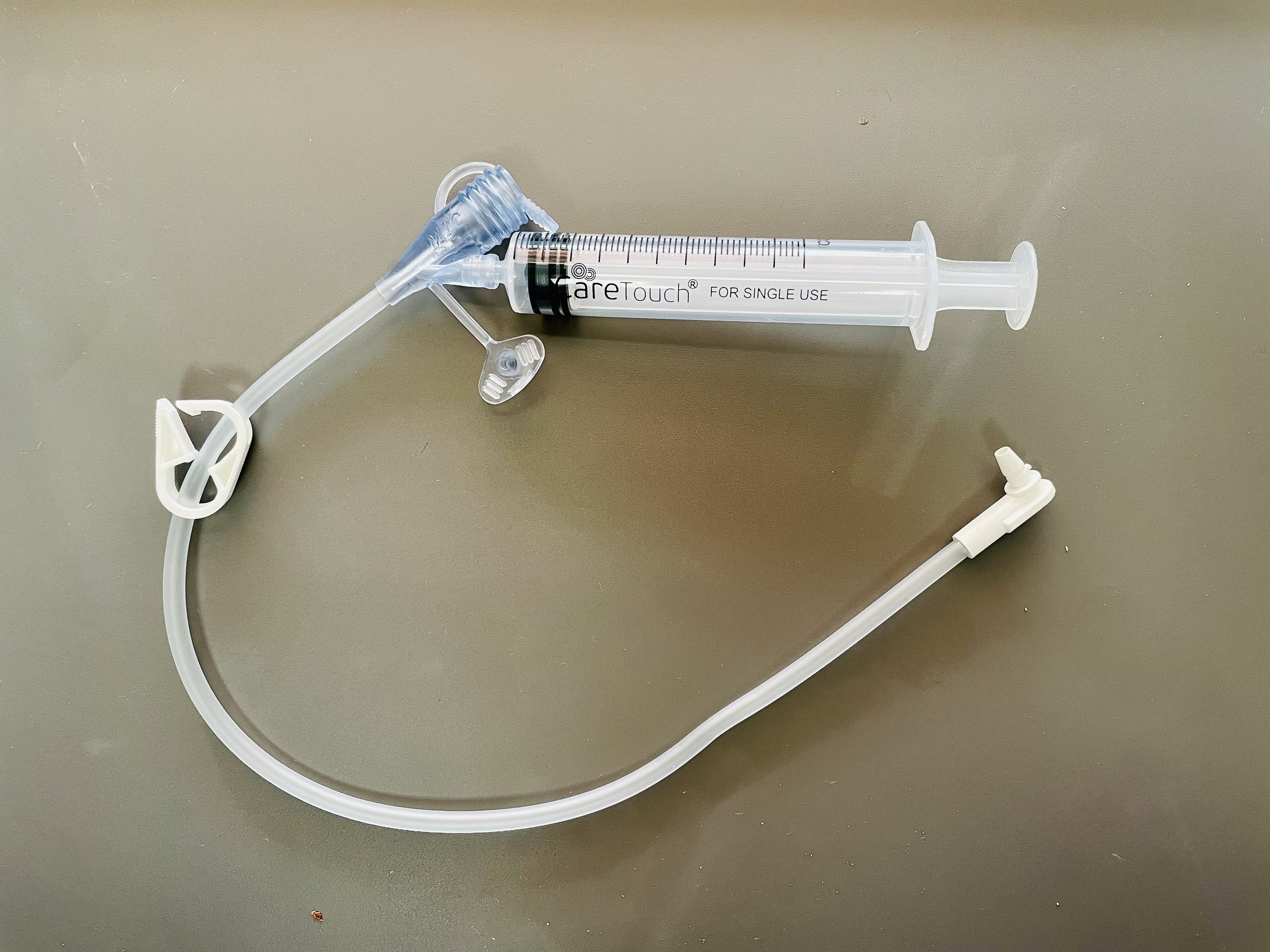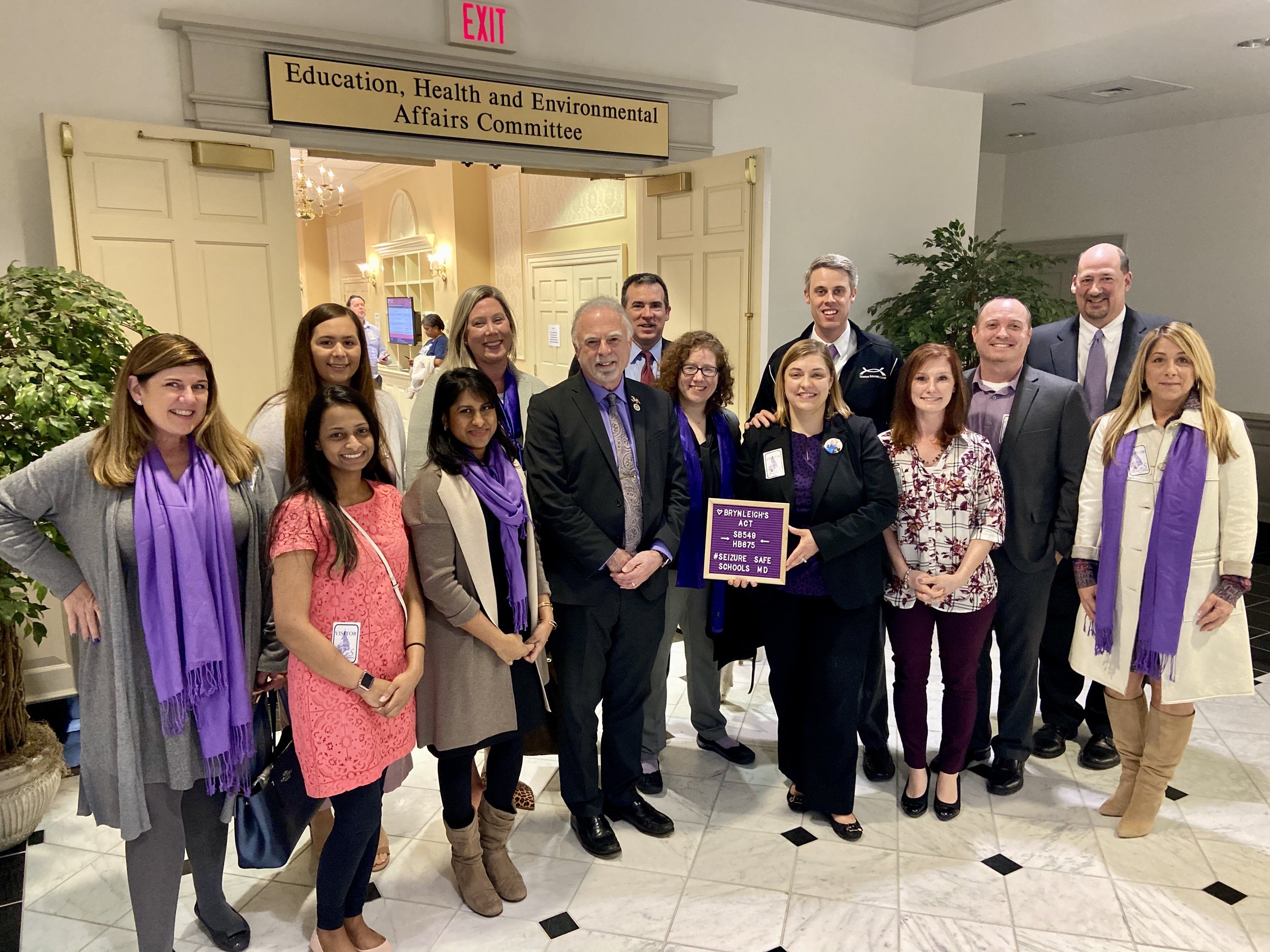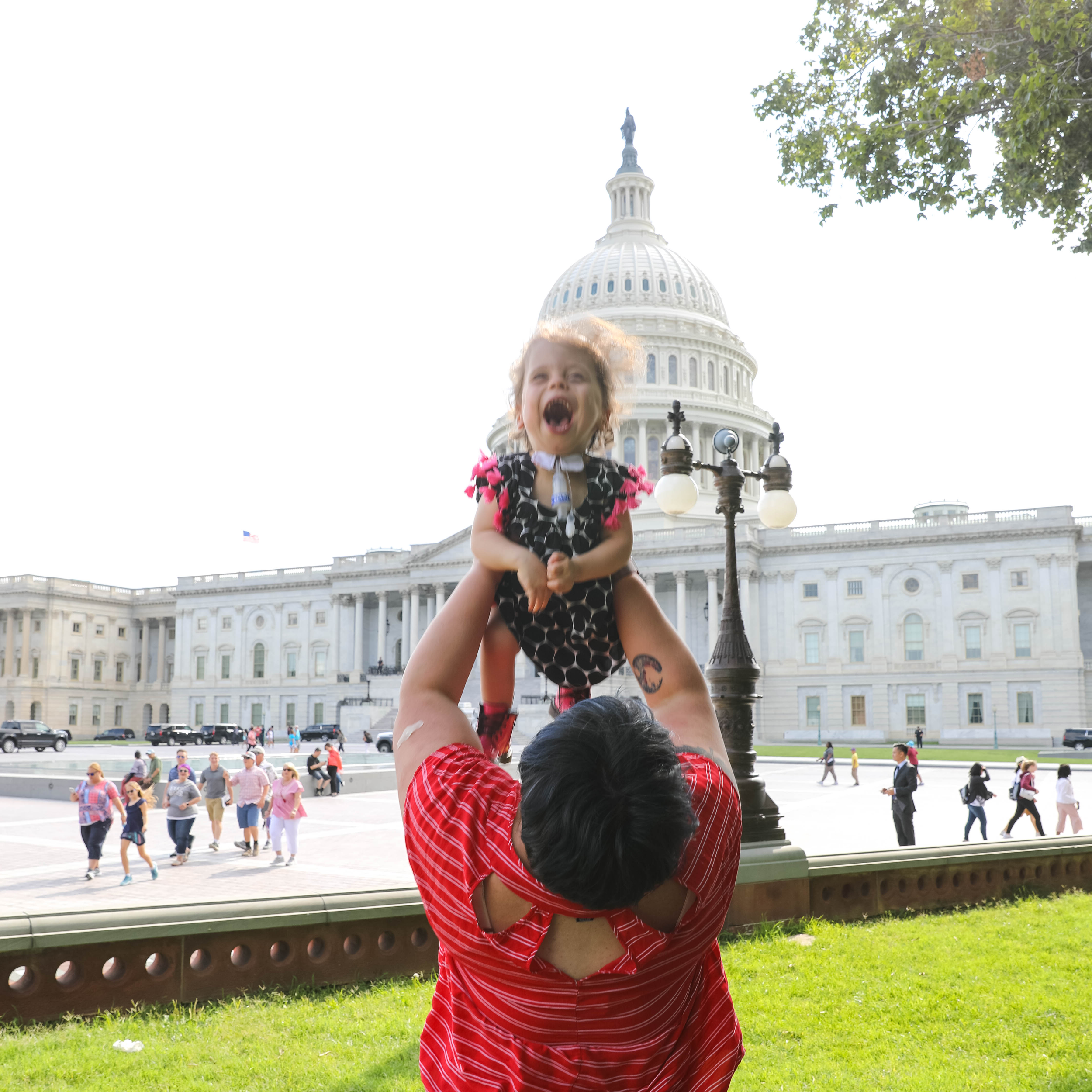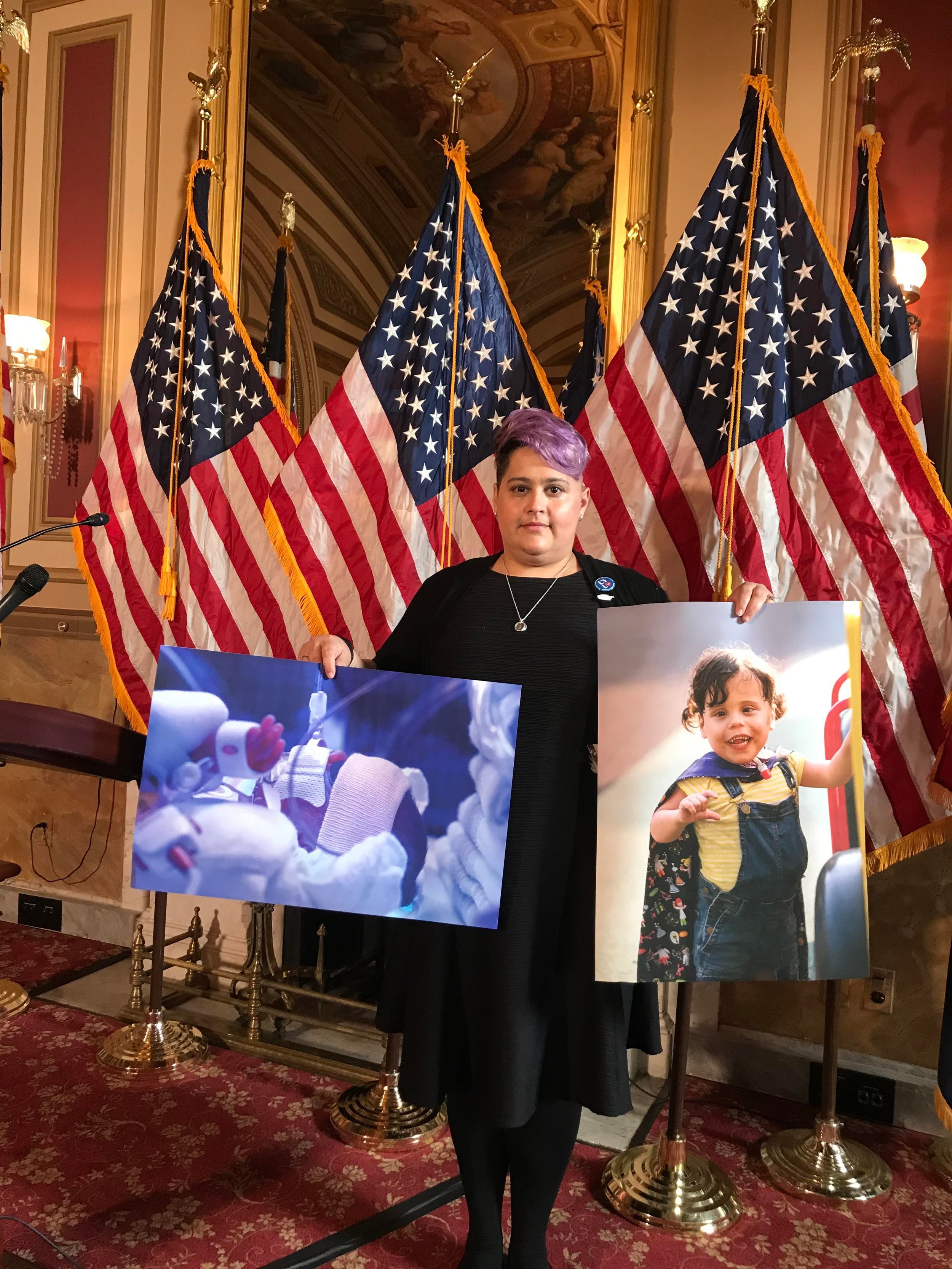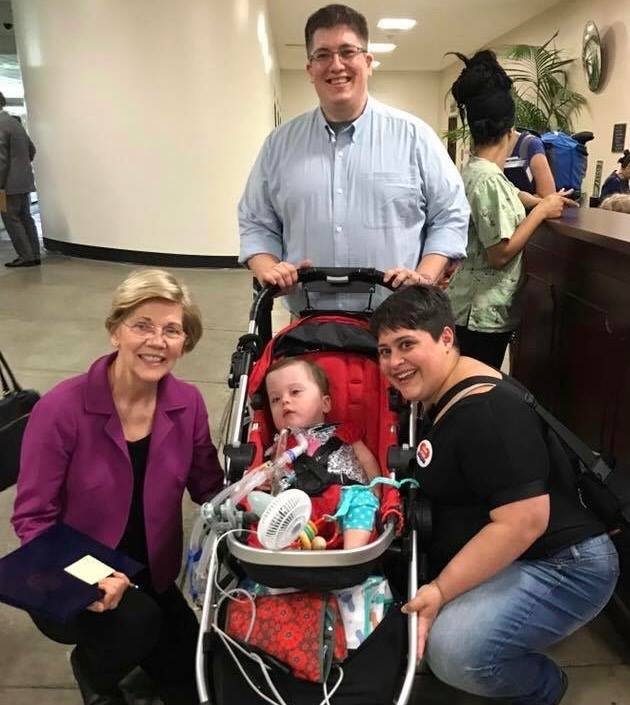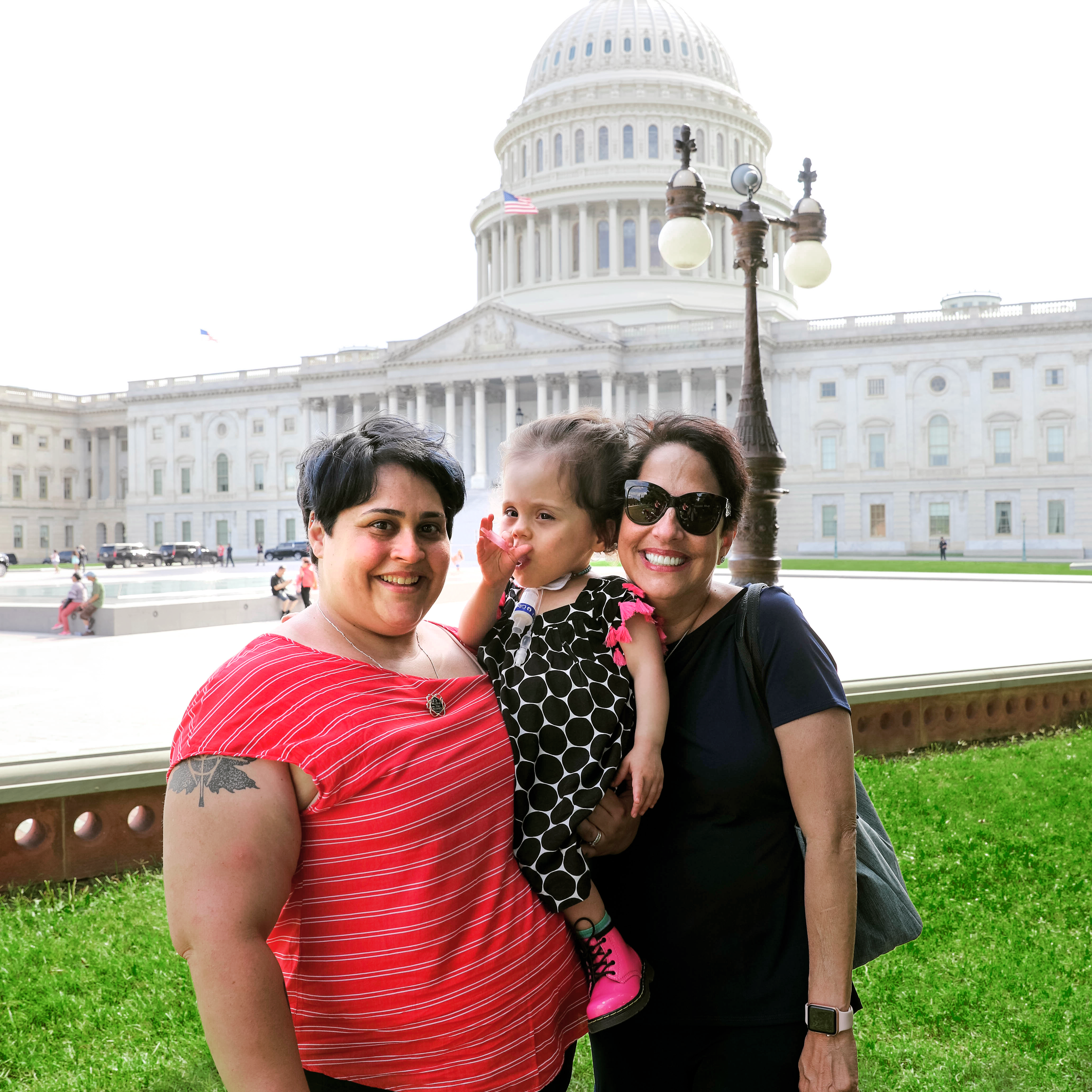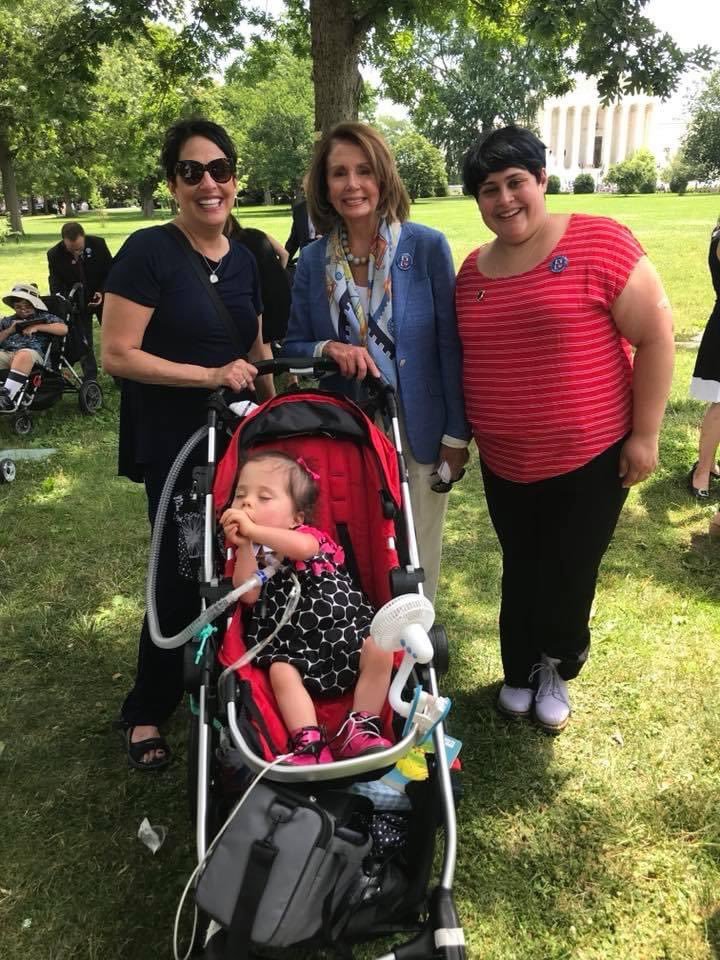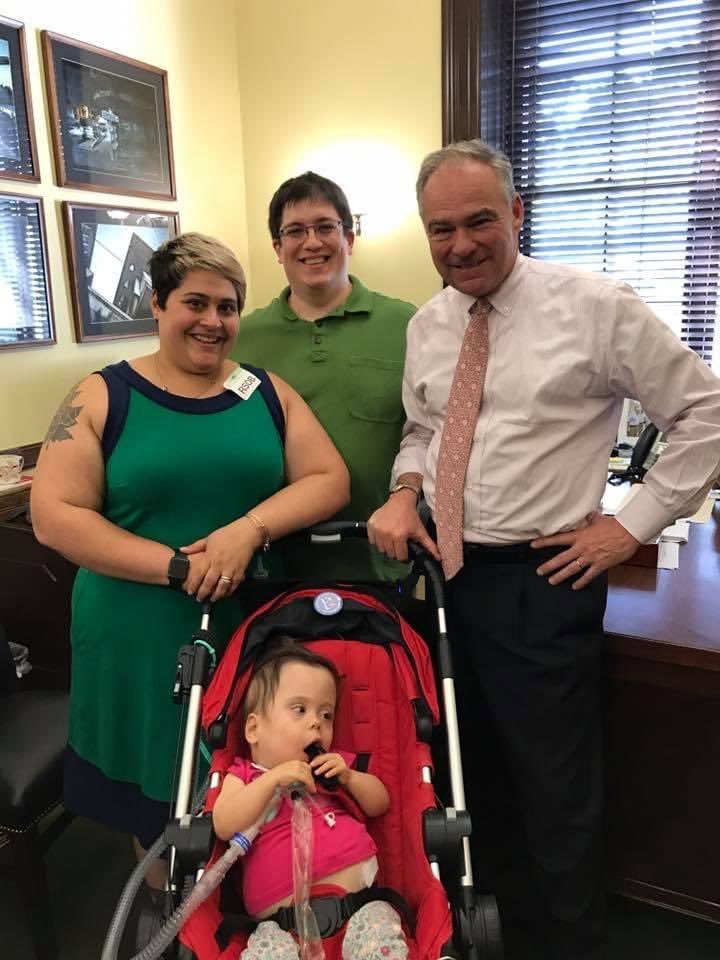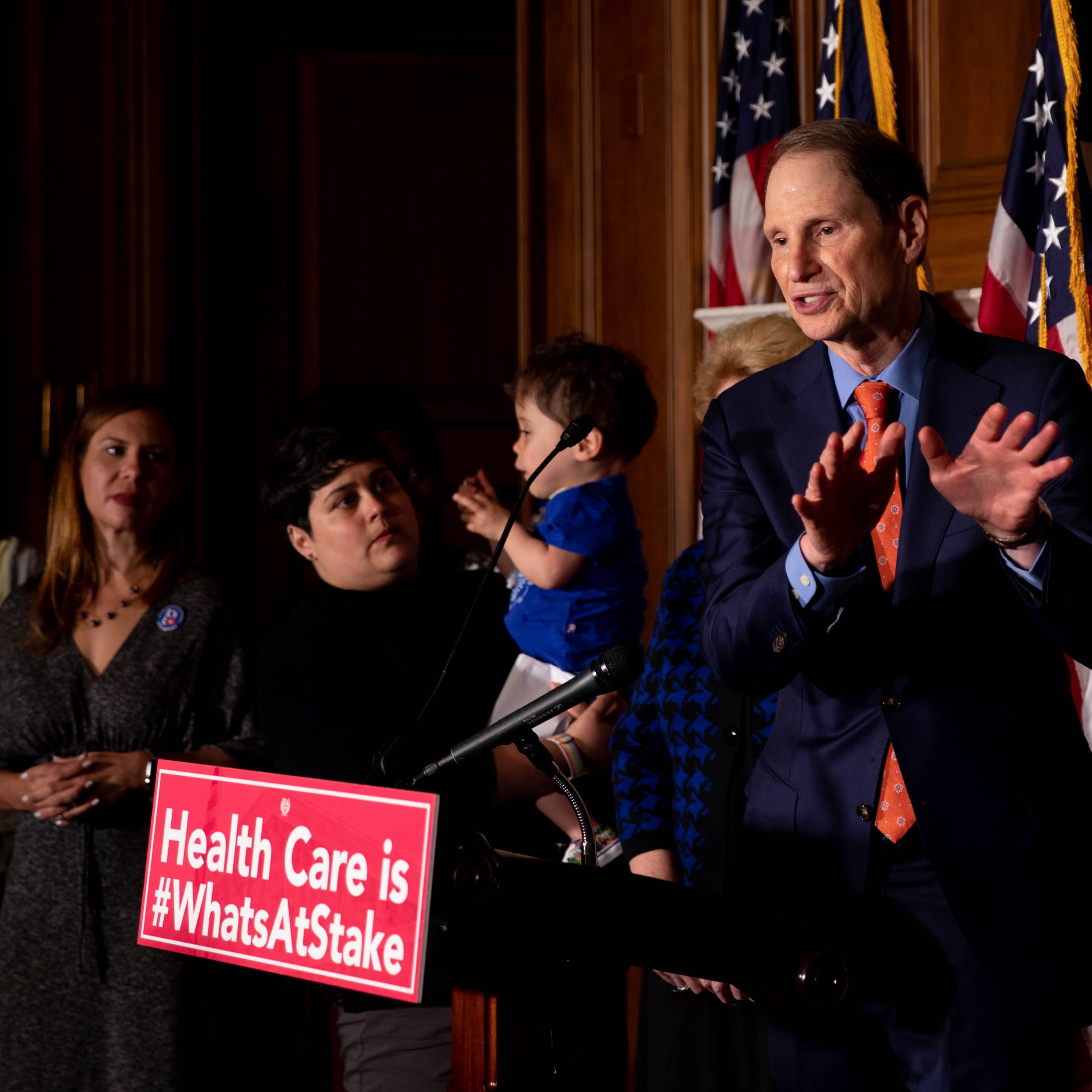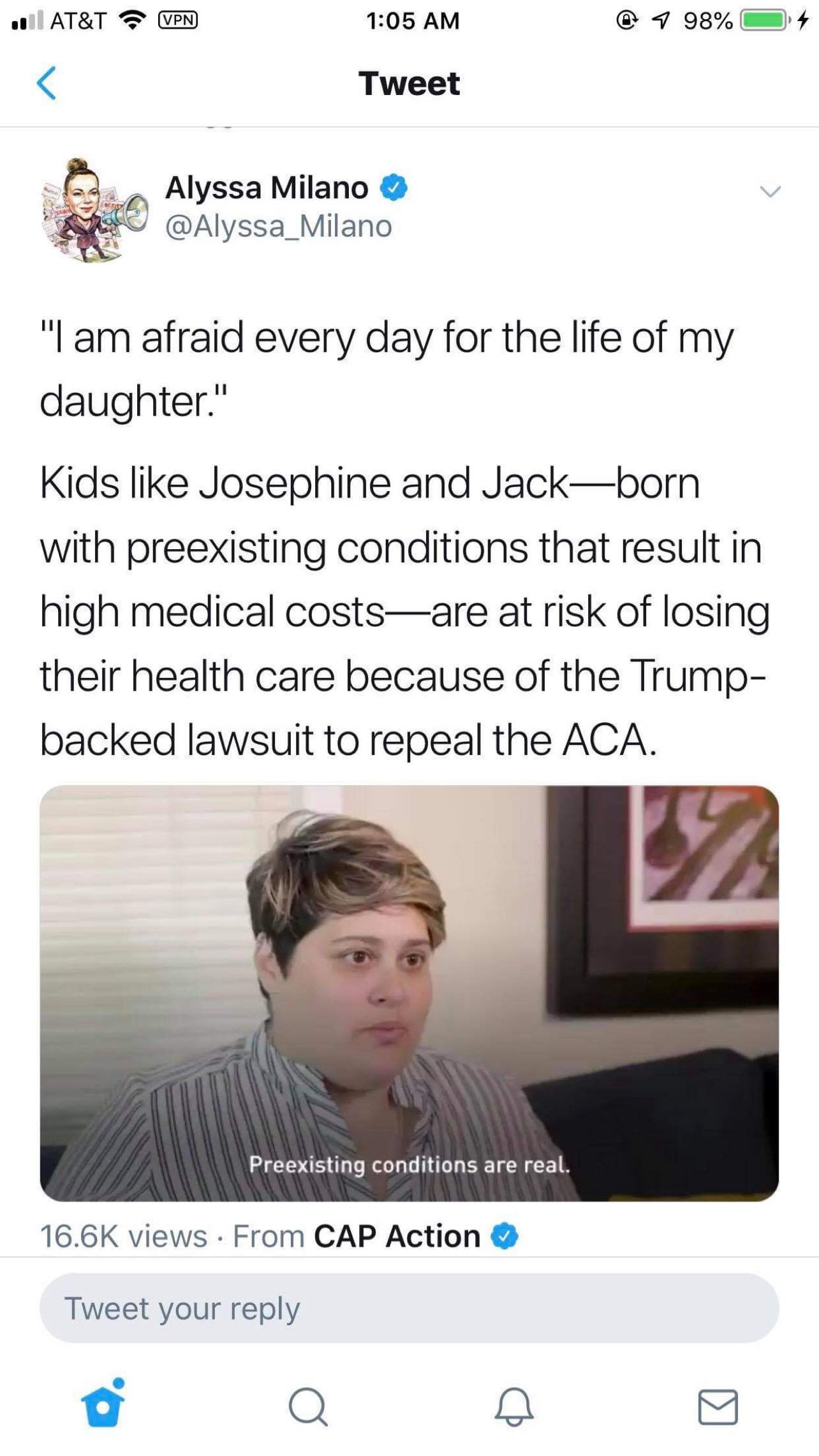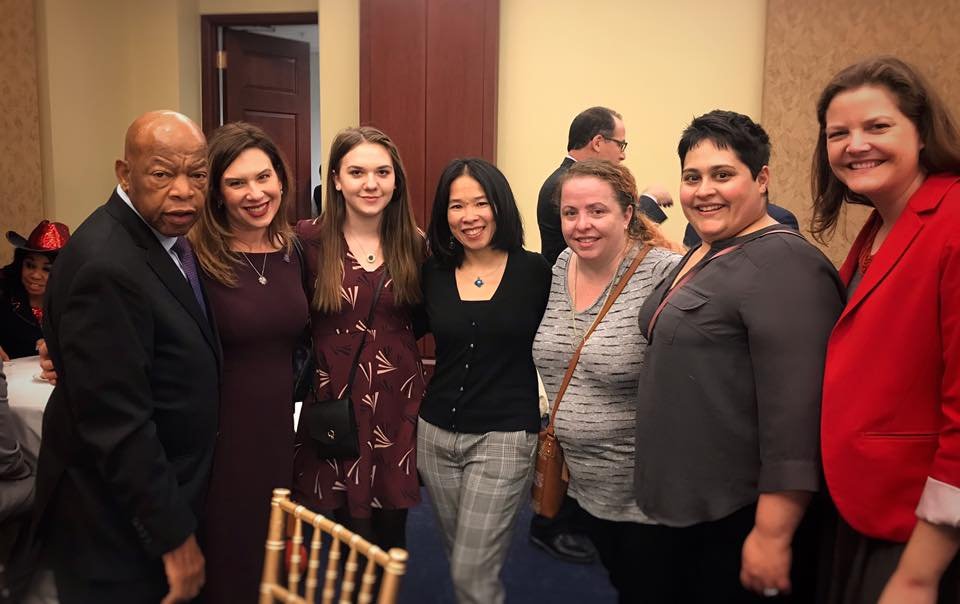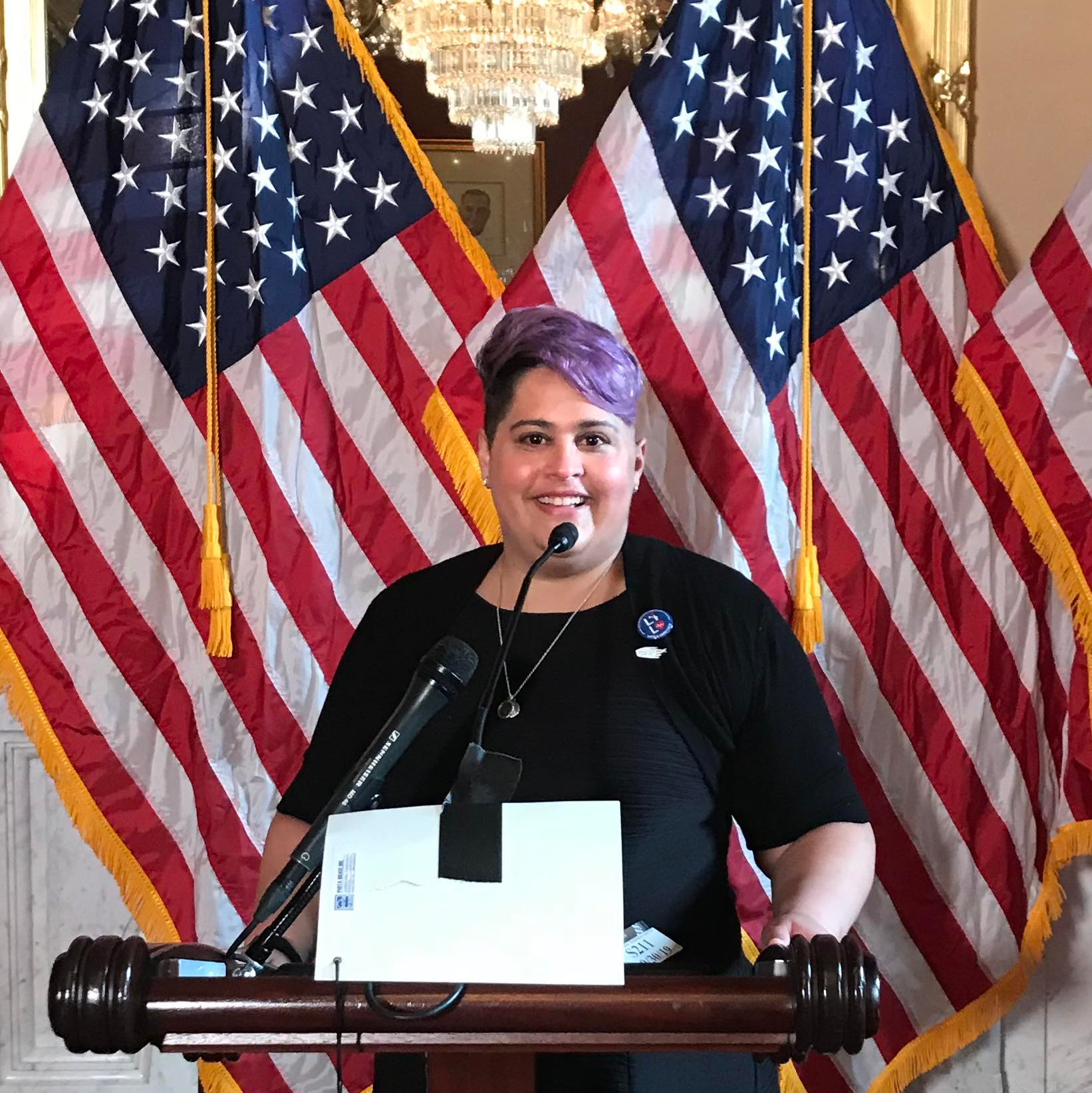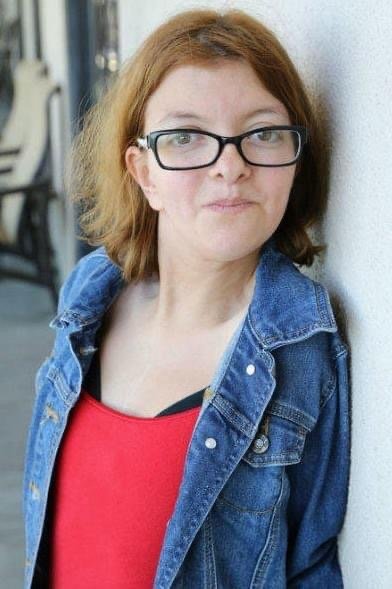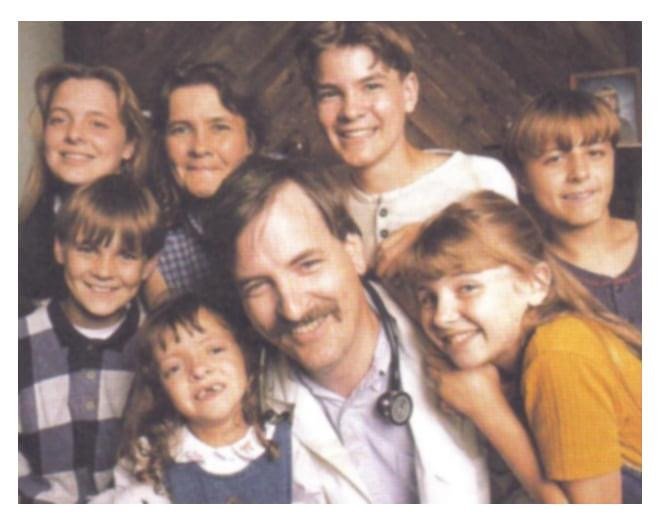Congresswoman Jennifer Wexton of Virginia will retire from Congress at the end of the year due to her own health concerns. For more on Wexton’s life and legacy, read Sara Luterman’s article in The 19th.
Congresswoman Wexton (l) stands next to Tasha Nelson (r) in Wexton’s congressional office. Weston has long, thick blonde hair, while Nelson’s is pulled back off her face & she wears glasses. Each is dressed in clothes made from deep blue fabric.
In the world of advocacy and public service, there are rare individuals who transcend their titles to become true champions for the people they serve. Congresswoman Jennifer Wexton is one of those rare individuals. Her unwavering dedication to healthcare, children with complex medical needs and disabilities, and families like mine has left an indelible mark, and it’s an honor to share just a glimpse of the profound impact she has made.
My journey with Congresswoman Wexton began in an unforgettable moment. I had written an article for New York Magazine about the Affordable Care Act’s (ACA) importance for children like my son Jack, who lives with cystic fibrosis, and why I planned to vote for her in the upcoming election. That article caught the attention of President Obama, who shared it on Twitter. Soon after, I was invited to appear on The Last Word with Lawrence O’Donnell, where I first met Congresswoman Wexton.
Even before she officially took office, she made me two promises: First, that Little Lobbyists—an organization I proudly represent advocating for children with complex medical needs and disabilities—would be her very first meeting in Congress. Second, that she would fight tirelessly for healthcare and children like Jack.
Val Watkins (who organized the meeting) poses with Congresswoman Wexton as she gives her a gift from LL: a framed photo collage gifted to her by the group with Little Lobbyists logo and photos of the LL children she met with early on. Watkins is wearing a deep blue suit with a red shirt, and Wexton wears a deep blue suit.
True to her word, Congresswoman Wexton met with us as one of her first official acts. But it wasn’t just a meeting—it was a moment that set the tone for her tenure. She didn’t approach us as a politician checking a box; she listened with empathy and urgency, forging a connection rooted in shared values and a commitment to building a more inclusive and compassionate future.
Throughout her career, Congresswoman Wexton championed protections for pre-existing conditions and the ACA, ensuring that families like mine could access the care we needed. She amplified our voices, sharing our stories with fellow legislators and on the House floor.
Her advocacy extended beyond the halls of Congress. She hosted events like the “Congressional Playdate” at Clemyjontri Park, a space designed for children with disabilities to play and thrive, where our elected leaders could see what accessibility means. Another memorable event Congresswoman Wexton hosted was called Storytime with Congress. She and other leaders read children’s stories featuring disabled children. ASL interpreters were present, snacks were provided and a beautiful room in the Library of Congress was turned into a magical accessible experience for our children. After the stories were shared, she sat in the room with us to hear our concerns and hopes for policies affecting our kids.
Congresswoman Wexton (c) poses with Aire (l) and Jack (r). Both are now teenagers, but met Wexton when they were young children. Are wears blue glasses and a charcoal suit. Jack has on a black facemask, glasses, and his huge mop of blond curls hang down over his forehead.
She joined us in real-life moments that reflected the reality of parenting children with complex medical needs: mothers suctioning trachs, children taking medications to eat or breathe, and kids happily stimming in spaces where they felt safe.
She made herself not only available but accessible. She met us where we were, ensuring our children felt included and valued. She witnessed the complexities of our lives and let those experiences inform her work.
As Jack grew, so did her understanding of the evolving needs of children like him. When we first met, Jack was 7, and his annual medication costs were approximately $100,000. Today, at 13, his medications cost over $500,000 a year—lifesaving treatments that allow him to eat and breathe. To see Jack, with his mop of curly hair and fascination with the science of weather, you might never guess his body requires so much assistance. But Congresswoman Wexton took the time to see him, to know him, and to fight for policies that ensure children like him can thrive.
It feels deeply fitting that Little Lobbyists was her final meeting in Congress. From her first promise to her final act, Congresswoman Wexton stood steadfast in her dedication to families and children like mine.
Her legacy lives on in the policies she shaped, the lives she touched, and the hope she inspired. Congresswoman Wexton, thank you for keeping your promises, for showing us what compassionate leadership looks like, and for making a lasting difference in the lives of so many.
We are forever grateful.
Congresswoman Wexton (c) poses with the group from Little Lobbyists: two women and one young man (l) and the same on the right. Little Lobbyists pins are visible & Wexton holds the framed photo collage.
Tasha Nelson and her son Jack are members of Little Lobbyists.







